TRANSIT MODE
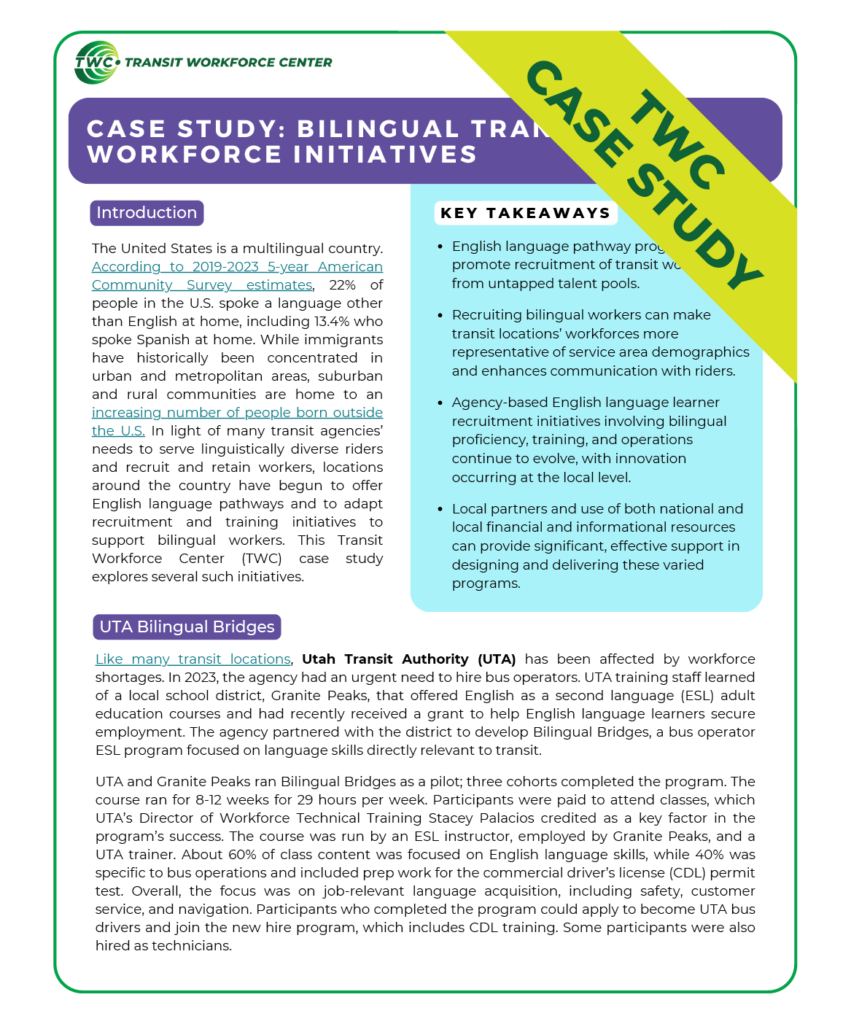
Case Study: Bilingual Transit Workforce Initiatives
The United States is a multilingual country. According to 2019-2023 5-year American Community Survey estimates, 22% of people in the U.S. spoke a language other than English at home, including 13.4% who spoke Spanish at home. In light of many transit agencies’ needs to serve linguistically diverse riders and recruit and retain workers, locations around the country have begun to offer English language pathways and to adapt recruitment and training initiatives to support bilingual workers. This TWC case study explores several such initiatives.
Transit Workforce Center
December 2024
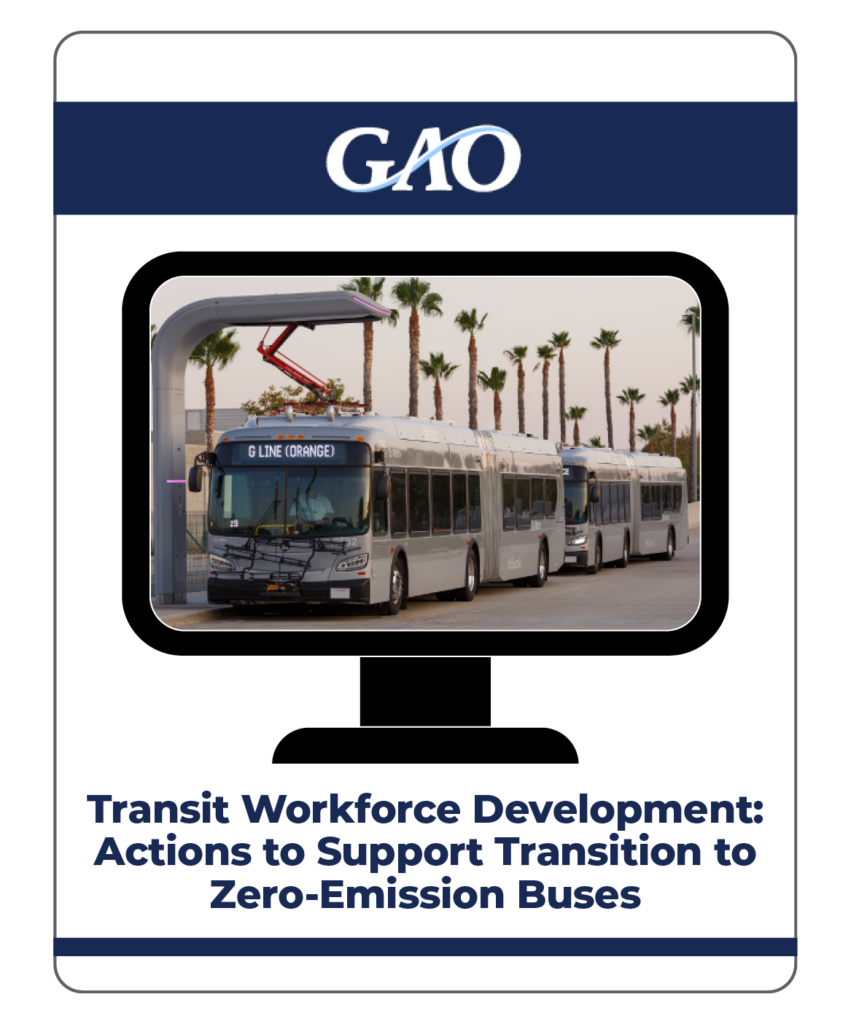
Transit Workforce Development: Actions to Support Transition to Zero-Emission Buses
U.S. Government Accountability Office
December 2024
After data analysis and expert interviews, GAO published this report which describes: (1) the status of transit agencies’ transition to zero-emission bus fleets and any challenges they may face meeting transition goals; (2) skill- and workforce-development needs of transit agencies and actions selected agencies are taking to address any workforce gaps; and (3) recommended FTA actions to assist transit agencies in preparing their workforces for zero-emission buses.
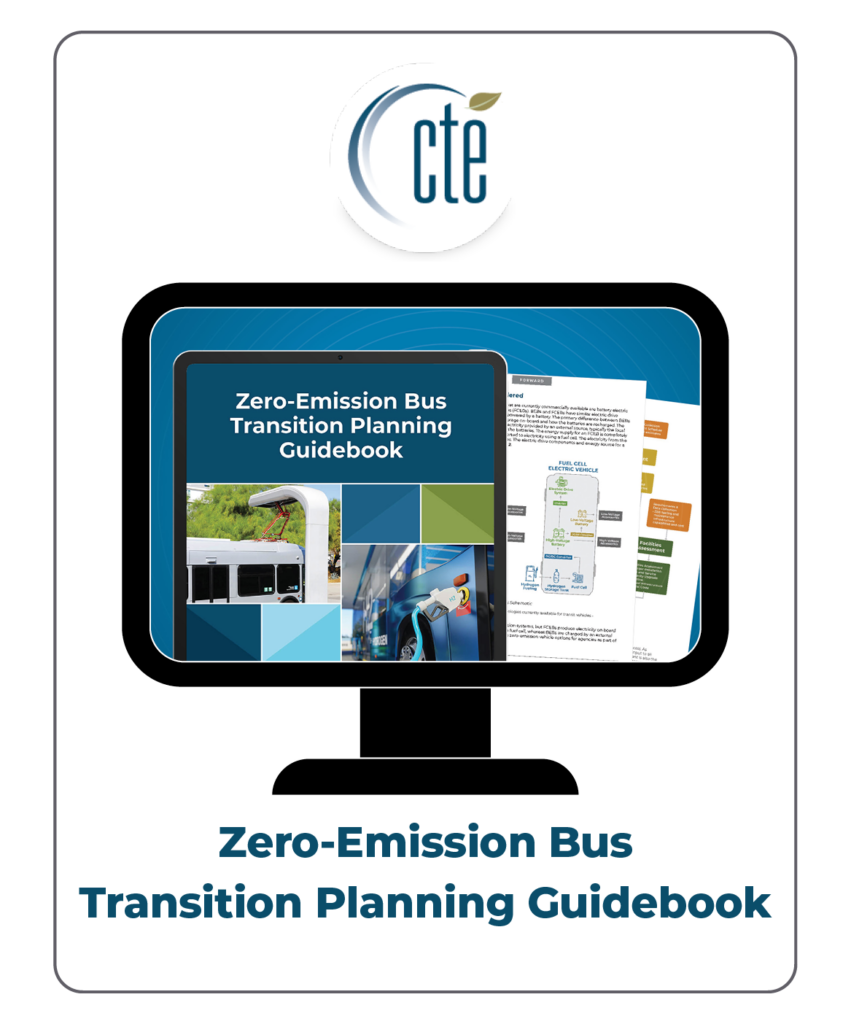
Zero-Emission Bus Transition Planning Guidebook
The Center for Transportation and the Environment
November 2024
TOPICS: Policy and Planning , Procurement , Zero Emission Buses
Transitioning to a ZEB fleet requires thorough planning and consideration of the elements that are unique to ZEBs, such as range limitations, higher vehicle costs, charging and/or hydrogen infrastructure, and operator and maintenance workforce development. Failing to plan around these issues may result in added costs for bus and infrastructure purchases, project delays, service concerns, and operational challenges as ZEBs become a larger and larger portion of the fleet.
A properly developed ZEB Transition Plan can help overcome these challenges. This Guidebook is intended to give public transit fleet operators the knowledge necessary to plan for a full fleet transition to zero-emission technologies with a ZEB Transition Plan.
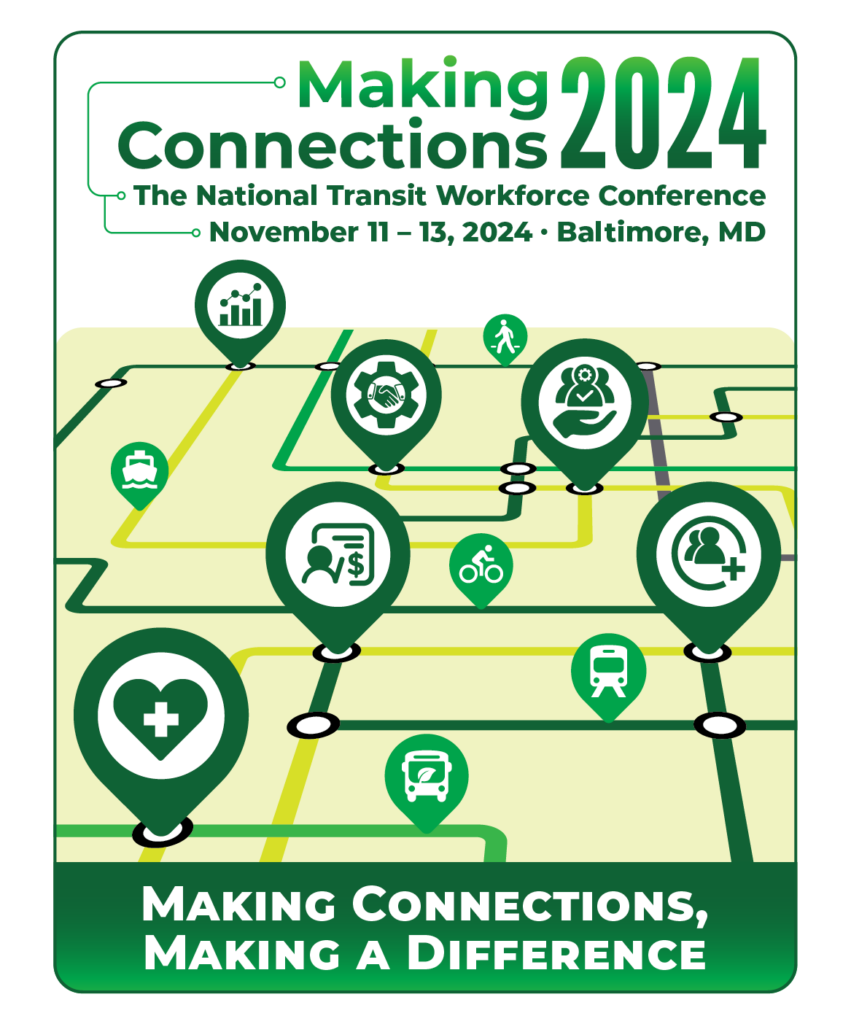
Making Connections 2024 – Plan, Train, Succeed: Building Your ZEV Workforce Transition Strategy
This session about transitioning the transit workforce to zero-emission vehicles was presented as part of TWC’s Making Connections 2024 transit workforce conference in November, 2024.
Transit Workforce Center
November 2024
Session Description: As the transit industry accelerates toward zero-emission vehicle (ZEV) adoption, a comprehensive workforce strategy is essential for a successful transition. This session focused on creating effective plans for workforce development, implementing targeted training programs with an emphasis on safety, and ensuring long-term success in transitioning to ZEVs. Attendees learned about applied research, innovative training solutions, and technical assistance designed to help transit agencies develop a skilled workforce equipped to support zero-emission technologies.
Moderator:
- Jason Macumber: Senior Advisor of Workforce Development and Technology – International Transportation Learning Center / Transit Workforce Center
Speakers:
- Eliseo Acosta Jr: Workforce Development Coordinator – Amalgamated Transit Union
- Mark Finnicum: Chief Operation Officer – Stark Area Regional Transit Authority
- Molly King: Deputy Associate Administrator for Research, Demonstration, and Innovation – Federal Transit Administration
- Jennifer Sweten: Director of Operations – Missoula Urban Transportation District
- Billy Terry: Director – National Transit Institute (NTI)

Making Connections 2024 – Zero In and Power Up: Resources for a Smooth Workforce Transition to Zero-Emission Vehicles
This full-day intensive session about transitions the transit workforce to zero-emission vehicles was presented as part of TWC’s Making Connections 2024 transit workforce conference in November, 2024.
Transit Workforce Center
November 2024
Session Description: Currently managing or expecting to begin the process of transitioning part of your fleet towards electrification? Transitioning from work with the 12- and 24-volts electrical systems in traditional diesel and CNG buses to Zero Emissions Buses (ZEBs), with upwards of 800 volts, requires a significant commitment to additional skills training and development for new and incumbent transit technicians. As a central component of a nationally-coordinated effort to help prepare frontline technicians with the training needed to meet the challenges and demands of this new technology, TWC has developed a Battery Electric Bus (BEB) familiarization course, currently delivered in partnership with National Transit Institute. This full-day session combined an in-depth introduction to key elements of the course resources, freely available to all, followed by an afternoon technical tour of a nearby ZEB maintenance facility.
Moderator:
- Jason Macumber: Senior Advisor of Workforce Development and Technology – International Transportation Learning Center / Transit Workforce Center
Speakers:
- Brandon Liu: Instructional Designer – International Transportation Learning Center / Transit Workforce Center
- Brian Markey: Chief Executive Officer – Custom Training Aids Inc.
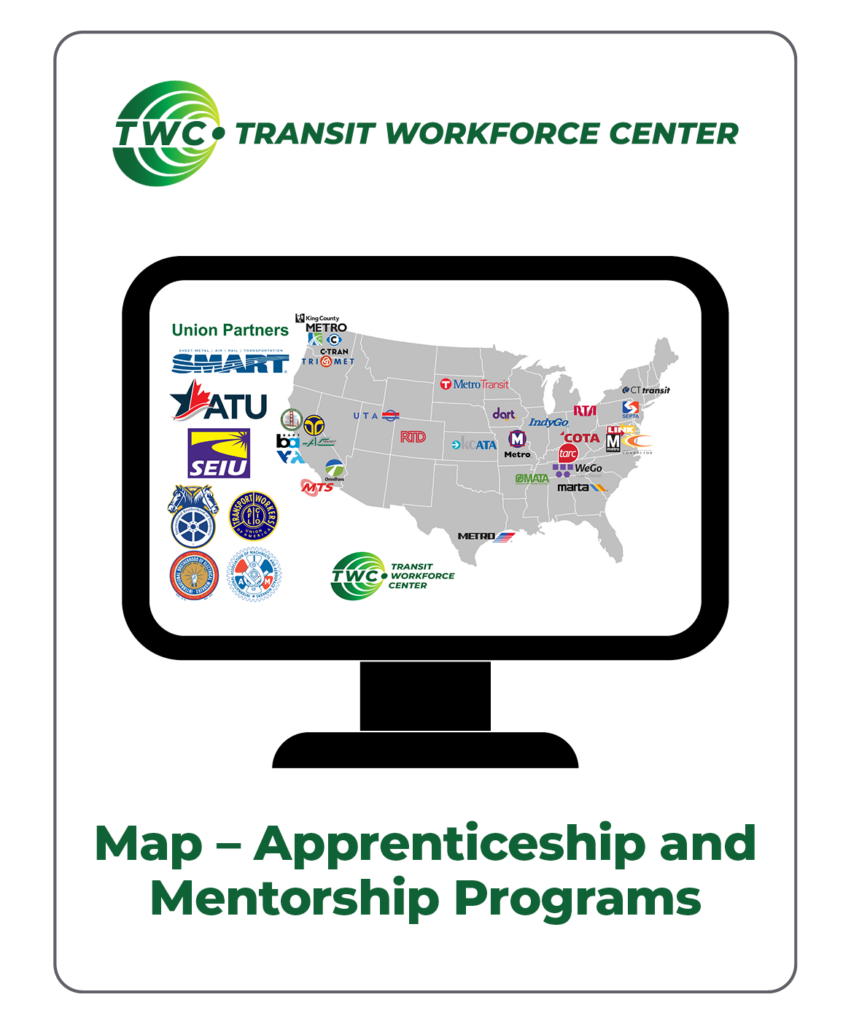
Map – Apprenticeship and Mentorship Programs
Visualizing the Growing Trend of Registered Apprenticeship in U.S. Transit Agencies
Over the past 10 years, the U.S. Department of Labor (DOL) and other federal agencies have invested heavily in promoting and supporting registered apprenticeship, resulting in a significant expansion of registered apprentice programs across the country. Likewise, the use of registered apprenticeship for frontline public transit occupations has increased significantly, with many transit agencies and their corresponding unions jointly adopting labor-management standards that create a framework for apprenticeship. Only five transit agencies had a registered apprenticeship program in 2013, compared with 30 transit agencies in 2023.
This map displays transit locations with registered apprenticeship or mentorship programs. Users can reveal information about the active apprenticeship/mentorship programs at each agency, the agency’s workforce-related statistics (such as wage, employee count, labor hours, and ridership), and links to Standards of Apprenticeship, which include details about qualifications, wages, hours, and training schedules.
Transit Workforce Center
September 2024
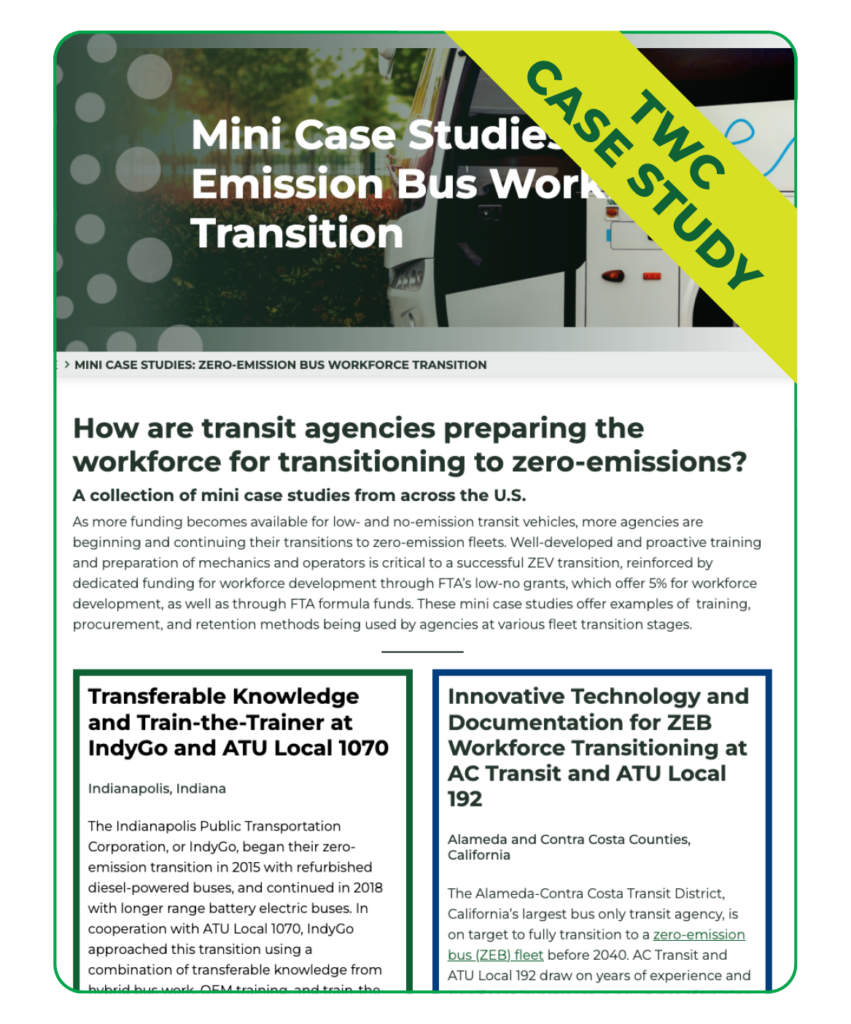
Mini Case Studies: Zero-Emission Bus Workforce Transition
Transit Workforce Center
August 2024
As more funding becomes available for low- and no-emission transit vehicles, more agencies are beginning and continuing their transitions to zero-emission fleets. Well-developed and proactive training and preparation of mechanics and operators is critical to a successful ZEV transition, reinforced by dedicated funding for workforce development through FTA’s low-no grants, which offer 5% for workforce development, as well as through FTA formula funds. These mini case studies offer examples of training, procurement, and retention methods being used by agencies at various fleet transition stages.
- Transferable Knowledge and Train-the-Trainer at IndyGo and ATU Local 1070
- Innovative Technology and Documentation for ZEB Workforce Transitioning at AC Transit and ATU Local 192
- Transitioning Operators Through Pre-Apprenticeship, Apprenticeship, and Mentorship at Golden Gate Transit and ATU Local 1575
- Frontline Worker Involvement in ZEB Transitioning at SporTran and ATU Local 588
- Midwest Hydrogen Center of Excellence at SARTA and AFSCME Local 1880
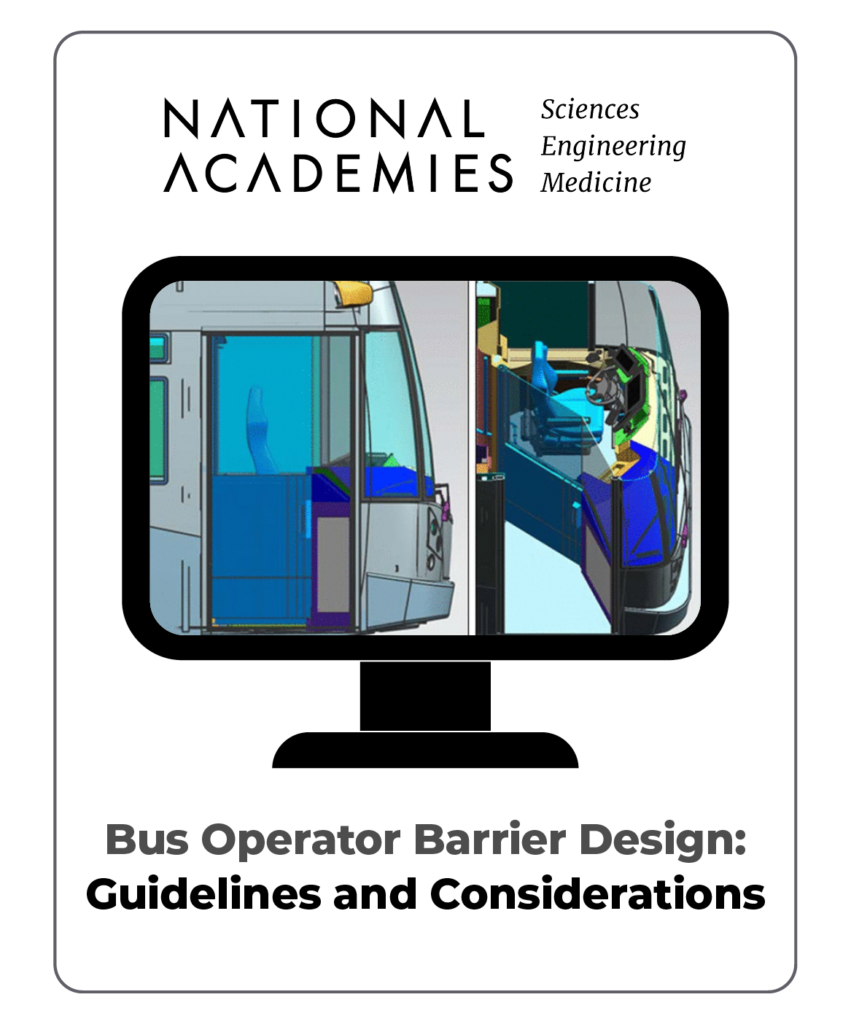
Bus Operator Barrier Design: Guidelines and Considerations
Transit Cooperative Research Program
July 2024
TOPICS: Policy and Planning , Procurement , Safety and Health
The importance of security barriers for transit bus operators became even clearer after the fatal attack on a Tampa, Florida, bus operator in 2019. The need for security barriers was reinforced by a serious attack on another operator for that same system later that year. While these are two extreme examples, they are likely not unique, as many assaults against transit workers have been underreported in the past. Another important but more pernicious risk to bus operator health is viral and bacterial infection.
TCRP Research Report 249: Bus Operator Barrier Design: Guidelines and Considerations, a pre-publication draft from TRB’s Transit Cooperative Research Program, provides information and guidance for North American public transportation agencies, standards committees, and government and non-government policymaking organizations on designing, procuring, and installing bus operator barriers to prioritize the health and safety of essential operators and the public they serve.
Contributor(s): National Academies of Sciences, Engineering, and Medicine; STYL&TECH; International Transportation Learning Center; Transportation Research Board; Transit Cooperative Research Program; Andrew Krum; Scott Tidwell; Joshua Skole; Erin Mabry; Aditi Manke; Tarah Crowder; Christy Campoll
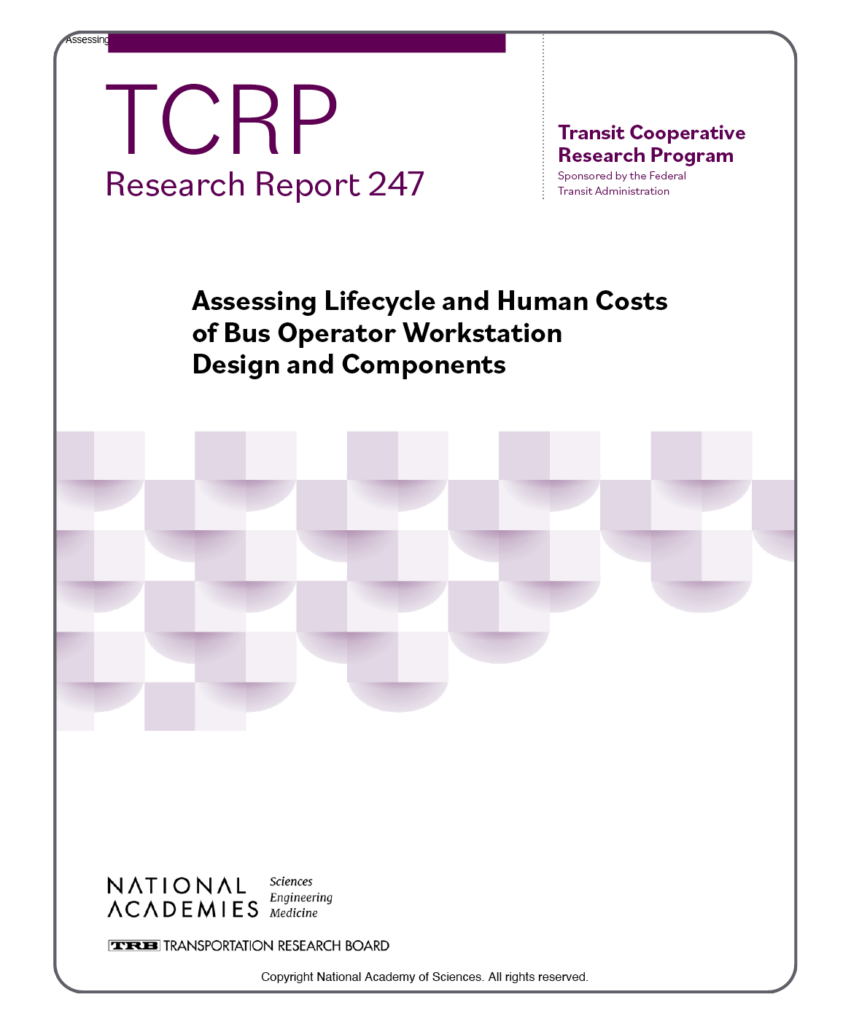
Assessing Lifestyle and Human Costs of Bus Operator Workstation Design and Components
Transit Cooperative Research Board
TOPICS: Policy and Planning , Retention , Safety and Health
Driving trucks and buses is a physically demanding occupation that carries one of the highest injury rates of major occupational categories in the United States. Drivers often work in postures that increase risk of low back pain and other musculoskeletal disorders, slow their response time, and put them at increased risk for acute injuries due to crashes.
TCRP Research Report 247: Assessing Lifecycle and Human Costs of Bus Operator Workstation Design and Components, from TRB’s Transit Cooperative Research Program, creates an easy-to-use toolkit for predicting the long-term safety of and promoting a healthy environment in bus operator workstations.
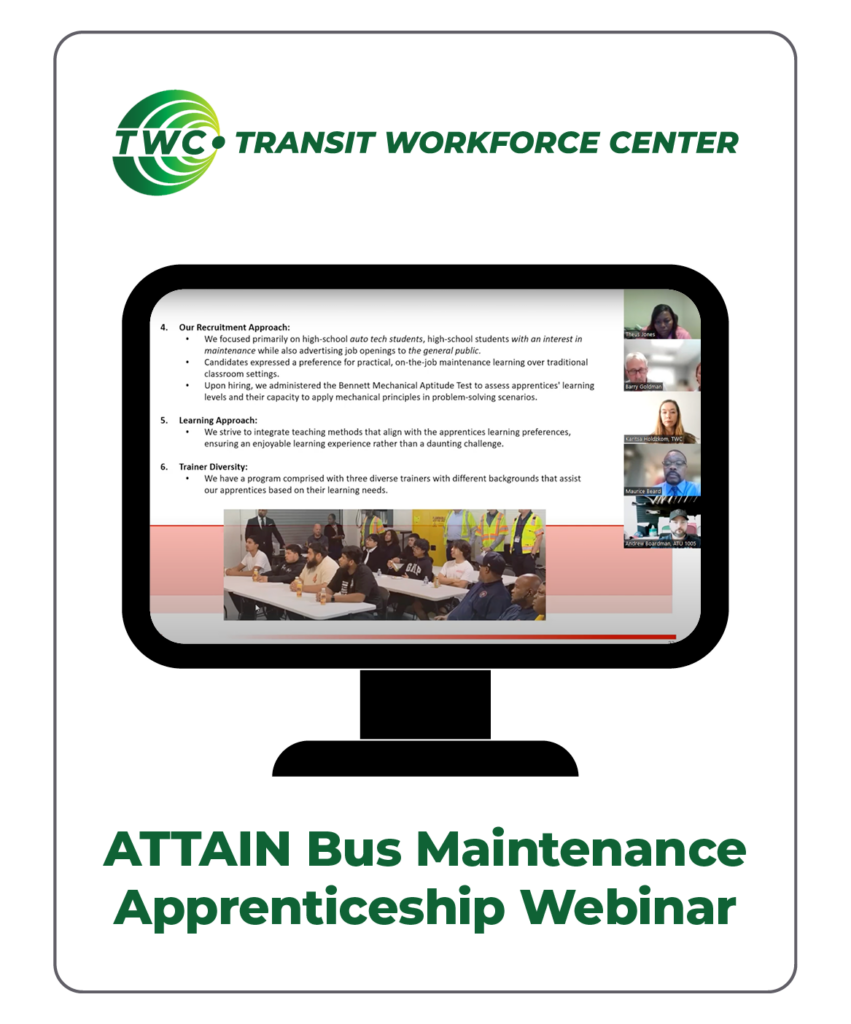
ATTAIN Bus Maintenance Apprenticeship Webinar
Transit Workforce Center
June 2024
TOPICS: Apprenticeship , Mentorship , Trainer and Mentor Development , Training
Enjoy this recorded convening of TWC’s American Transit Training and Apprenticeship Innovators Network (ATTAIN) comprised of several engaging presentations that highlight apprenticeship programs across the nation, followed by interactive discussions with Fairfax County Connector/Amalgamated Transit Union (ATU) Local 689 and Metro Transit/ATU Local 1005 on the development of mentorship and apprenticeship programs, how they work, and the benefits they can offer agencies and their workforce.
Below, you can find the link to the full slideshow used in the meeting.
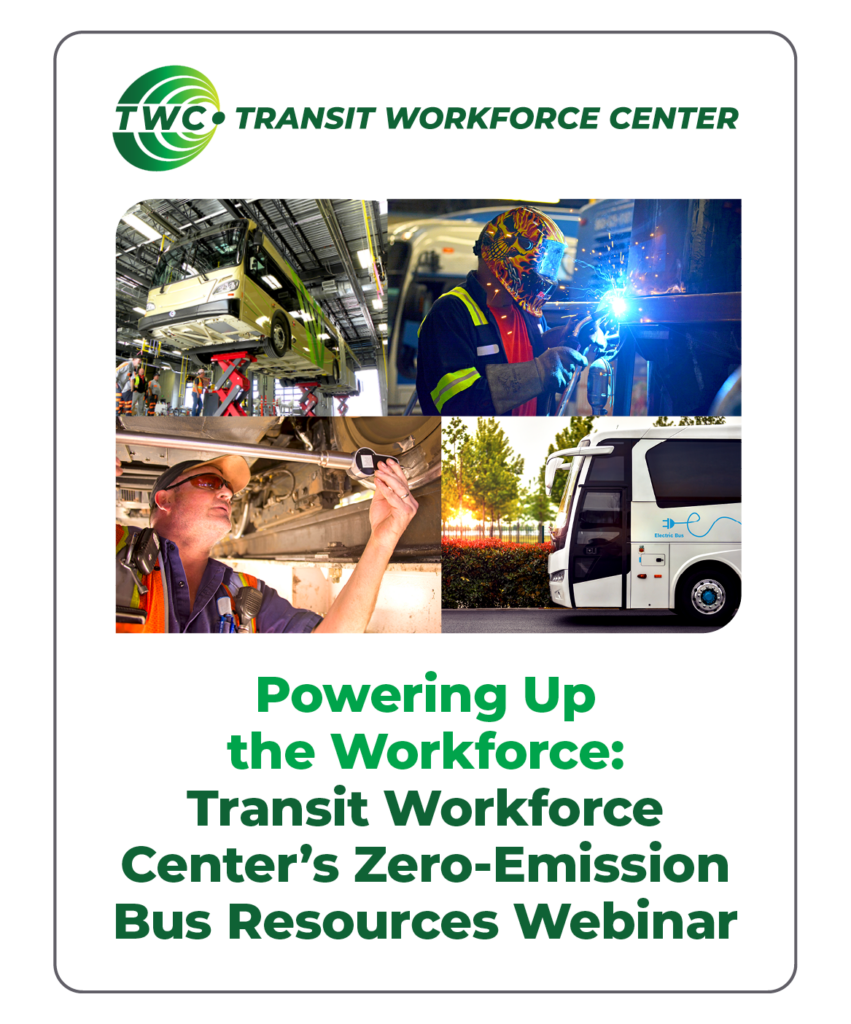
Powering Up the Workforce: Transit Workforce Center’s Zero-Emission Bus Resources Webinar
A safe and successful transition to zero-emission vehicles requires a significant commitment to additional workforce skills, training, and development. This webinar showcases the tools and resources TWC makes available to help frontline technicians meet the challenges and demands of ZEB technology. Hear from and enjoy this interactive discussion with TWC, the Federal Transit Administration, the National Transit Institute, and the American Public Transportation Association.
Transit Workforce Center
June 2024
TOPICS: Zero Emission Buses
Below, you will find the link to the full slideshow used during the webinar as well as other useful resources.
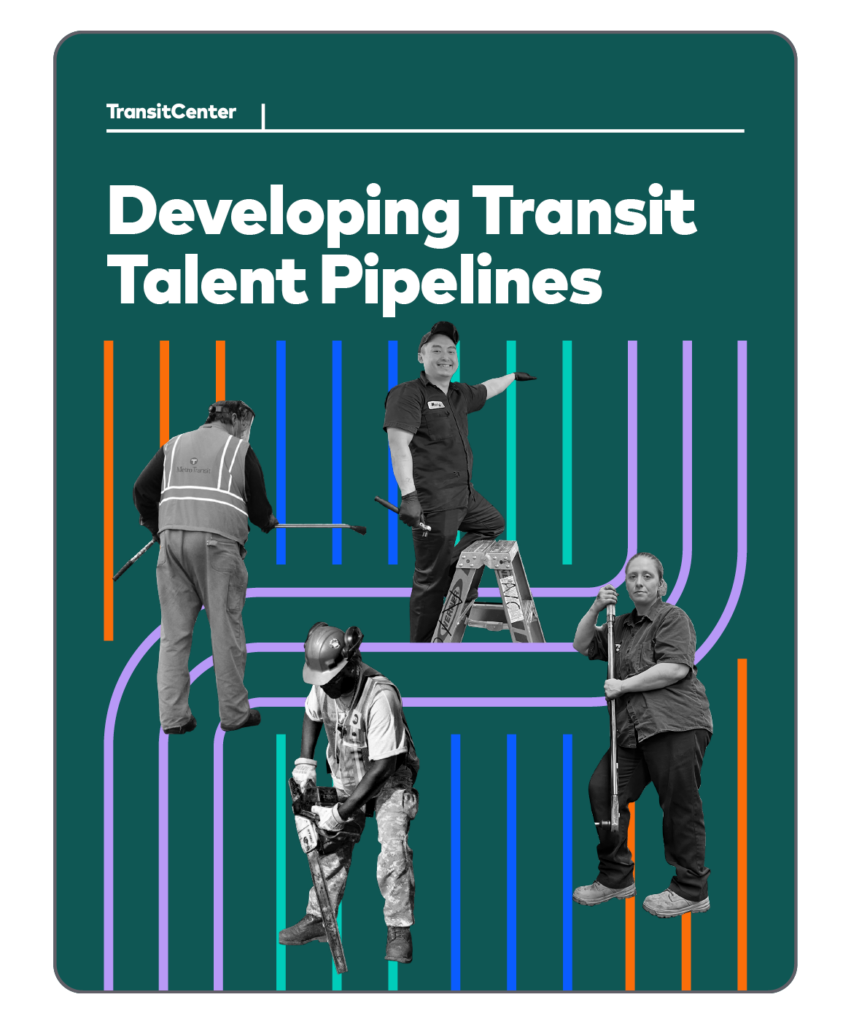
Developing Transit Talent Pipelines
TransitCenter’s report explores the workforce challenges of transit bus mechanics and maintenance workers, which are essential for transitioning to zero-emissions buses and restoring pre-pandemic service. Agencies are struggling to maintain a steady pipeline for these positions due to retirements, attrition, and a changing labor market. The report determines that agencies should engage more actively with potential workers and encourage them to join the transit workforce, as well as finding new ways to prepare new workers and retrain current workers to meet current and future needs, particularly as technology for zero-emission buses continues to change and grow more widespread. The report recommends greater investment from transit agencies, state and federal government, and philanthropy to support transit jobs.
TransitCenter
May 2024
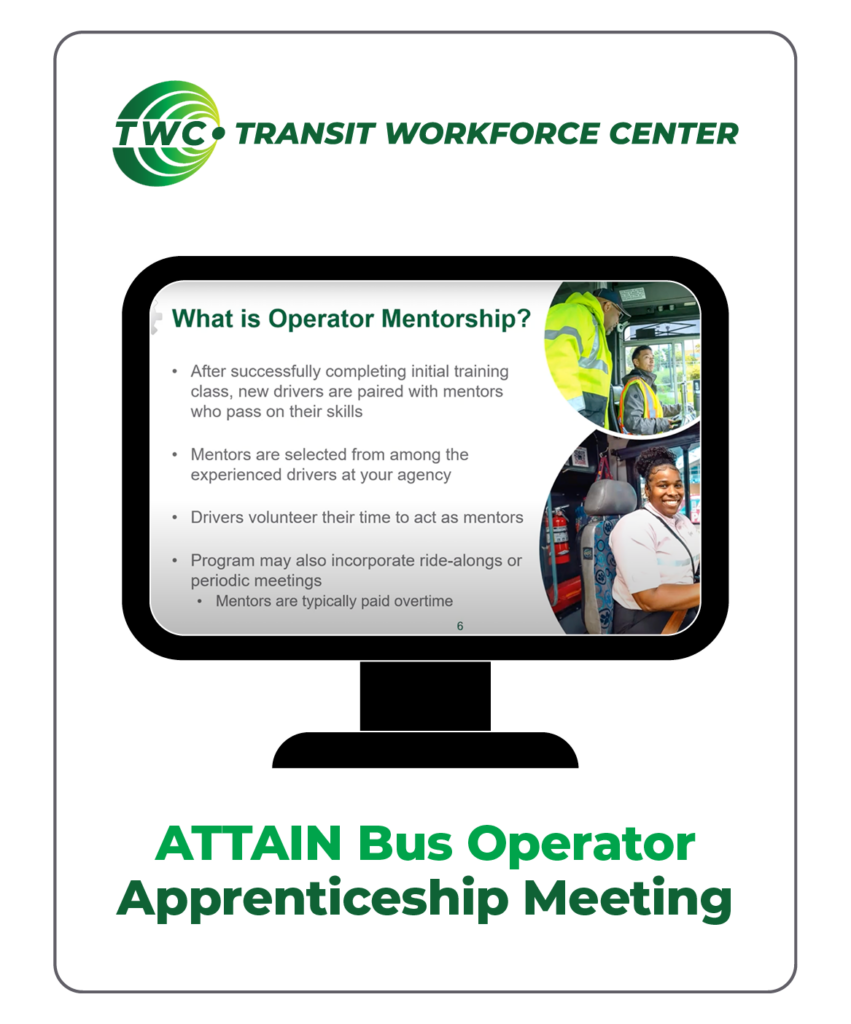
ATTAIN Bus Operator Apprenticeship Meeting
TWC’s American Transit Training and Apprenticeship Innovators Network (ATTAIN) met on May 17, 2024 to discuss bus operator apprenticeship. Check out the recording for short presentations from transit peers across the country and an engaging and interactive discussion about the development of bus operator mentorship and apprenticeship programs, how they work, and the benefits they offer.
Transit Workforce Center
May 2024
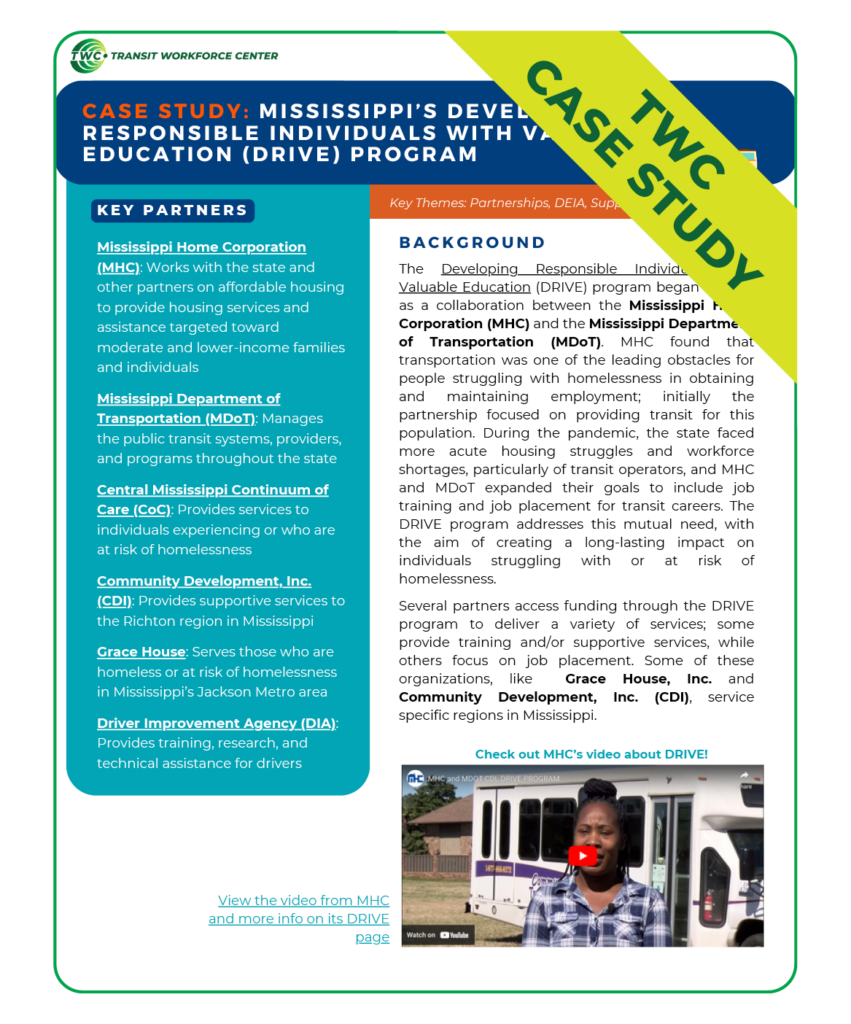
Mississippi’s Developing Responsible Individuals with Valuable Education (DRIVE) Program
This TWC case study is about the Mississippi Developing Responsible Individuals with Valuable Education (DRIVE) Program, which uses Emergency Solutions Grants (ESG) from the U.S. Department of Housing and Urban Development, distributed by the Mississippi Home Corporation (MHC), to partners such as Grace House, Inc. and Community Development, Inc. (CDI). These partners use the funding in a variety of creative ways to provide housing and other supportive services to DRIVE participants while they complete training and certification for a commercial driver’s license (CDL). Partners also provide job assistance to participants, placing them and helping them succeed in local transit jobs. Learn more about the program, services offered, and how stakeholders leverage funding in the full case study.
Transit Workforce Center
May 2024
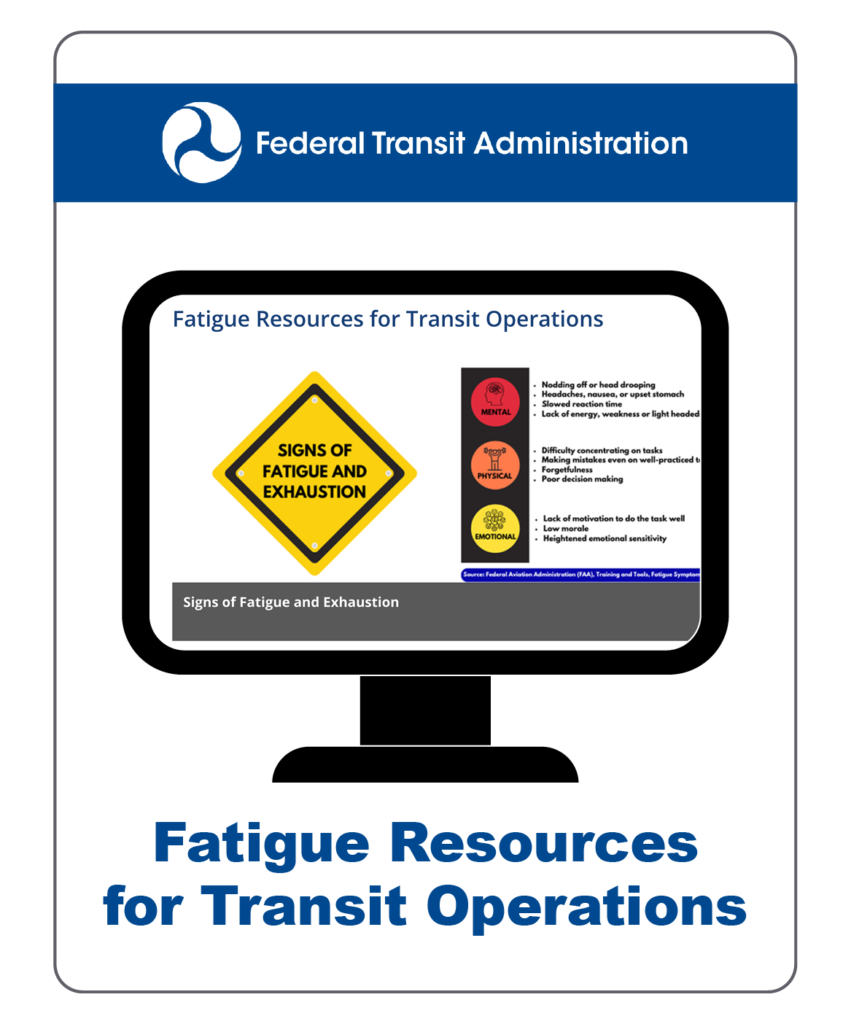
Fatigue Resources for Transit Operations
To support the transit industry, FTA has compiled resources that can be used to better understand fatigue and fatigue-related issues in the workplace. The site includes resources about understanding sleep, causes of fatigue, symptoms and warning signs, effects, relevance to transit workers and agencies, and fatigue risk management systems.
Federal Transit Administration
TOPICS: Policy and Planning , Safety and Health , Training
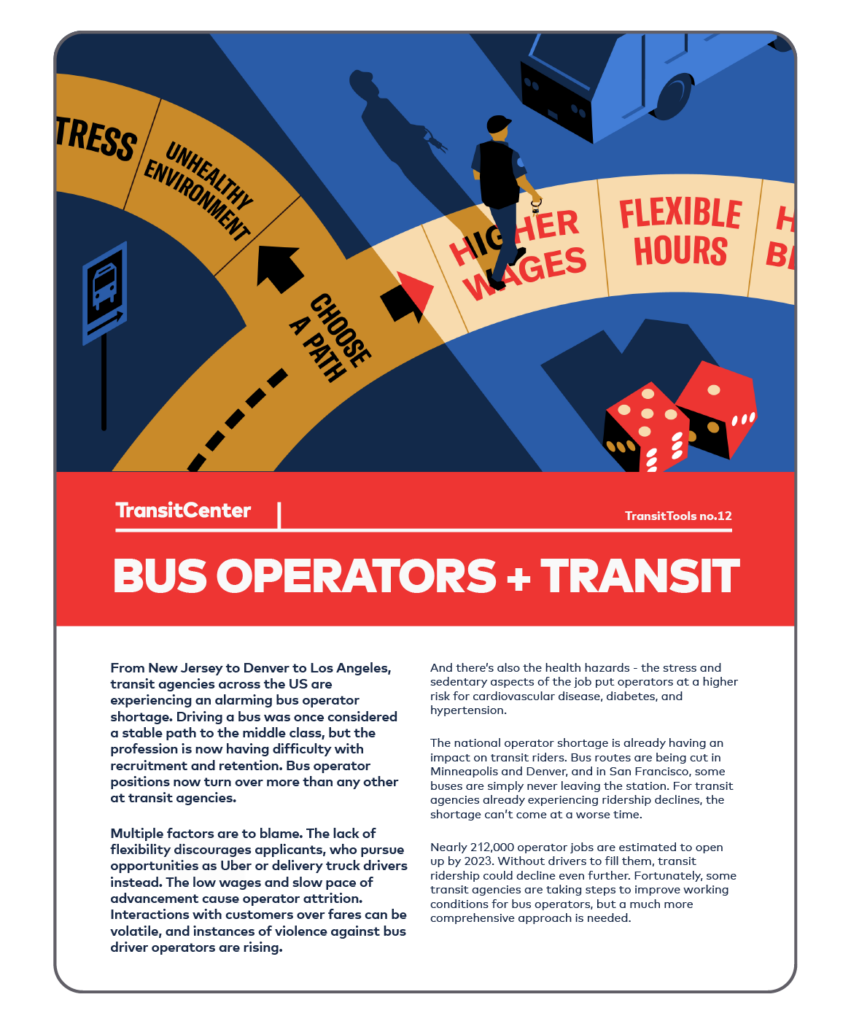
3 Ways to Make Bus Driving a Better Job
This report highlights ways that bus driving can be improved for workers to help increase retention and recruitment. The report explains three specific ways: redesigning the job for health and success, raising pay and creating opportunities for advancement, and making a more flexible schedule.
The National Campaign for Transit Justice
March 2024
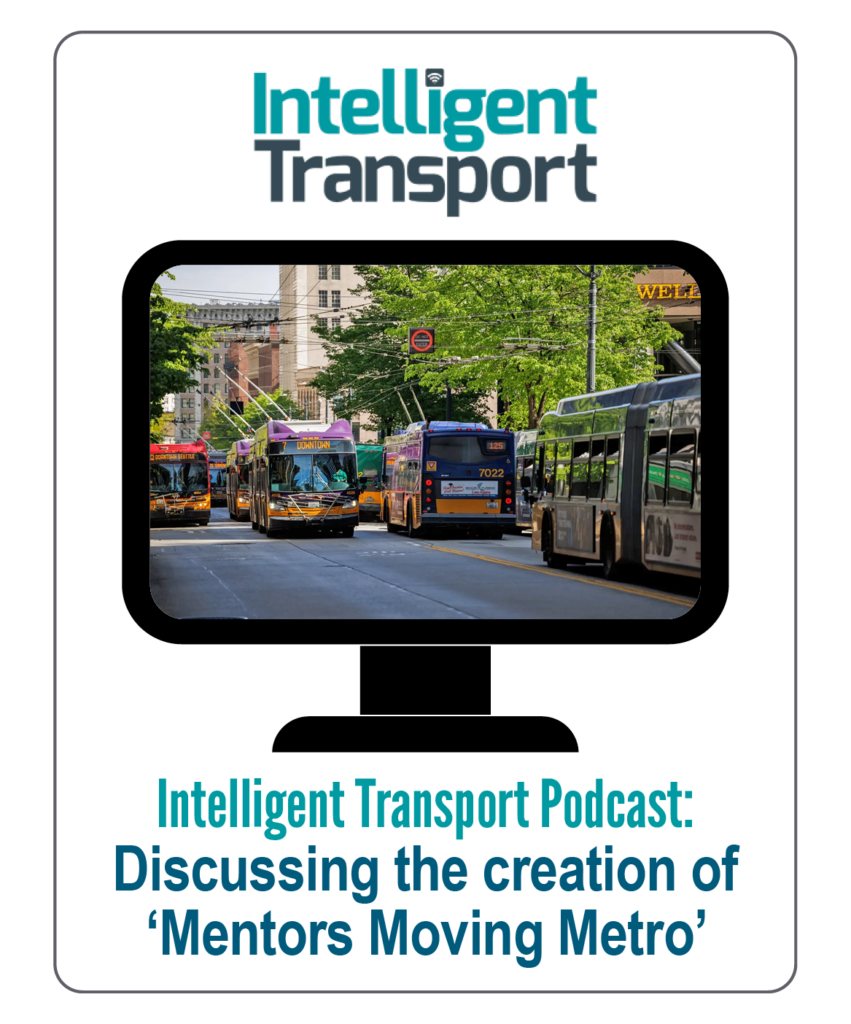
Intelligent Transport Podcast: Discussing the creation of ‘Mentors Moving Metro’
“Mentors Moving Metro” is a partnership between Metro and the Amalgamated Transit Union (ATU) Local 587 that will match experienced operators with new, part-time operators for six to 12 months. In this podcast discussion, Metro’s Director of Bus Operations, Phil DeVault, and transit operator and ATU member, Patrick Brady, talk about how “Mentors Moving Metro” is helping foster relationships and provide knowledge that can only come those who have been “in the seat.” They discussed the origins of the program, how mentors can be a morale boost for operators, and how it can foster greater interaction between operators and management. They finished the podcast by discussing their vision on developing it from a mentorship program to an apprenticeship program for drivers joining Metro in the future.
Intelligent Transport
March 2024
TOPICS: Apprenticeship , Career Pathways , Labor-Management Partnerships , Mentorship , Training
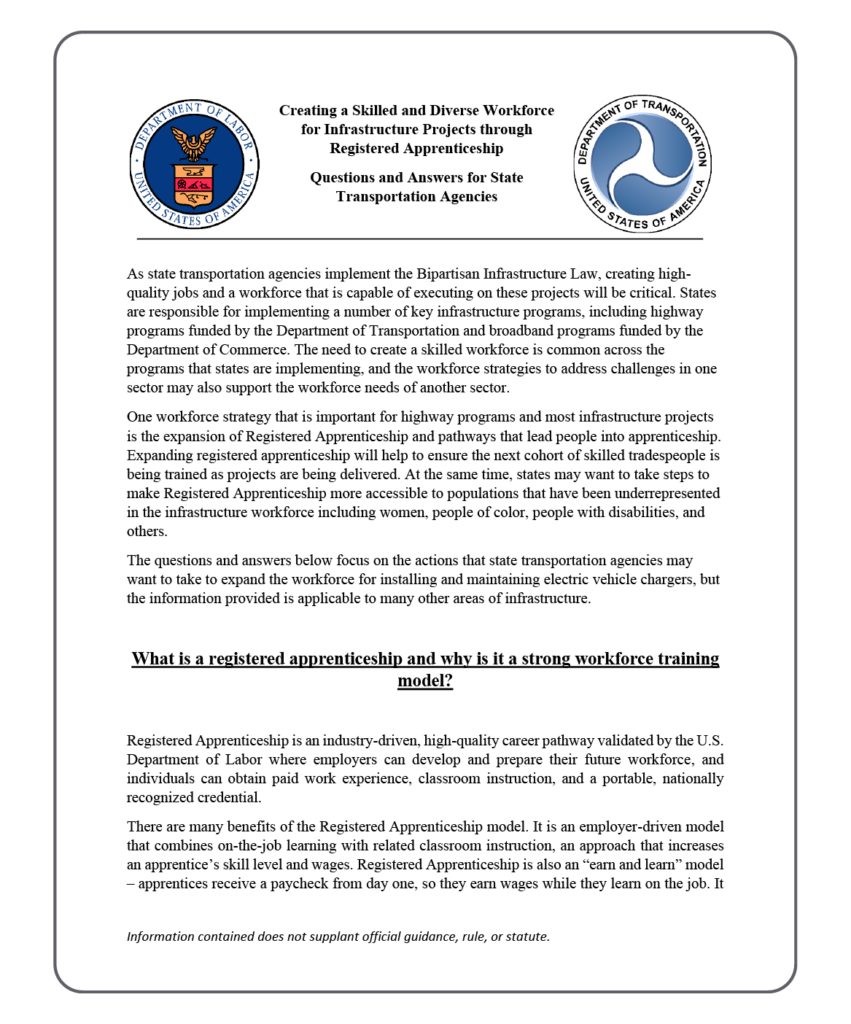
Creating a Skilled and Diverse Workforce for Infrastructure Projects through Registered Apprenticeship
The expansion of Registered Apprenticeship and pathways that lead people into apprenticeship is an important workforce strategy for many infrastructure projects. Agencies can take steps to make Registered Apprenticeship more accessible to populations that have been underrepresented in the infrastructure workforce including women, people of color, people with disabilities, and others.
The questions and answers in this resource focus on expanding the workforce for installing and maintaining electric vehicle chargers, but the information provided is applicable to many other areas of infrastructure and transportation.
Department of Labor, Department of Transportation
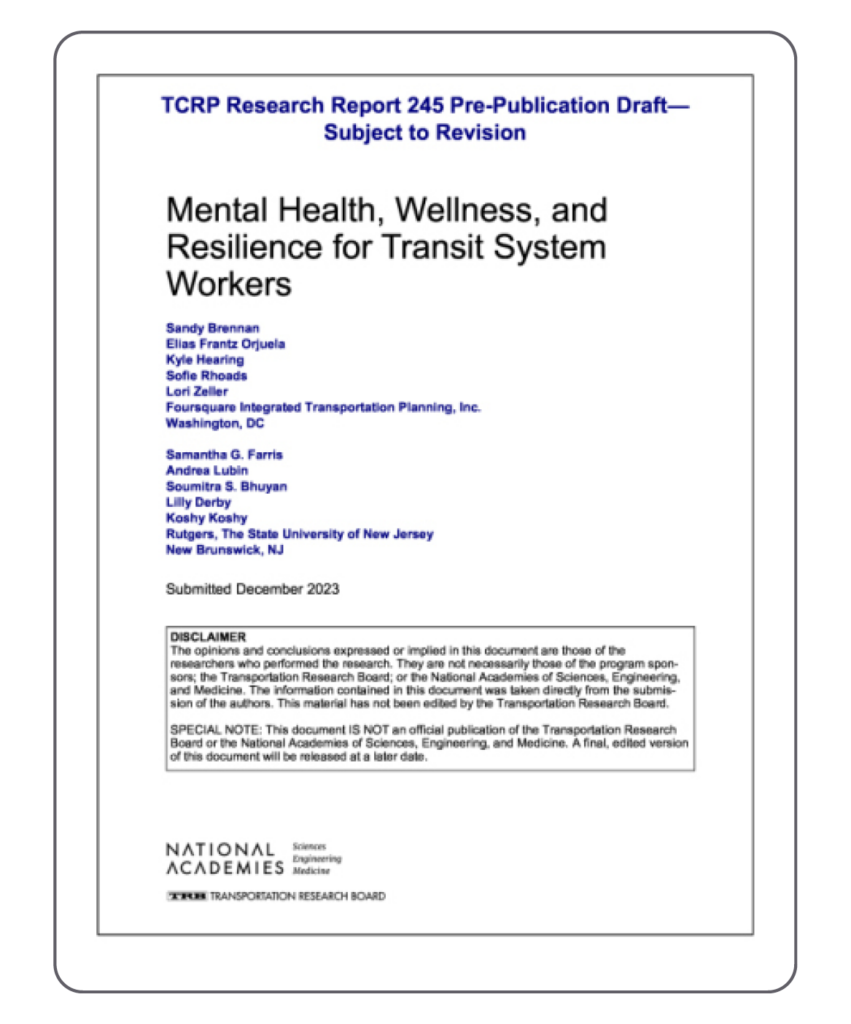
Mental Health, Wellness, and Resilience for Transit System Workers
TCRP Research Report 245: Mental Health, Wellness, and Resilience for Transit System Workers, a pre-publication from TRB’s Transit Cooperative Research Program, provides a detailed summary of common factors that influence the mental health, well-being, and resiliency of frontline transit workers and includes a range of solutions that transit agencies can implement to address them. Findings were determined using a mix of research methods, including multiple interviews and focus groups with frontline employees, transit agency management, and union leadership at two different points in the project.
Transit Cooperative Research Program
February 2024
TOPICS: Policy and Planning , Safety and Health
Contributor(s): Sandy Brennan, Elias Frantz Orjuela, Kyle Hearing, Sofie Rhoads, Lori Zeller, Samantha G. Farris, Andrea Lubin, Soumitra S. Bhuyan, Lilly Derby, Koshy Koshy; Transit Cooperative Research Program; Transportation Research Board; National Academies of Sciences, Engineering, and Medicine
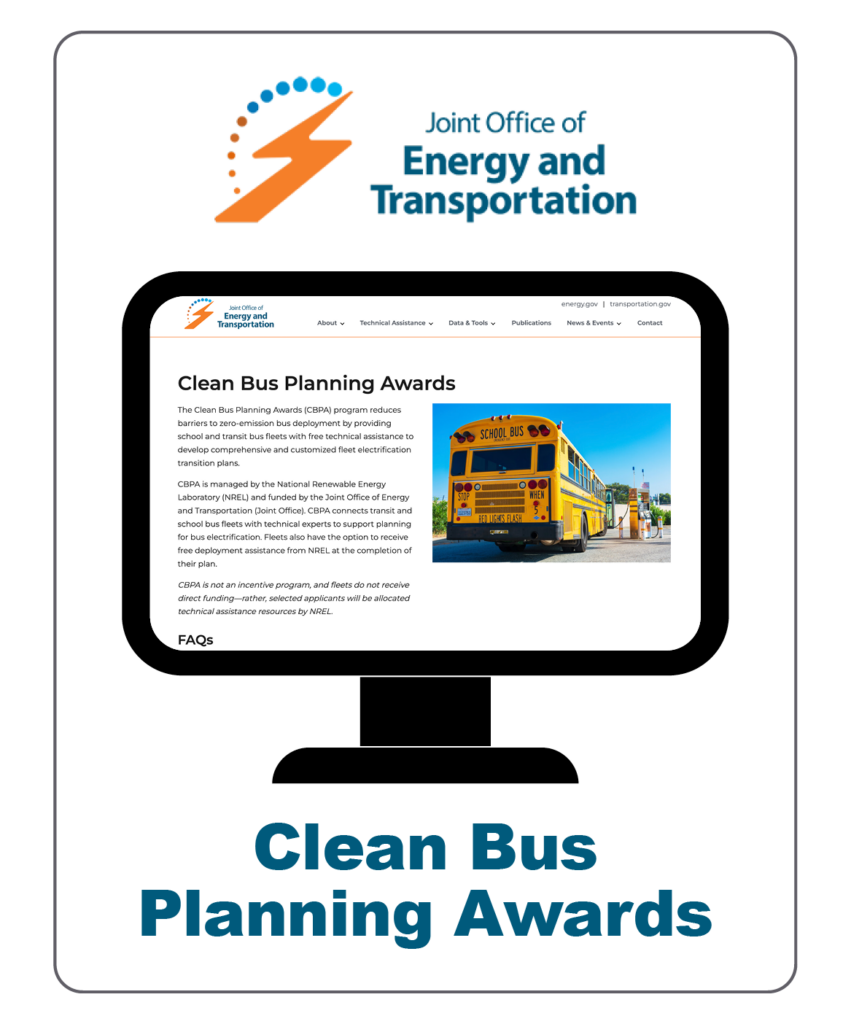
Clean Bus Planning Awards
The Clean Bus Planning Awards (CBPA) program reduces barriers to zero-emission bus deployment by providing school and transit bus fleets with free technical assistance to develop comprehensive and customized fleet electrification transition plans. Applications may be submitted on a rolling basis.
Joint Office of Energy and Transportation, National Renewable Energy Laboratory
February 2024
TOPICS: Policy and Planning , Zero Emission Buses
CBPA is not an incentive program, and fleets do not receive direct funding—rather, selected applicants will be allocated technical assistance resources by NREL.
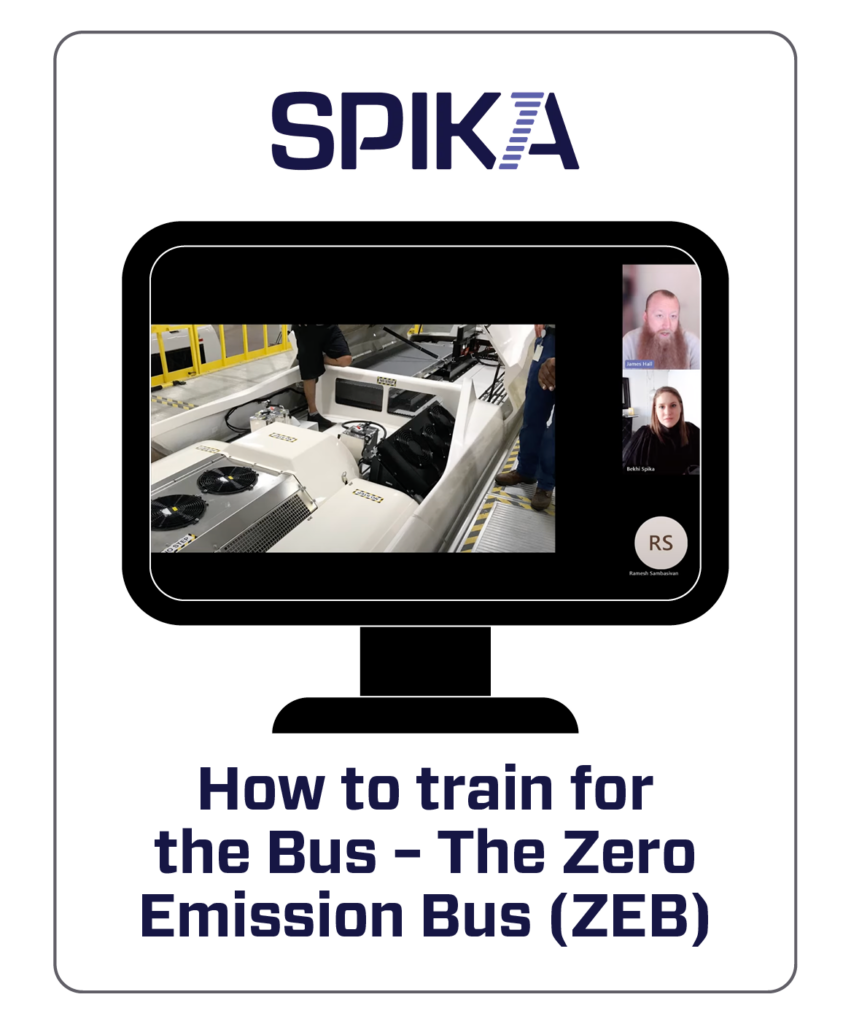
How to train for the Bus – The Zero Emission Bus (ZEB)
In this video, James Hall, Principal & Founder of ZEB Tech, and Bekhi Spika, Vice President & Chief Revenue Officer of Spika Design & Manufacturing, have a conversation about transitioning and training the transit workforce for zero-emission buses.
Spika Design & Manufacturing
February 2024
TOPICS: Training , Zero Emission Buses
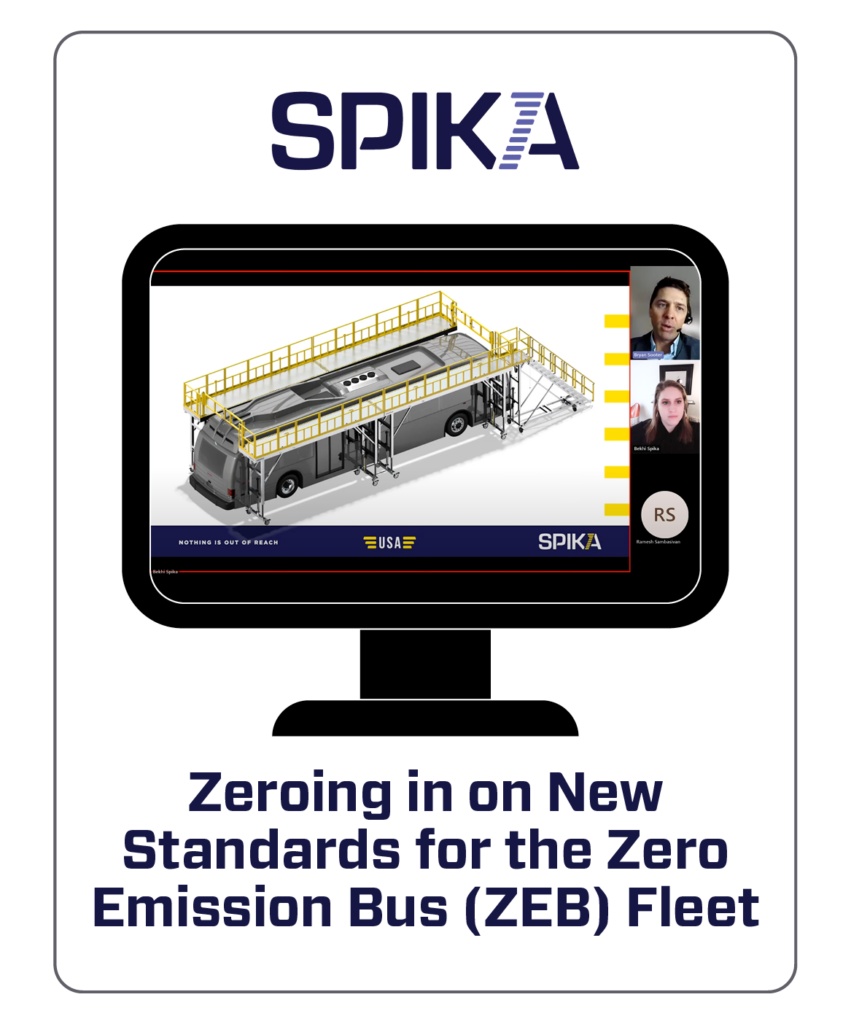
Zeroing in on New Standards for the Zero Emission Bus (ZEB) Fleet
In this video, Bryan Sooter, P.E., Director of Standards at the American Public Transportation Association (APTA), and Bekhi Spika, VP and CRO of Spika Design & Manufacturing, have a conversation about ZEB standards, including how standards are created in public transportation; the challenges faced by transit agencies in getting prepared for an entirely new way of operating with entirely new technology in existing, new or modified infrastructure; the kinds of areas that new standards on ZEB can be expected to encompass; and the guidance on resources available from APTA for transit agencies shifting to ZEB fleets.
Spika Design & Manufacturing
February 2024
TOPICS: Policy and Planning , Training , Zero Emission Buses
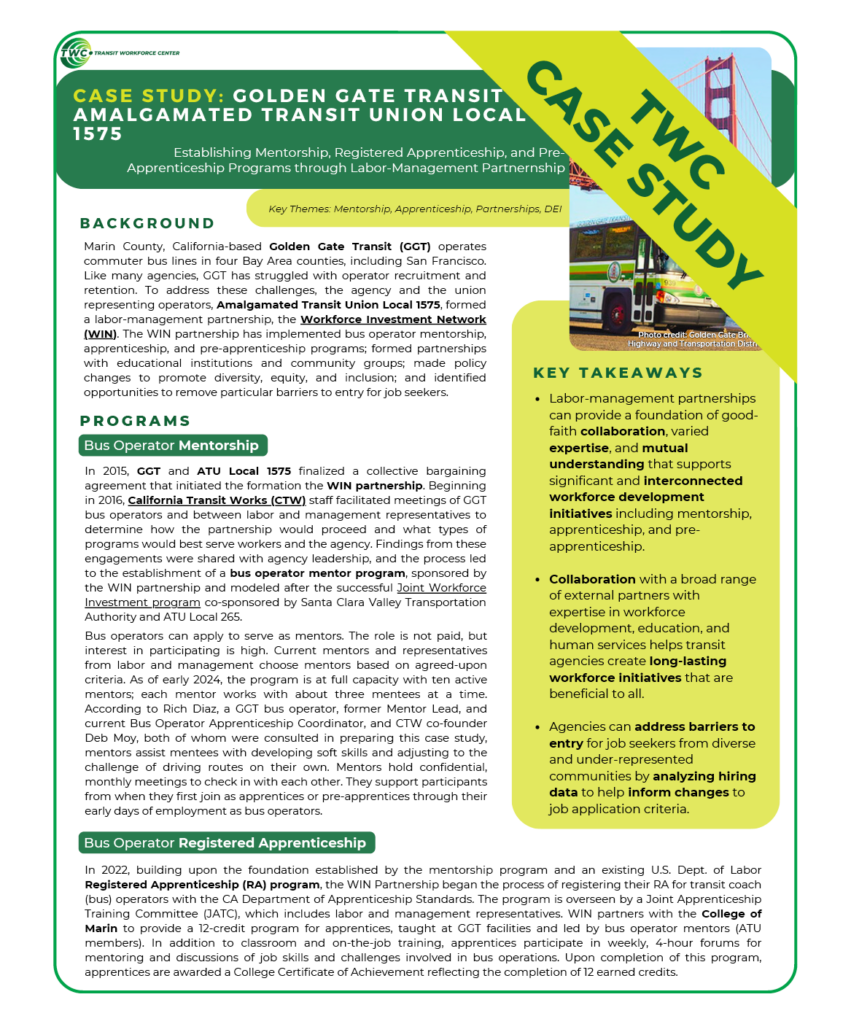
Case Study: Golden Gate Transit & Amalgamated Transit Union Local 1575
Marin County, California-based Golden Gate Transit (GGT) operates commuter bus lines in four Bay Area counties, including San Francisco. Like many agencies, GGT has struggled with operator recruitment and retention. To address these challenges, the agency and the union representing operators, Amalgamated Transit Union Local 1575, formed a labor-management partnership, the Workforce Investment Network (WIN). The WIN partnership has implemented bus operator mentorship, apprenticeship, and pre-apprenticeship programs; formed partnerships with educational institutions and community groups; made policy changes to promote diversity, equity, and inclusion; and identified opportunities to remove particular barriers to entry for job seekers.
Transit Workforce Center
February 2024
Read Rich Diaz’s Transit Career Story on the TWC Blog to learn more.
View the full case study below:
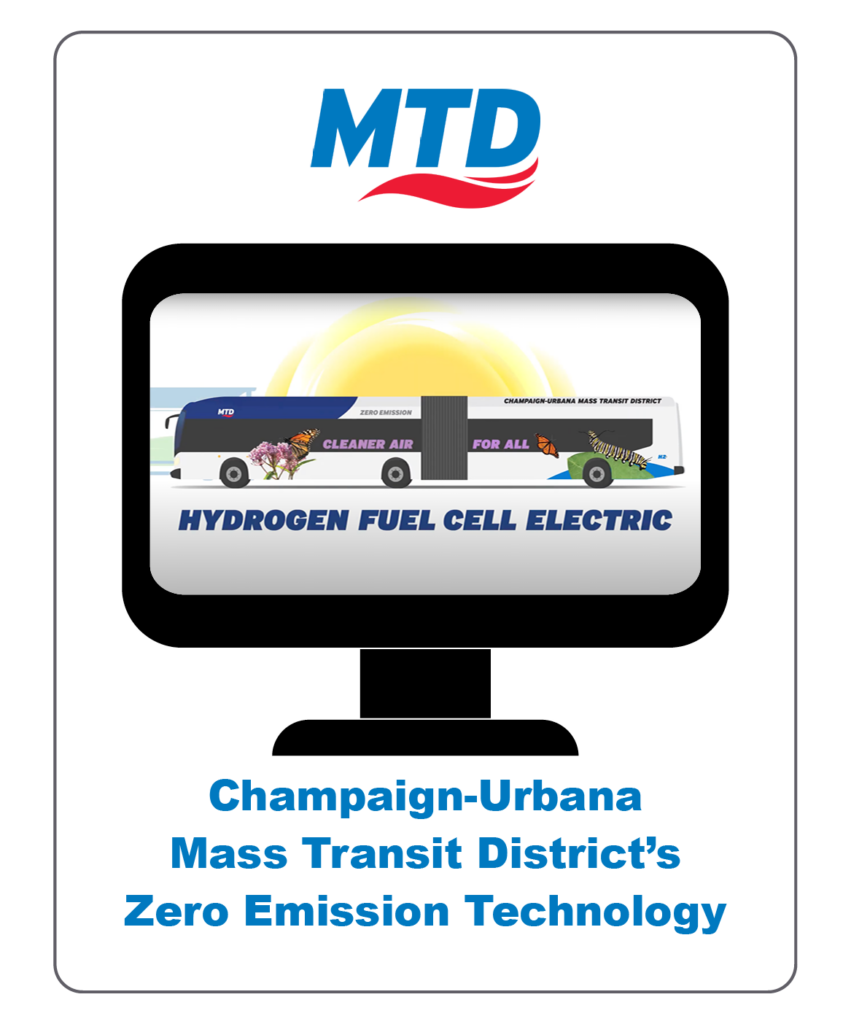
Champaign-Urbana Mass Transit District’s Zero Emission Technology
Check out Champaign-Urbana Mass Transit District’s (MTD) zero emission technology! In these videos, MTD unveils their zero-emission buses and their work to use fully solar-produced hydrogen.
Champaign-Urbana Mass Transit District
February 2024
TOPICS: Zero Emission Buses
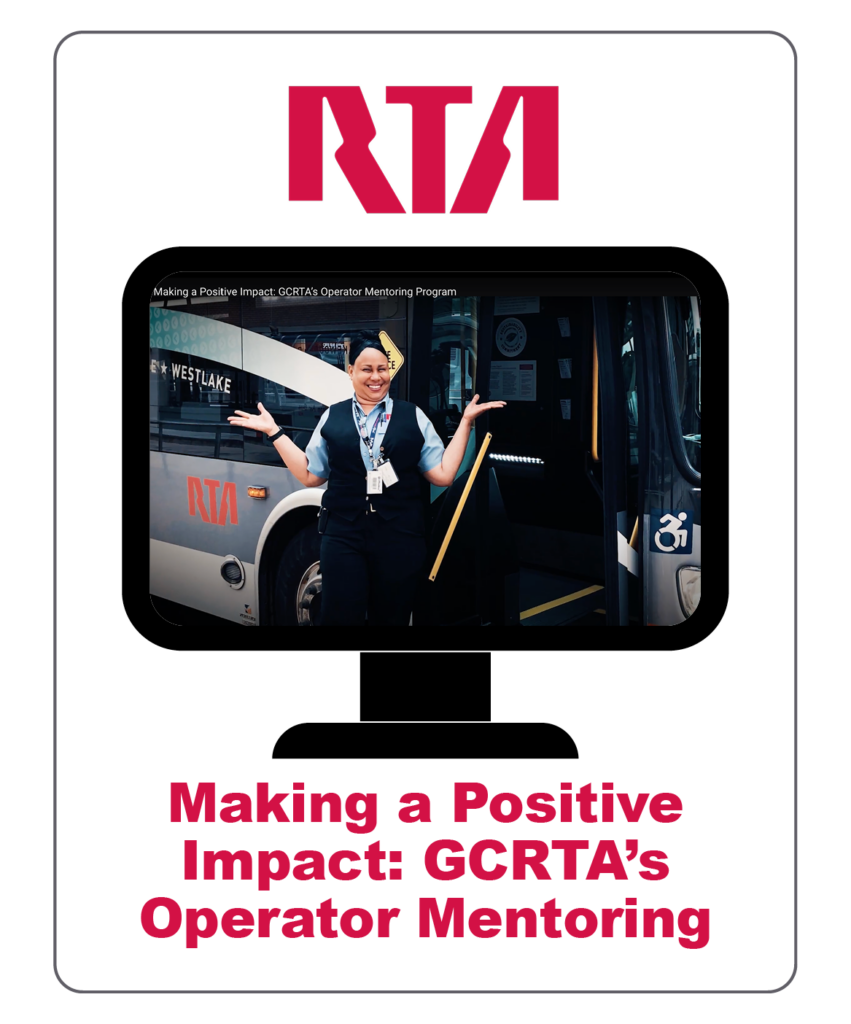
Making a Positive Impact: GCRTA and ATU Local 268’s Operator Mentoring Program
This video provides an overview of the Greater Cleveland Regional Transit Authority (GCRTA) and Amalgamated Transit Union (ATU) Local 268 operator mentoring program. Incorporating the voices of frontline workers, it explains the benefits of mentoring that GCRTA has realized and provides a window into how the program developed.
Greater Cleveland Regional Transit Authority, Amalgamated Transit Union Local 268
February 2024
TOPICS: Mentorship
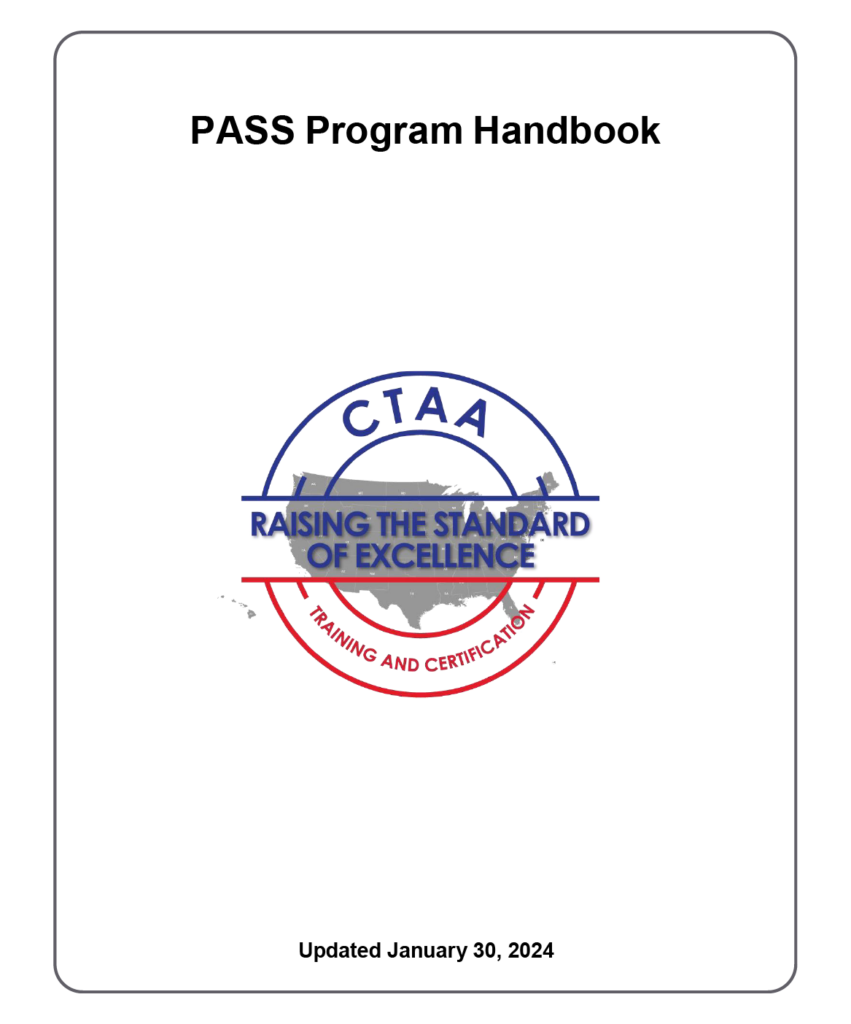
Passenger Assistance, Safety And Sensitivity (PASS) Program Handbook
CTAA’s Passenger Assistance, Safety and Sensitivity (PASS) driver training program provides resources and standards for operators to transport passengers in the most safe, sensitive and careful manner possible. PASS is ideal for non-emergency medical transportation (NEMT) trips, for ADA paratransit services, for specialized transit for older passengers, for human and social service riders — really any transportation operation where the passengers require extra care.
Community Transportation Association of America
January 2024
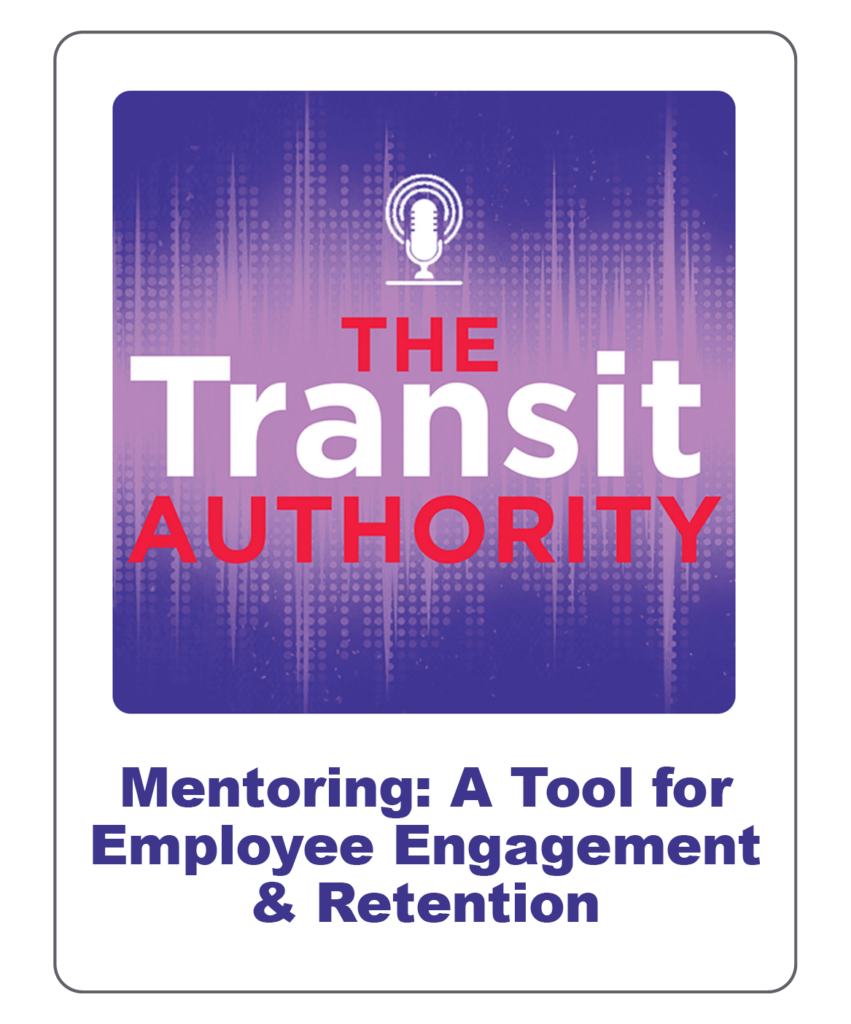
Mentoring: A Tool for Employee Engagement & Retention
APTA’s podcast, The Transit Authority, presents a two-part series on mentoring. The Santa Clara Valley Transportation Authority (VTA) and Greater Cleveland Regional Transit Authority (GCRTA) will discuss their partnerships with ATU to build and manage successful mentoring programs and how mentoring is a critical tool for knowledge transfer, positive work culture, and diverse perspectives.
American Public Transportation Association
January 2024
TOPICS: Career Pathways , Labor-Management Partnerships , Mentorship , Retention
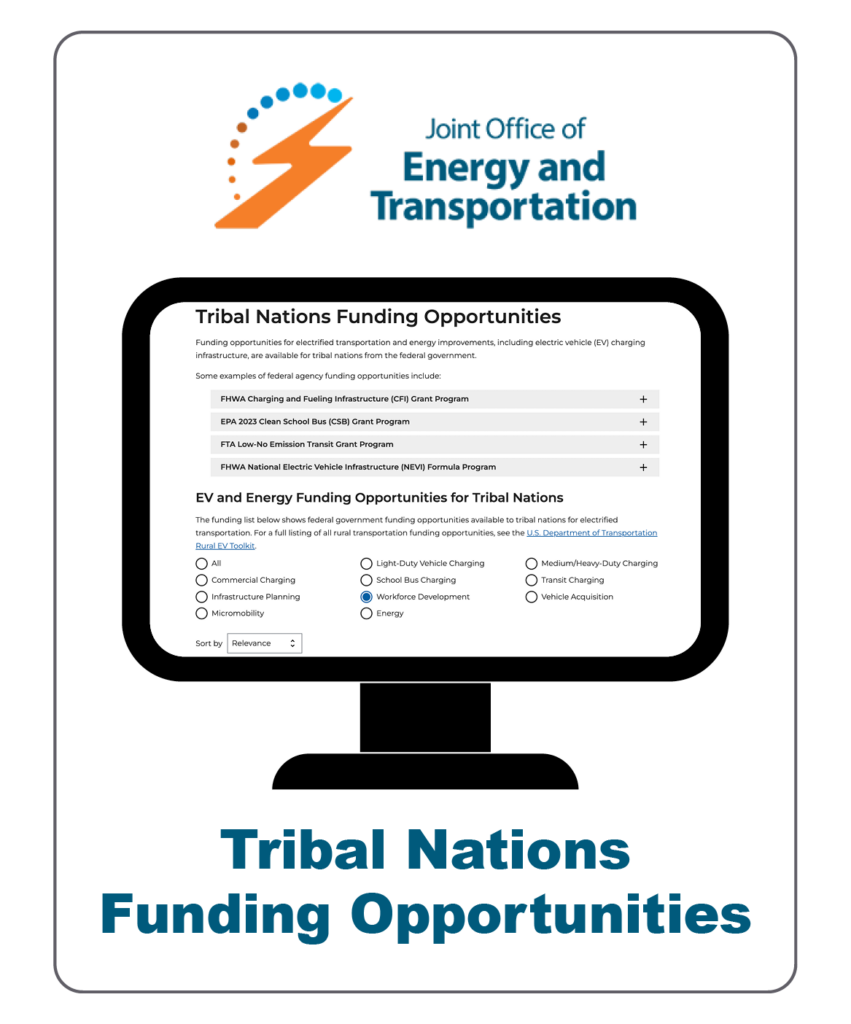
Tribal Nations Funding Opportunities
This page provides an updated and filterable list of funding opportunities for electric vehicle development in tribal nations.
Joint Office of Energy and Transportation
TOPICS: Funding Opportunities , Zero Emission Buses
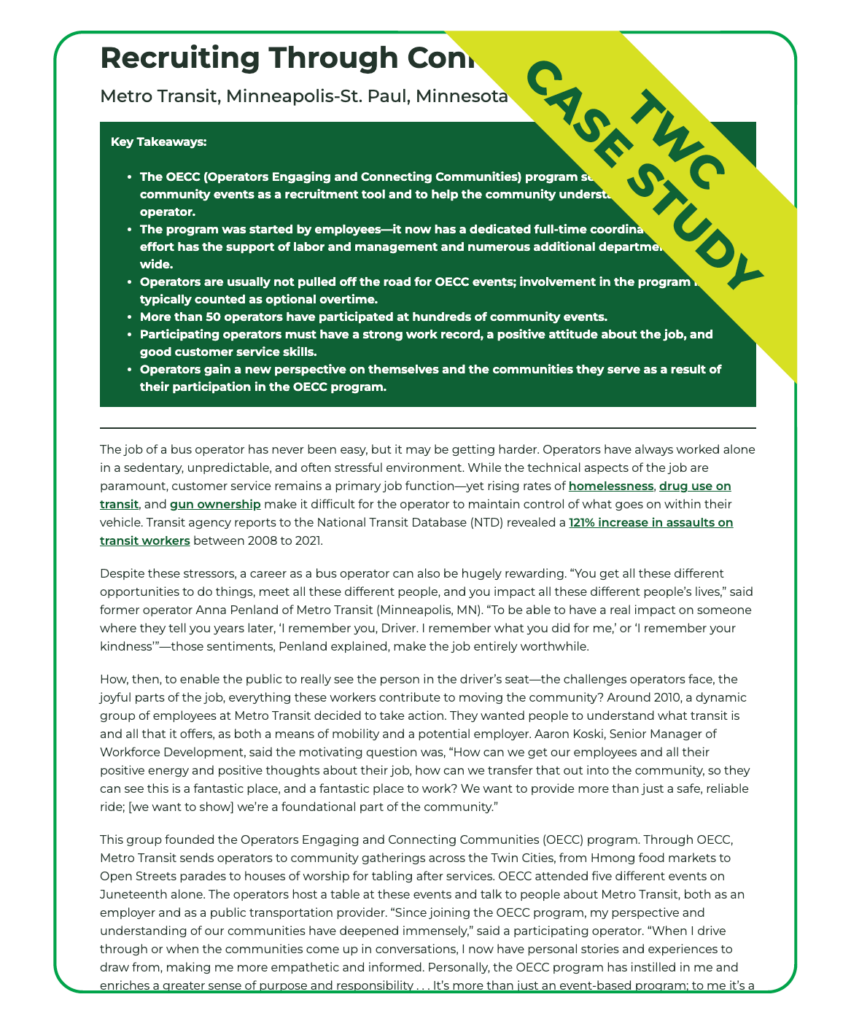
Recruiting Through Connection
This case study describes the OECC (Operators Engaging and Connecting Communities) program in Metro Transit, MN, which sends operators out to community events as a recruitment tool and to help the community understand the role of the operator.
Transit Workforce Center
November 2023
TOPICS: Hiring and Recruitment , Policy and Planning
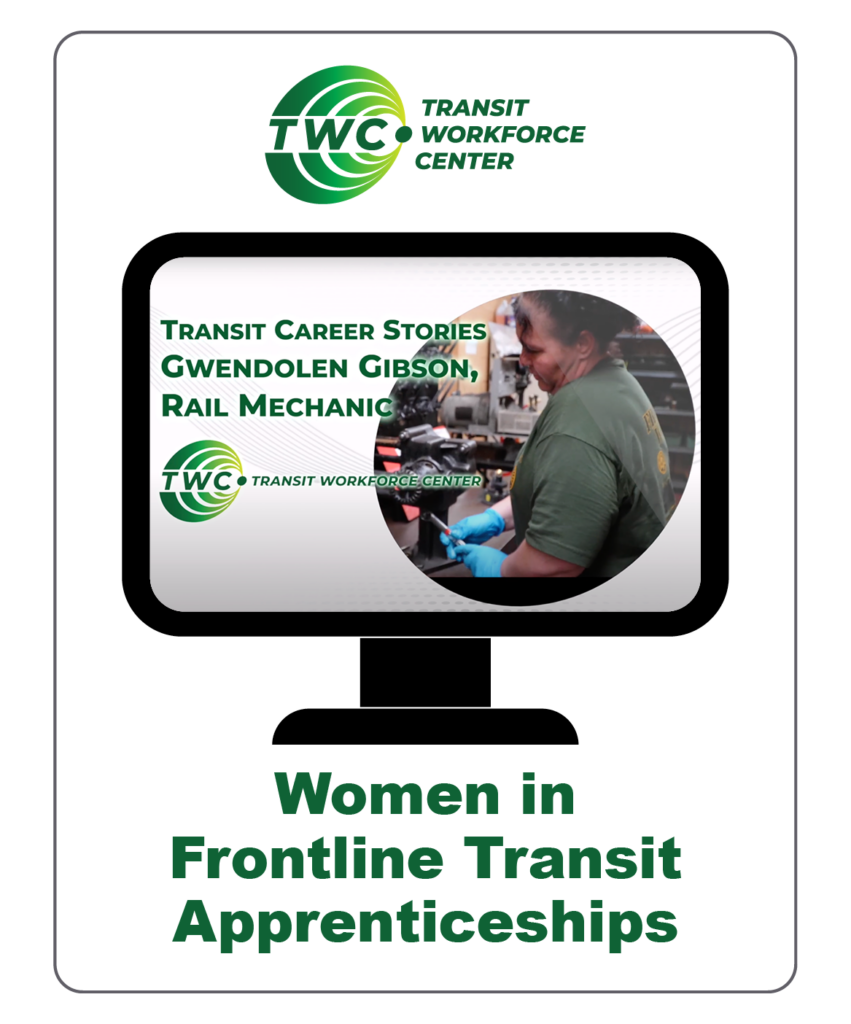
Women in Frontline Transit Apprenticeships
In honor of National Apprenticeship Week, TWC celebrated the tremendous progress made by transit agencies in implementing apprenticeship programs for various transit occupations. Women have long been under-represented in the most high-paying, highly skilled frontline transit occupations. The number of women in registered apprenticeship programs is increasing across industries, and public transit is no exception. Women from public transit agencies across the country have found rewarding careers with family-sustaining wages through apprenticeship.
This event featured a presentation from Liz Weiss, Deputy Director of the Working for America Institute along with a panel of women in registered apprenticeship programs from COTA/TWU Local 208 and MARTA/ATU Local 732.
Transit Workforce Center
November 2023
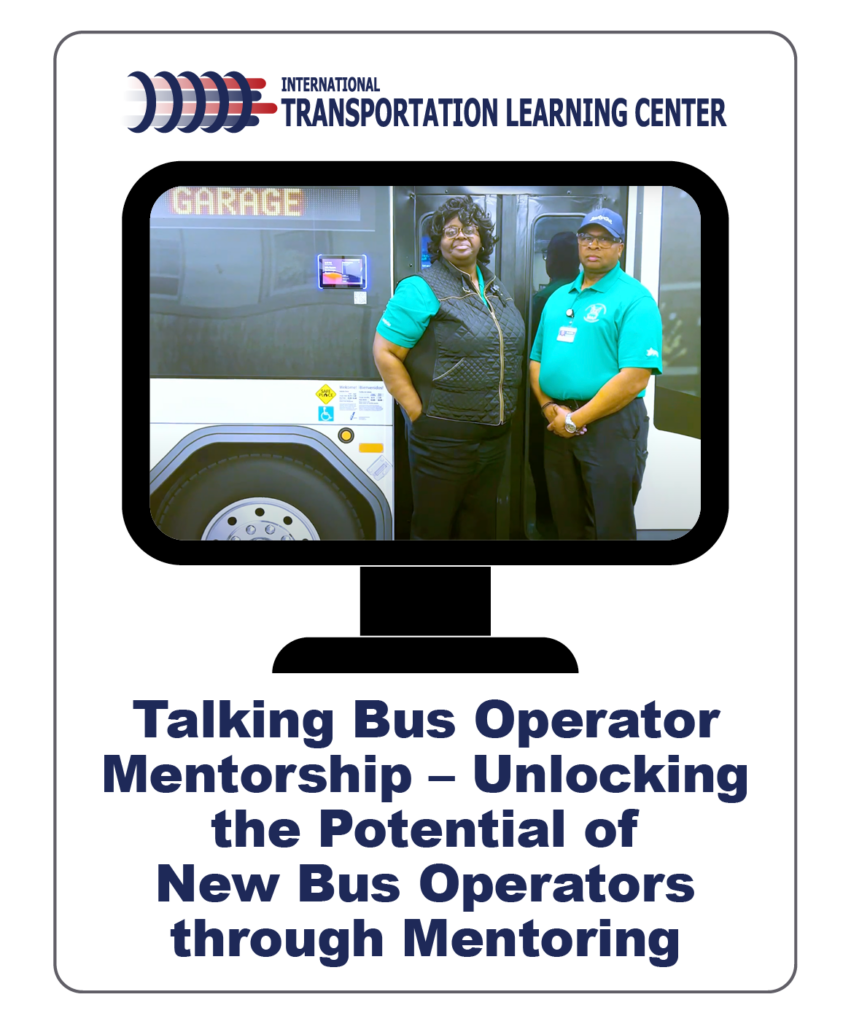
Talking Bus Operator Mentorship – Unlocking the Potential of New Bus Operators through Mentoring
Bus Operator Mentors from WMATA (Washington, D.C./ATU Local 689) and IndyGo (Indianapolis, IN/ATU Local 1070) speak about the benefits of mentorship programs. IndyGo’s President and CEO Inez Evans and ATU’s Director of Apprenticeships and Workforce Development Jamaine Gibson also share their thoughts on the importance of establishing these programs.
International Transportation Learning Center
November 2023
TOPICS: Apprenticeship , Career Pathways , Labor-Management Partnerships , Mentorship
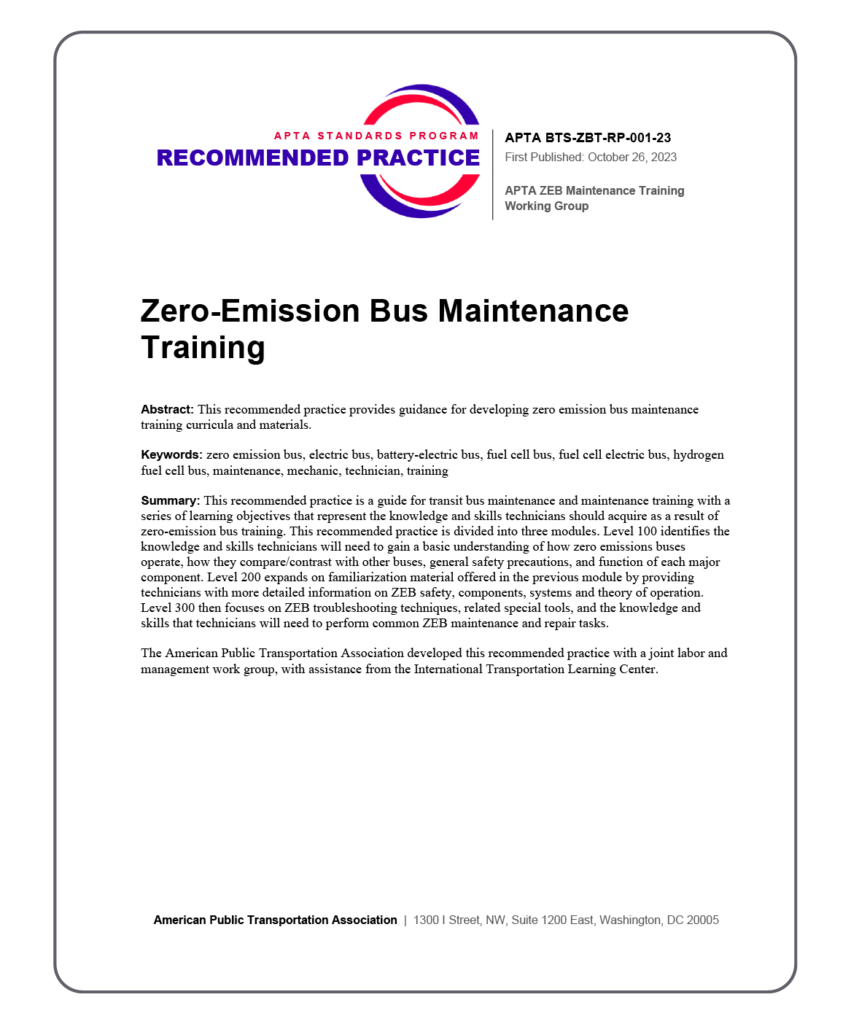
Zero-Emission Bus Maintenance Training Standards
This recommended practice provides guidance for developing zero emission bus maintenance training curricula and materials.
American Public Transportation Association
October 2023
TOPICS: Training , Zero Emission Buses
This recommended practice is a guide for transit bus maintenance and maintenance training with a series of learning objectives that represent the knowledge and skills technicians should acquire as a result of zero-emission bus training. This recommended practice is divided into three modules. Level 100 identifies the knowledge and skills technicians will need to gain a basic understanding of how zero emission buses operate, how they compare/contrast with other buses, general safety precautions, and function of each major component. Level 200 expands on familiarization material offered in the previous module by providing technicians with more detailed information on ZEB safety, components, systems and theory of operation. Level 300 then focuses on ZEB troubleshooting techniques, related special tools, and the knowledge and skills that technicians will need to perform common ZEB maintenance and repair tasks.
The American Public Transportation Association developed this recommended practice with a joint labor and management work group, with assistance from the International Transportation Learning Center.
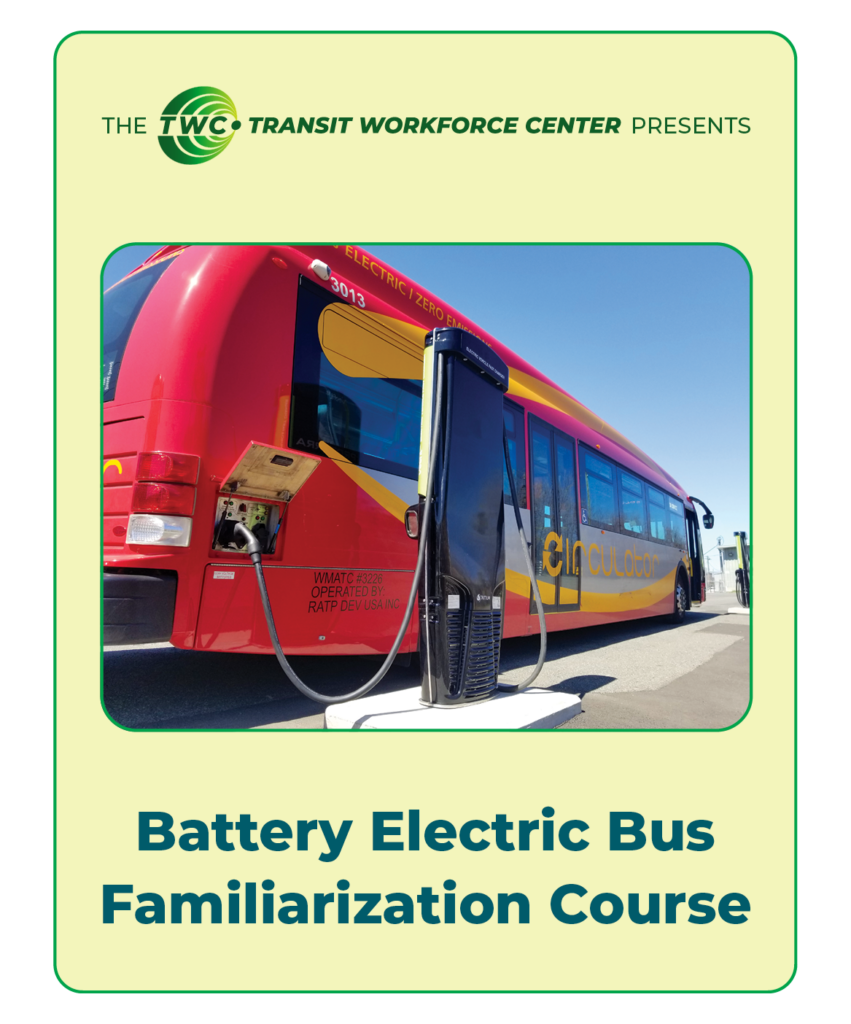
Battery Electric Bus Familiarization Course
Transit Workforce Center
September 2023
This course provides participants with an overview and familiarization to battery electric bus (BEB) basics. This will include an overview of what a BEB is, and what makes it both similar and different from its standard transit counterparts. The course will include sections on BEB components and systems, details on its internal functions (CAN, High Voltage systems, battery packs, etc.), the management systems, and a quick glance at preventive maintenance tasks. The course will follow up with a module on some electrical fundamentals, safety features, considerations, risk and hazard assessment, PPE, and comes with demonstrations of actual technicians performing de-energization (LOTO) of a Proterra and New Flyer model bus, and concludes with the third module introducing details involved with BEB charging, including the details of current BEB charging technologies, emerging charging technologies and opportunities, electric vehicle charging standards, and common considerations in charging maintenance and charger safety precautions.
Disclaimer : This course is intended only as informal guidance on the matters addressed, and should not be relied upon as the sole method or manner for performing the tasks or work outlined in the materials.
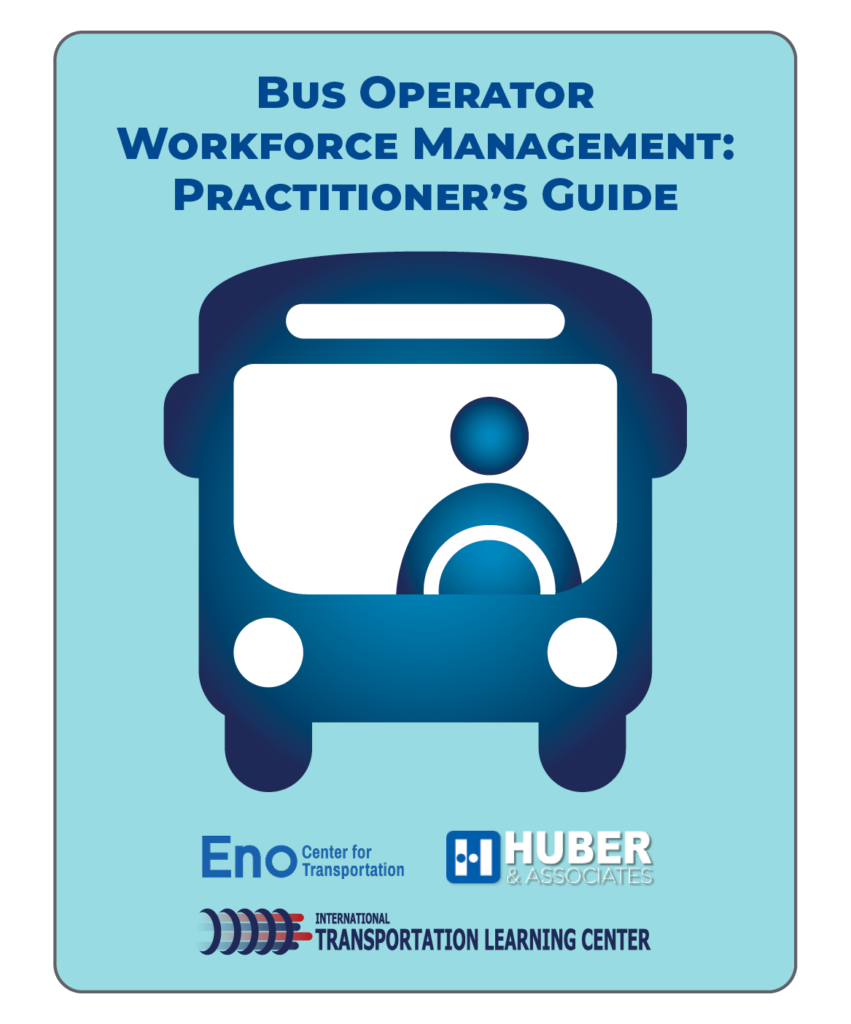
Bus Operator Workforce Management: Practitioner’s Guide
This report, produced by the Eno Center for Transportation, International Transportation Learning Center (ITLC), and Huber & Associates, is a practitioner’s guide that provides recommendations and resources enabling transit agencies to better assess, plan, and implement their operator workforce management programs. A link to a related TRB webinar is also included.
Transit Cooperative Research Program
August 2023
Contributor(s): National Academies of Sciences, Engineering, and Medicine; Transportation Research Board; Transit Cooperative Research Program; Robert Puentes; Philip Plotch; Brianne Eby; Paul Lewis; Karitsa Holdzkom; Xinge Wang; Douglas Nevins; Kenyon Corbett; Melissa Huber
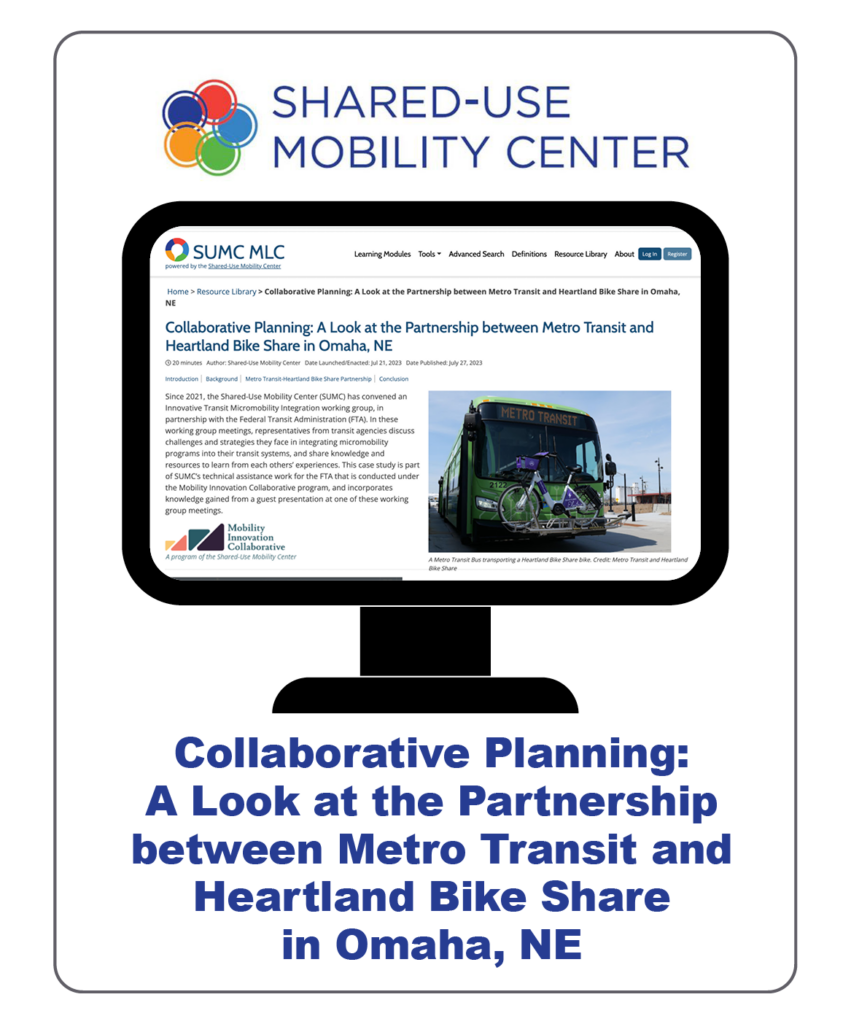
Collaborative Planning: A Look at the Partnership between Metro Transit and Heartland Bike Share in Omaha, NE
In Omaha, Nebraska, the city’s public transit provider Metro Transit and non-profit bikeshare provider Heartland Bike Share have been collaborating on ways to make biking and transit more connected and more appealing in their community. This case study examines the partnership and how transit and micromobility integration can benefit a city, support both modes, and provide more options for travelers.
Shared-Use Mobility Center
July 2023
TOPICS: Policy and Planning
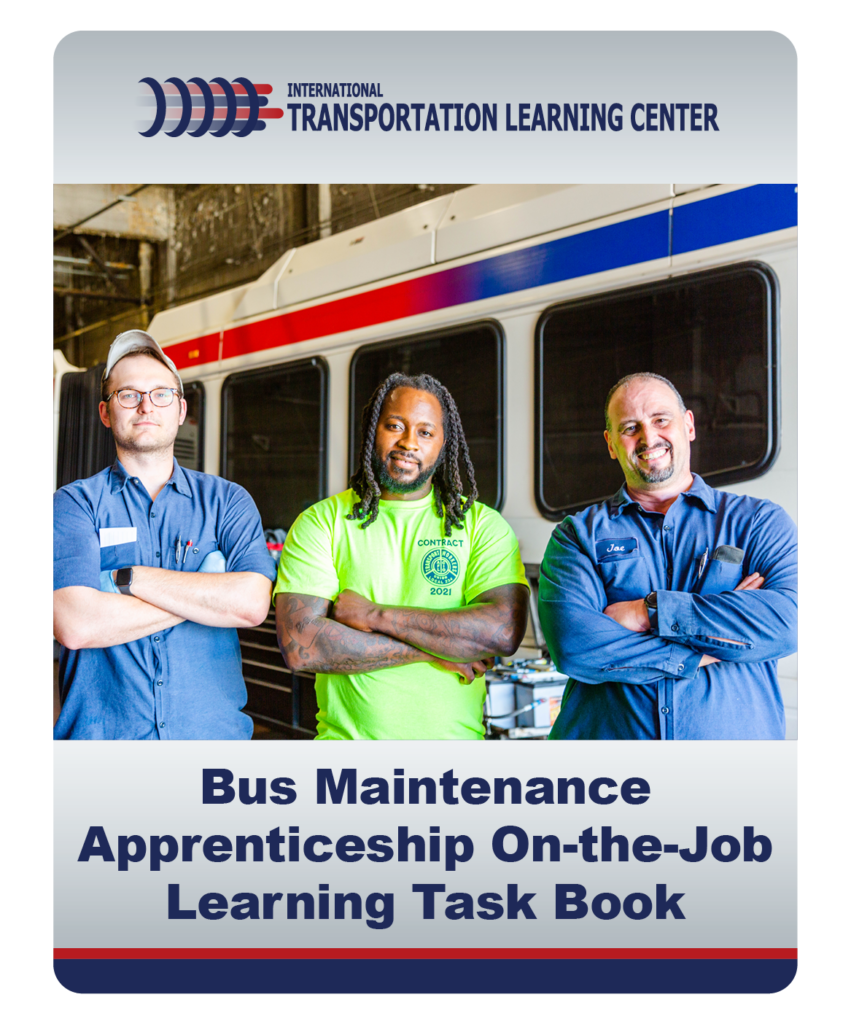
Bus Maintenance Apprenticeship On-the-Job Learning Task Book
International Transportation Learning Center
July 2023
TOPICS: Apprenticeship , Mentorship , Trainer and Mentor Development , Training
The Bus Maintenance Apprenticeship On-the-Job Learning (OJL) Task Book allows mentors and apprentices to track competency. The Task Book contains individual job tasks in 10 job functions (e.g., Electrical & Electronic, Steering & Suspension, etc.). Once the mentor and apprentice both agree that the apprentice is competent in a specific task (e.g., can test, adjust or replace a voltage regulator), each signs-off on that task.
Like the Apprenticeship Framework, the Task Book is aligned with the Automotive Service Excellence (ASE) task list and APTA training standards. Under the Contract/Agreement established by each agency’s Joint Apprenticeship Committee (JAC), however, each agency is free to add, delete or modify tasks to suit their unique operating conditions and bus equipment. The Task Book serves as a useful checklist to make certain that mentors have provided adequate OJL for each job task, and apprentices can demonstrate they are capable of performing those tasks safely and effectively on their own. The use and preservation of the Job Book are the responsibility of both parties.
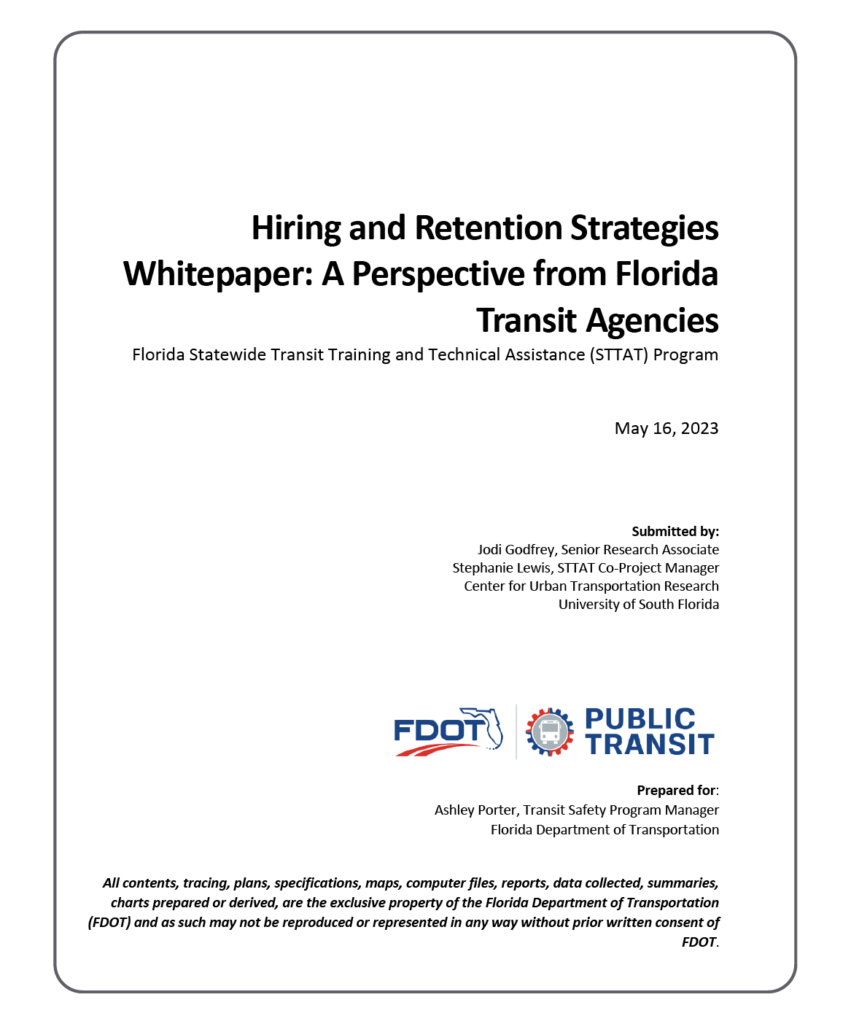
Hiring and Retention Strategies Whitepaper: A Perspective from Florida Transit Agencies
This study examines what transit agencies are doing to address hiring and retention challenges, what strategies are working, and what problems still need to be solved. The report includes six case study sites from Florida transit agencies and one non-Florida transit agency, that were selected due to a variety of characteristics, including partnerships and implemented service changes.
Center for Urban Transportation Research
June 2023
TOPICS: Hiring and Recruitment , Policy and Planning , Retention
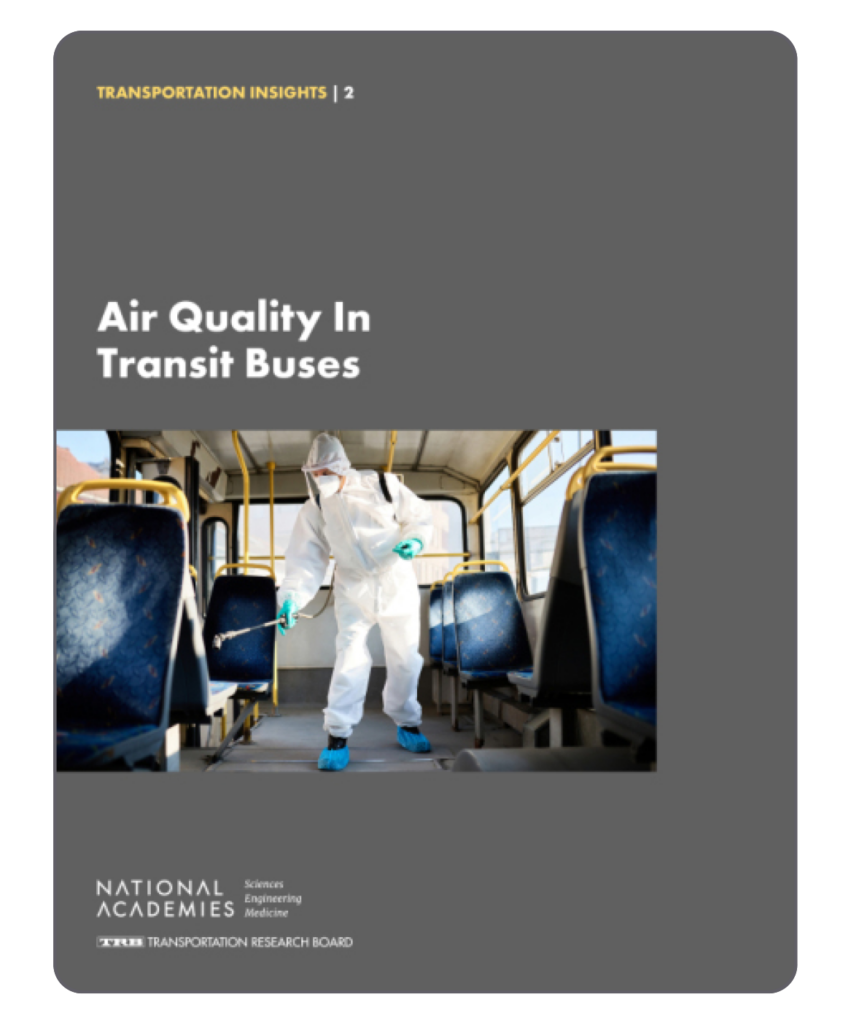
Air Quality in Transit Buses
This report provides a summary from a TRB Transit Cooperative Research Program (TCRP) Insight Event about the air quality in transit buses, particularly since the start of the pandemic. Since then, an increased understanding of infectious disease in confined spaces and the role of droplets and particles in transmission has been increasingly important to the bus industry. At this event, senior transportation executives; representatives from federal, state, and local government; and representatives from technology, consulting, academia, and engineering to discuss opportunities and the challenges of implementing air quality control in buses.
Transportation Research Board
May 2023
TOPICS: Policy and Planning , Safety and Health
Contributor(s): National Academies of Sciences, Engineering, and Medicine; Transportation Research Board; Transit Cooperative Research Program; Laura Williams
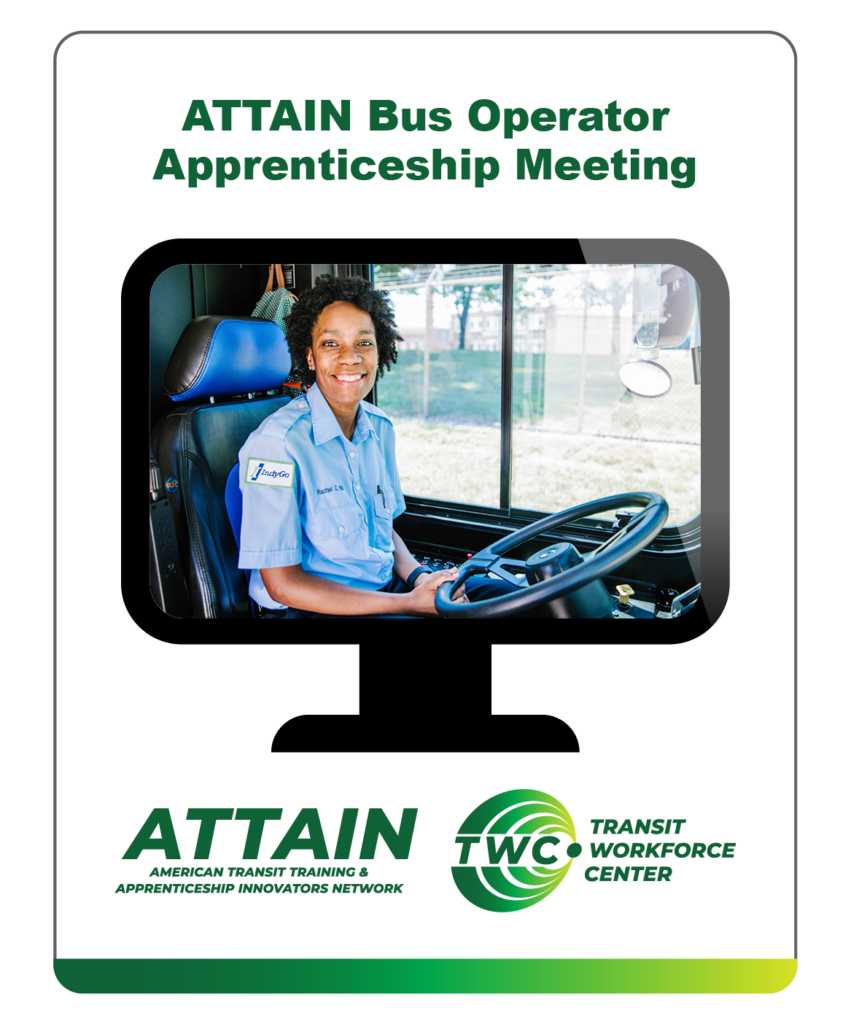
ATTAIN Bus Operator Apprenticeship Meeting
This recorded meeting of the ATTAIN Bus Operator Committee serves as a resource for transit industry stakeholders and includes presentations on apprenticeship and case studies of successful programs across the country.
Transit Workforce Center
May 2023
TOPICS: Apprenticeship , Career Pathways , Mentorship , Trainer and Mentor Development , Training
The American Transit Training and Apprenticeship Innovators Network (ATTAIN), run by the Transit Workforce Center (TWC), is a peer network created for transit agencies and labor unions to explore new apprenticeship programs or enhance existing programs for their frontline workforce.
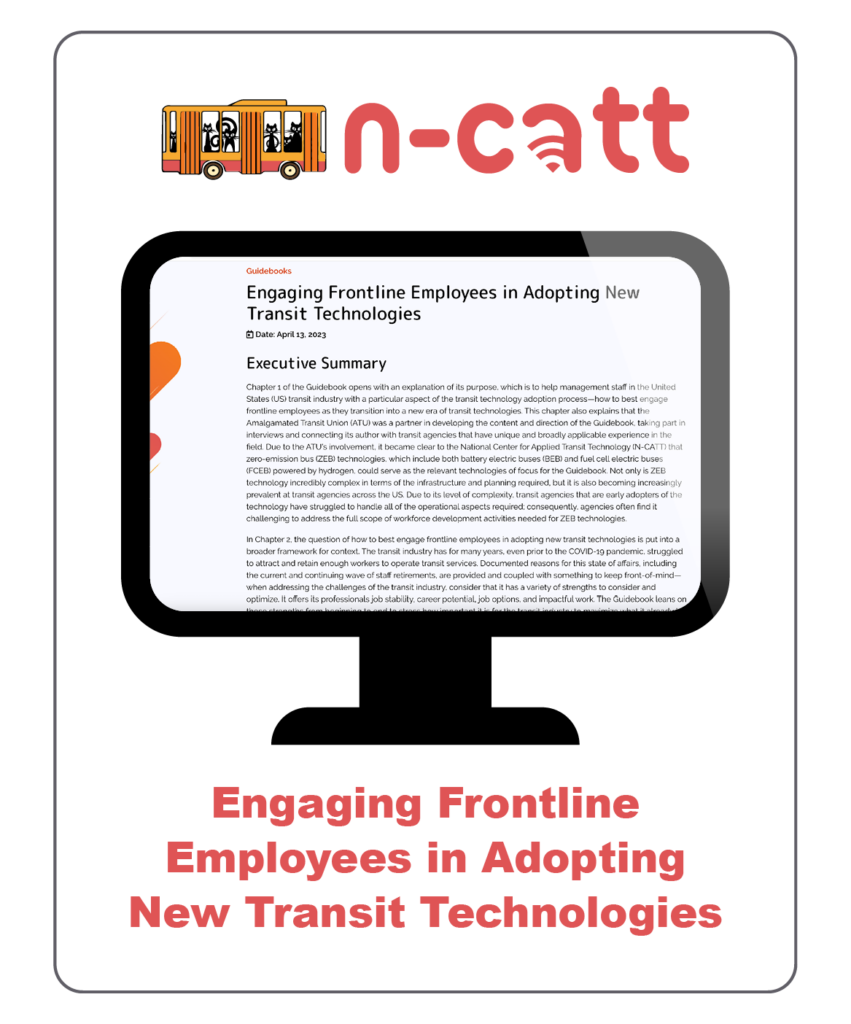
Engaging Frontline Employees in Adopting New Transit Technologies
The purpose of this guidebook, made in collaboration with the Amalgamated Transit Union (ATU), is to help management staff in the US transit industry engage frontline employees as they transition into a new era of transit technologies. The guidebook considers broader issues such as workforce shortages, provides advice and information on training frontline employees on new transit technologies, and discusses the usefulness of apprenticeships.
National Center for Applied Transit Technology
April 2023
TOPICS: Apprenticeship , Policy and Planning , Training , Workforce Shortage , Zero Emission Buses
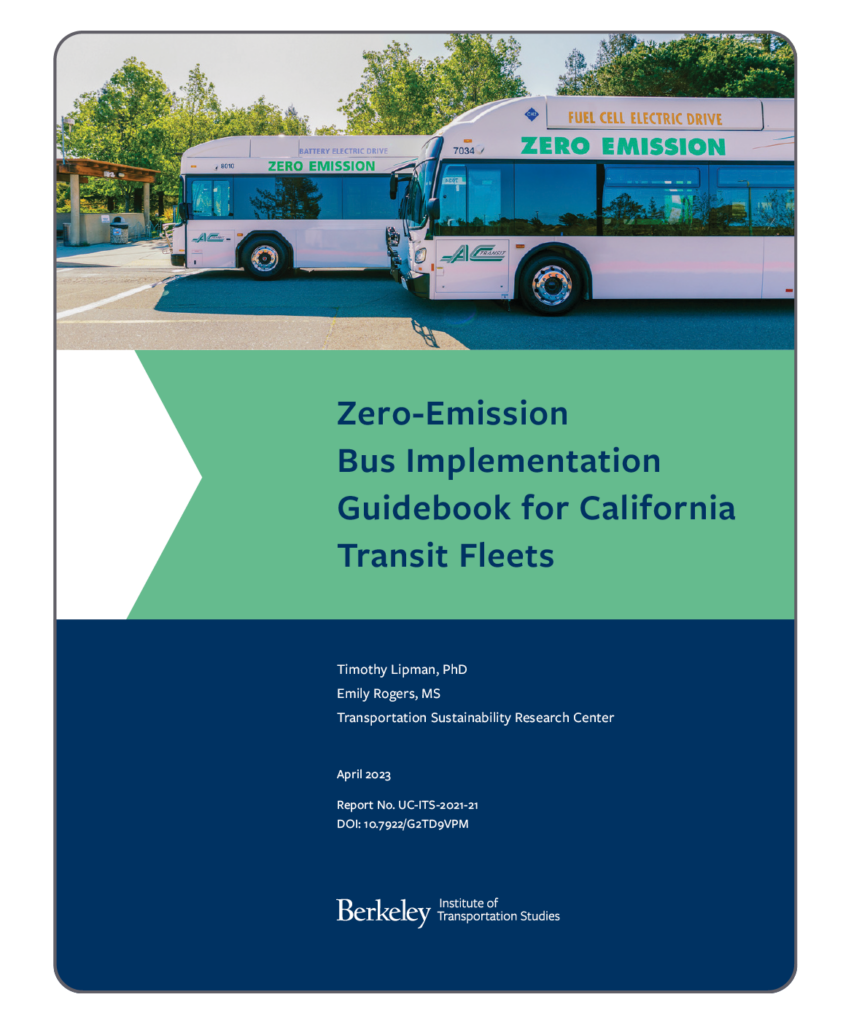
Zero-Emission Bus Implementation Guidebook for California Transit Fleets
University of California Institute of Transportation Studies
April 2023
TOPICS: Procurement , Training , Zero Emission Buses
California is in the process of state and local efforts to reduce emissions of pollutants and climate-changing gases, particularly in the transportation industry, which has been experiencing challenges due to economic conditions and the ongoing global pandemic. To address the role of transit bus operations in meeting California’s aggressive greenhouse gas (GHG) and emissions, the California Air Resources Board (ARB) has implemented an ambitious Innovative Clean Transit (ICT) regulation that requires all public transit agencies to gradually transition to a 100 percent zero-emission bus (ZEB) fleet. Beginning in 2029, 100% of new purchases by transit agencies must be ZEBs, with a goal for a full transition by 2040.
This plan provides resources and advice for transitioning to a ZEB fleet, including deployment and performance assessments, supportive policies, fueling solutions, training practices for operations and maintenance, and grant program resources. Agencies outside of California can take also take advantage of this resource, which included federal and non-governmental training programs.
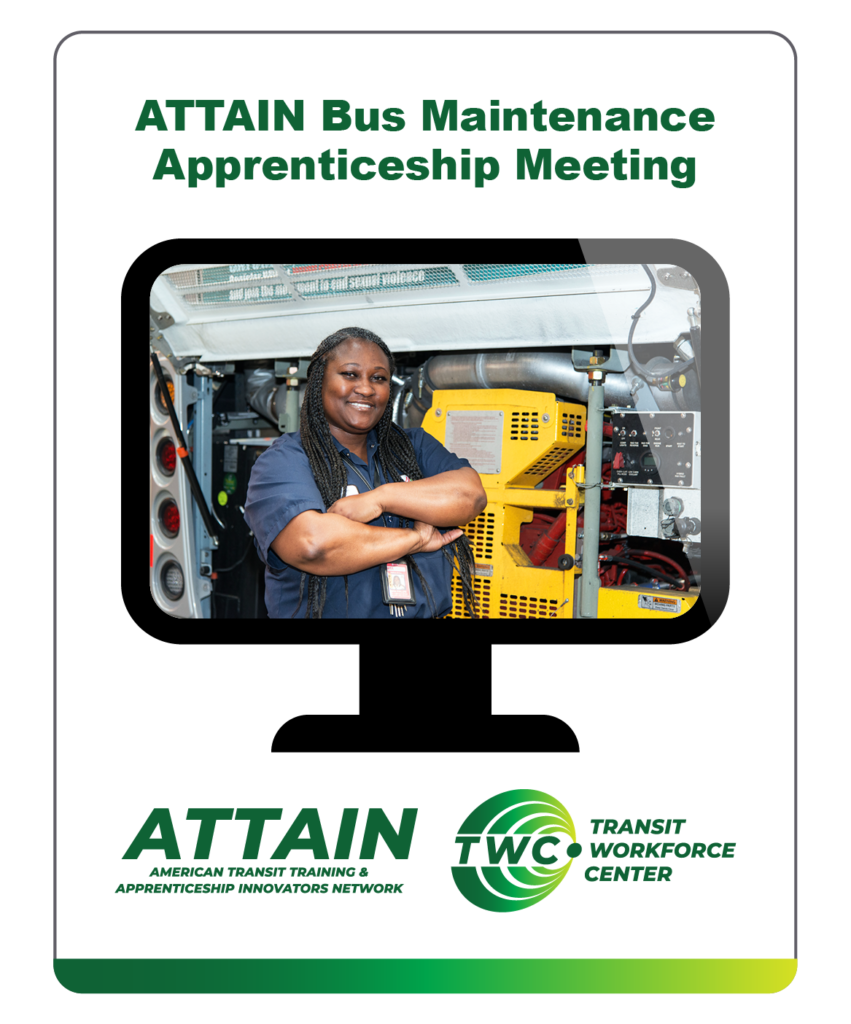
ATTAIN Bus Maintenance Apprenticeship Meeting
The American Transit Training and Apprenticeship Innovators Network (ATTAIN), run by the Transit Workforce Center (TWC), is a peer network created for transit agencies and labor unions to explore new apprenticeship programs or enhance existing programs for their frontline workforce. This recorded meeting of the ATTAIN Bus Maintenance Committee serves as a resource for transit industry stakeholders and includes presentations on apprenticeship and case studies of successful programs across the country.
Transit Workforce Center
March 2023
TOPICS: Apprenticeship , Career Pathways , Trainer and Mentor Development , Training
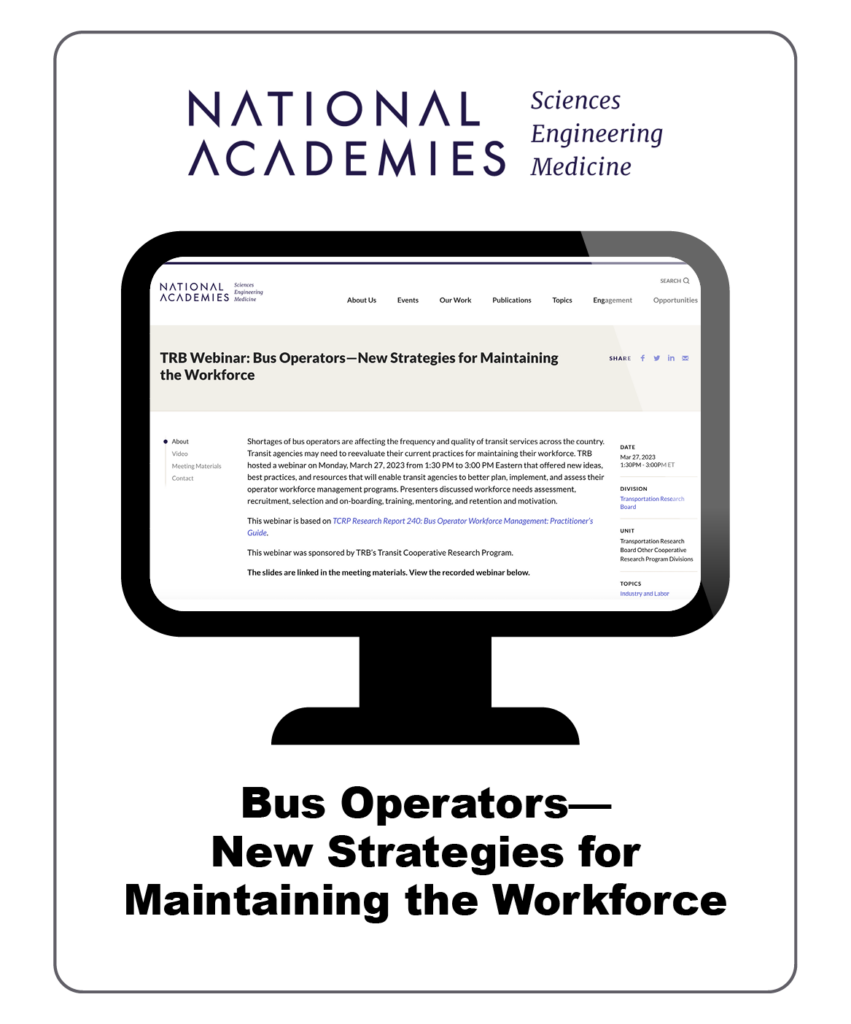
Bus Operators—New Strategies for Maintaining the Workforce
This webinar discusses the ideas, best practices, and resources that will enable transit agencies to better plan, implement, and assess their operator workforce management programs as described in the Bus Operator Workforce Management: Practitioner’s Guide. Presenters discussed workforce needs assessment, recruitment, selection and on-boarding, training, mentoring, and retention and motivation.
Transit Cooperative Research Program
March 2023
TOPICS: Apprenticeship , Hiring and Recruitment , Mentorship , Policy and Planning , Retention , Workforce Shortage
Webinar agenda and presenters
- Bus operator training and retention – Xinge Wang, International Transportation Learning Center
- Lessons from Florida – Trish Collins, Pinellas Suncoast Transit Authority
- Lessons from the Midwest – George F. Fields, Greater Cleveland Regional Transit Authority
- Question and answer session moderated by Robert Puentes, Eno Center for Transportation
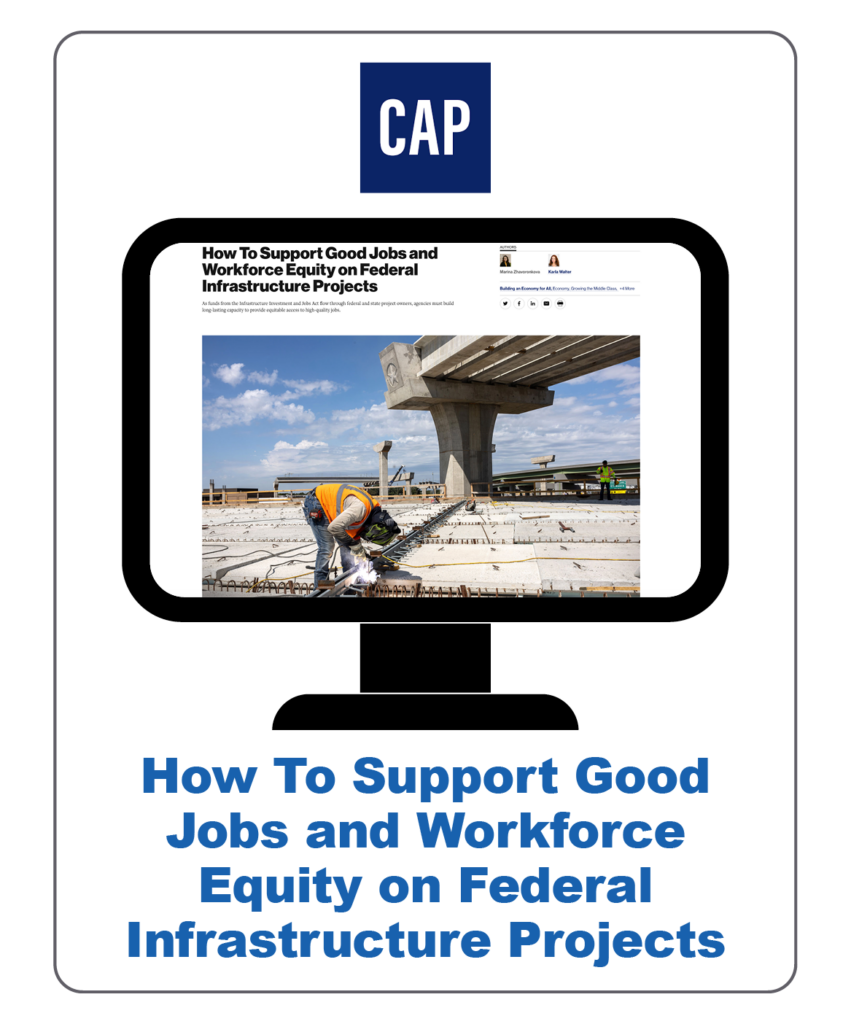
How To Support Good Jobs and Workforce Equity on Federal Infrastructure Projects
Center for American Progress
March 2023
This report from CAP describes strategies to ensure that the Infrastructure Investment and Jobs Act (IIJA) spending meets workforce equity and quality goals:
- Include clear, robust workforce standards in procurement communication and evaluation.
- Build agency capacity to collaborate and prioritize workforce standards.
- Provide technical assistance to achieve desired policy results.
- Measure and report workforce outputs and outcomes.
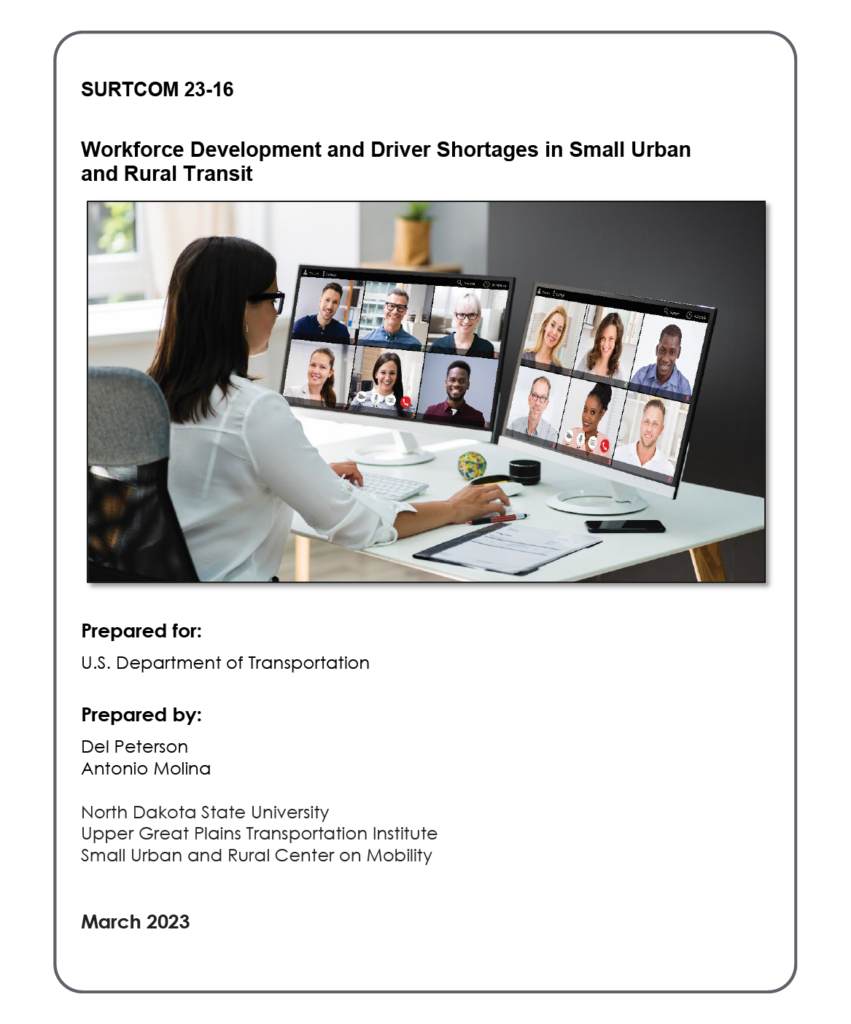
Workforce Development and Driver Shortages in Small Urban and Rural Transit
This report presents a national survey of small urban and rural transit managers to determine current workforce development practices. The survey results outline driver shortages and related issues, including an aging workforce, disruptions in service, and methods of alleviating the shortage.
Small Urban and Rural Center on Mobility
March 2023
TOPICS: Hiring and Recruitment , Retention , Workforce Shortage
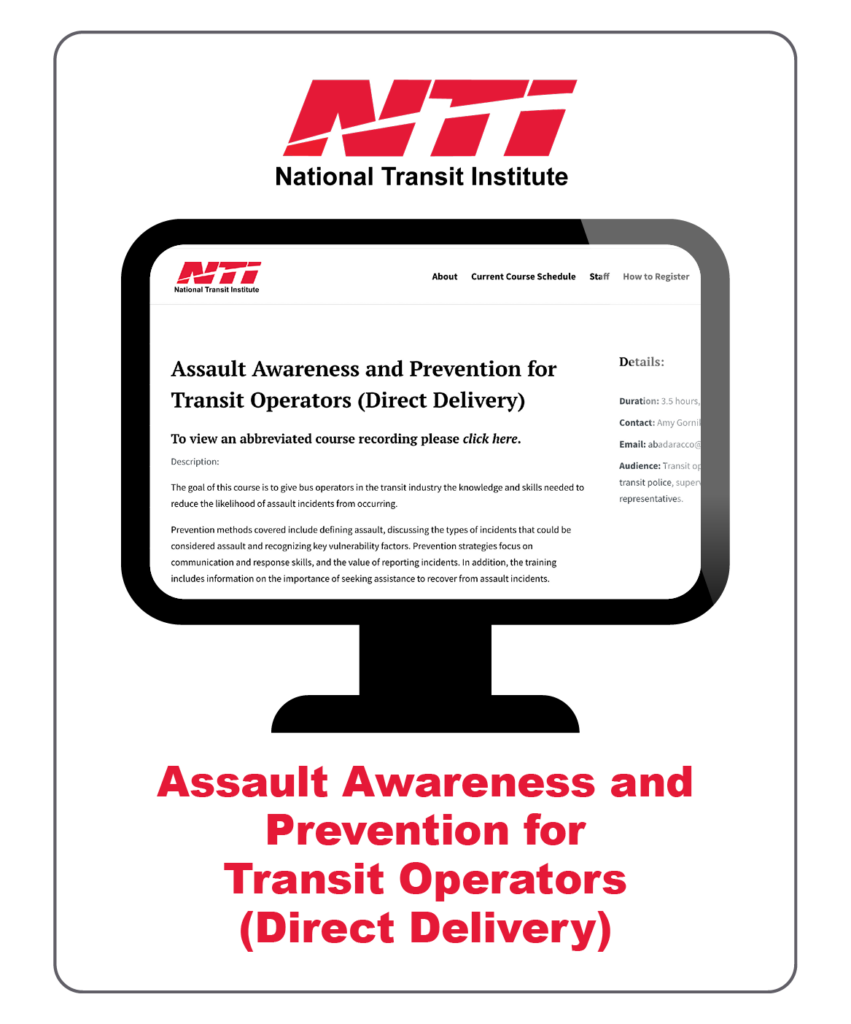
Assault Awareness and Prevention for Transit Operators (Direct Delivery)
This course provides transit bus operators with knowledge and skills to reduce the likelihood of assault incidents, including defining assault and types of incidents that could be considered assault, covering prevention strategies such as communication and response skills, and emphasizing the importance of reporting assault incidents and seeking recovery assistance.
National Transit Institute
TOPICS: Safety and Health , Training
You can register for the course with the Rutgers University Noncredit Course Catalog & Registration System.
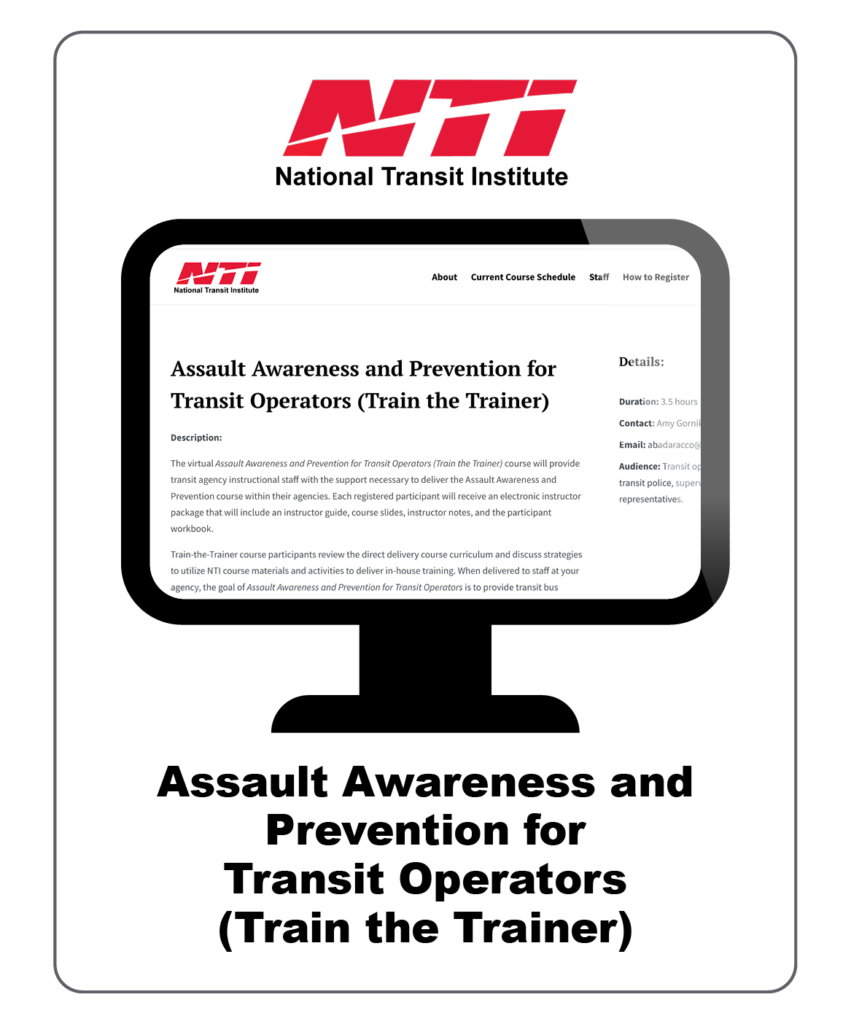
Assault Awareness and Prevention for Transit Operators (Train the Trainer)
This virtual course will provide transit agency instructional staff with the support necessary to deliver the Assault Awareness and Prevention course within their agencies. Each registered participant will receive an electronic instructor package that will include an instructor guide, course slides, instructor notes, and the participant workbook. Participants will be able to deliver the training to provide transit bus operators with knowledge and skills to reduce the likelihood of assault incidents.
National Transit Institute
January 2023
You can register for the course with the Rutgers University Noncredit Course Catalog & Registration System. The direct delivery course for operators can be found here.
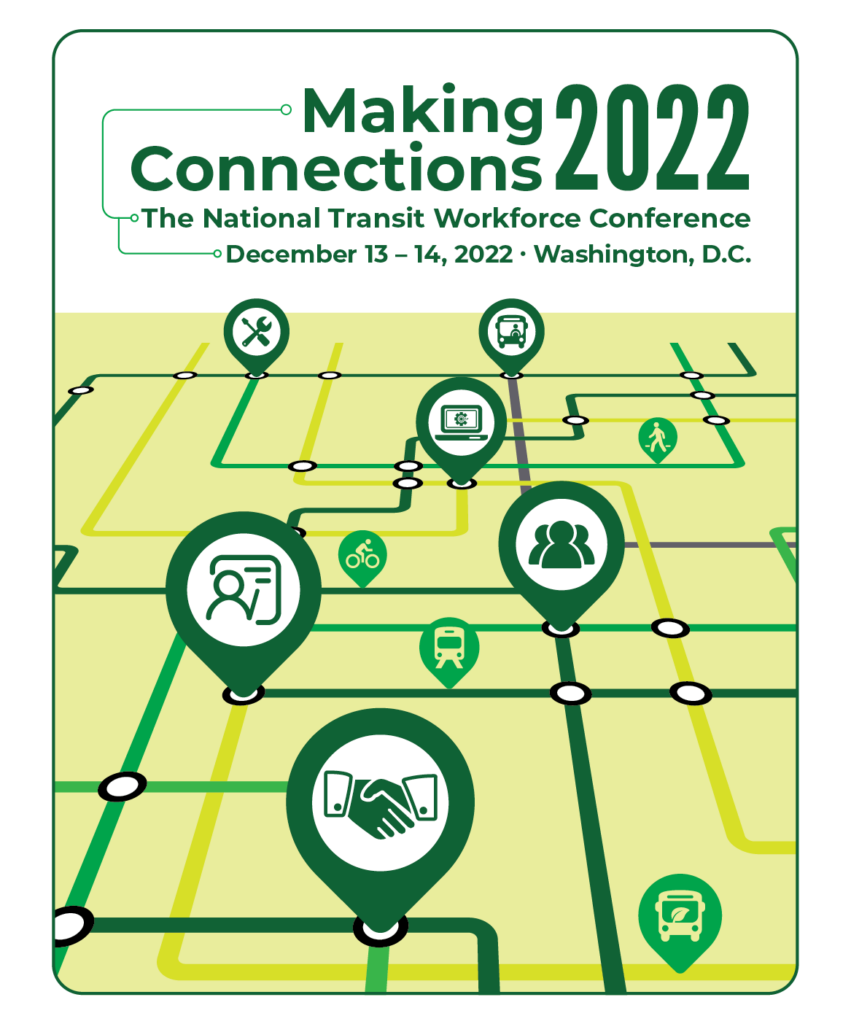
Making Connections 2022 – Engines to Inverters: Preparing Technicians for ZEB Deployment
This session about working with ZEB technologies was presented as part of TWC’s Making Connections 2022 transit workforce conference in December, 2022.
Transit Workforce Center
December 2022
Session Summary: As transit agencies integrate zero-emission technologies into their fleet, many are experiencing difficulties in preparing their frontline workforce to properly maintain and operate the equipment. In this workshop, panelists explored lessons learned, best practices, and available resources to upskill their technician and maintenance workforce and prepare the future frontline workers to safely and effectively work with ZEB technologies. Presentations by industry experts, early-adopters, and successful rollouts offered insight for an audience seeking guidance on first steps and follow-through.
Moderators
- James Hall: Program Manager, Technical Training – International Transportation Learning Center/Transit Workforce Center
- Lisa Jerram: Director of Bus Operations and New Vehicle Technologies – American Public Transportation Association
Speakers
- Joseph Gamez: Assistant Chief Maintenance Officer Maintenance Training – New York City Transit, Department of Buses
- Walter Kirkland: Service Manager – StarMetro Tallahassee
- Obed Mejia: Senior Bus Equipment Instructor – Los Angeles County Metropolitan Transportation Authority

Making Connections 2022 – Driving Bus Operator Recruitment and Retention: Challenges, Opportunities and Innovation
This session about bus operator recruitment and retention was presented as part of TWC’s Making Connections 2022 transit workforce conference in December, 2022.
Transit Workforce Center
December 2022
Session Summary: A headline issue confronting all transit systems today – how to attract and retain bus operators in a tight labor market. This lively session began with presentations from the TCRP F-28 research team and TransitCenter on their recently published national research findings on recruiting, developing and retaining transit bus operators. Labor and management industry practitioners from multiple locations then shared their recruitment approaches and strategies that have been most effective on the ground, and TWC staff summarized the National Transit Frontline Worker Recruitment Campaign.
Moderator
- Rob Puentes: President and CEO – The Eno Center for Transportation
Speakers
- Julia Castillo: Executive Director – Heart of Iowa Regional Transit Agency
- James Duff: Assistant Vice President, Human Resources – Dallas Area Rapid Transit
- Jeff Hazen: Executive Director – Sunset Empire Transportation District
- Steve Jovel: Transportation Superintendent – Santa Clara Valley Transportation Authority
- Robin Phillips: Executive Director – National Rural Transit Assistance Program
- Harpreet Singh: JWI Director – Amalgamated Transit Union Local 265
- David Stephen: Senior Communications Specialist – International Transportation Learning Center/Transit Workforce Center
- Chris Van Eyken: Program Manager – TransitCenter

Making Connections 2022 – Designing Safety: Bus of the Future and Beyond
This session about bus operator safety was presented as part of TWC’s Making Connections 2022 transit workforce conference in December, 2022.
Transit Workforce Center
December 2022
Session Summary: In the hierarchy of health and safety protections, engineering controls are at the top. This session addressed the critical issues of operator assaults and operator safety through the lens of safety by design, with a major focus on the significant planning work that has been done to create an effective operator barrier against assault and respiratory hazards. Other advances in safety-related design, such as blind-spot elimination for protection of pedestrians, ergonomics and accessibility, were also reviewed.
Moderators
- Jack Clark: Executive Director – International Transportation Learning Center/Transit Workforce Center
Speakers
- Christy Campoll: Senior Associate – RLS & Associates Inc.
- Brian Sherlock: Safety Specialist – Amalgamated Transit Union
- Mohammed Yousuf: Director, Office of Infrastructure, Safety and Asset Innovation – Federal Transit Administration

Making Connections 2022 – Considerations on the Future of Human-Automation Teaming in the Transit Workforce
As part of the plenary session on “Navigating New Directions: Emerging Technologies and the Future of Transit Workforce” at Making Connections 2022, Carnegie Mellon researchers presented on a study released in spring 2022 on bus automation, examining issues related to the practical safety and operational limitations of deploying driverless buses in transit systems while citing many technologies that can enhance safety and improve driver performance.
Transit Workforce Center
December 2022
TOPICS: Making Connections Conference , Training

Making Connections 2022 – Drive to Revive: Preparing Operators for ZEB Deployment
This session about working with ZEB technologies was presented as part of TWC’s Making Connections 2022 transit workforce conference in December, 2022.
Transit Workforce Center
December 2022
Session Summary: As transit agencies integrate zero-emission technologies into their fleet, many are experiencing difficulties in preparing their frontline workforce to properly maintain and operate the equipment. In this workshop, panelists explored lessons learned, best practices, and available resources to upskill their operator workforce and prepare the future frontline workers to safely and effectively work with ZEB technologies. Presentations by industry experts, early-adopters, and examination of successful rollouts offered insight for an audience seeking guidance on first steps and follow-through.
Moderator
- Maurice Beard: Technical Training Supervisor [retired] – Santa Clara Valley Transportation Authority
Speakers
- Dinero Washington: President/Chief Executive Officer – Shreveport Transit Management (SporTran)
- Richard Gwin: Training Specialist – Sacramento Regional Transit District
- Alphonza Clements: Executive Board Member – DASH/ATU Local 689
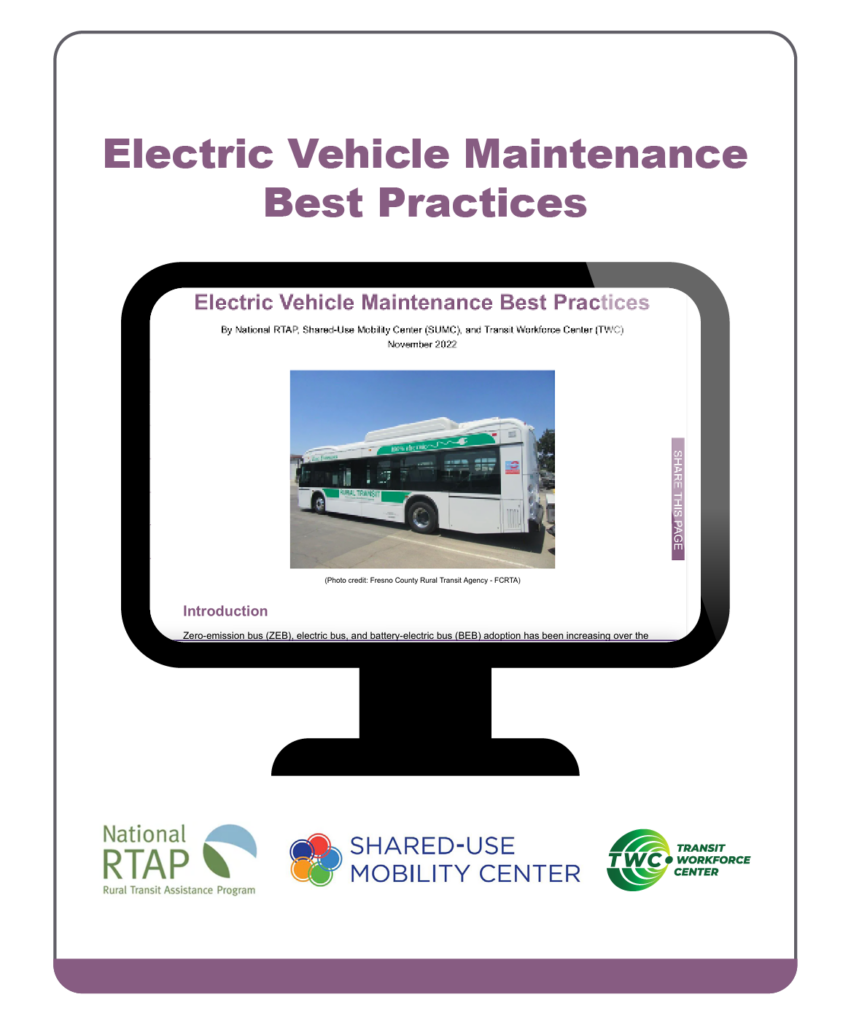
Electric Vehicle Maintenance Best Practices
This best practice spotlight article on electric vehicle maintenance provides recommended practices and case studies from transit agencies that have successfully implemented these vehicles into their fleets.
National RTAP, Shared-Use Mobility Center (SUMC), and Transit Workforce Center (TWC)
November 2022
TOPICS: Safety and Health , Training , Zero Emission Buses
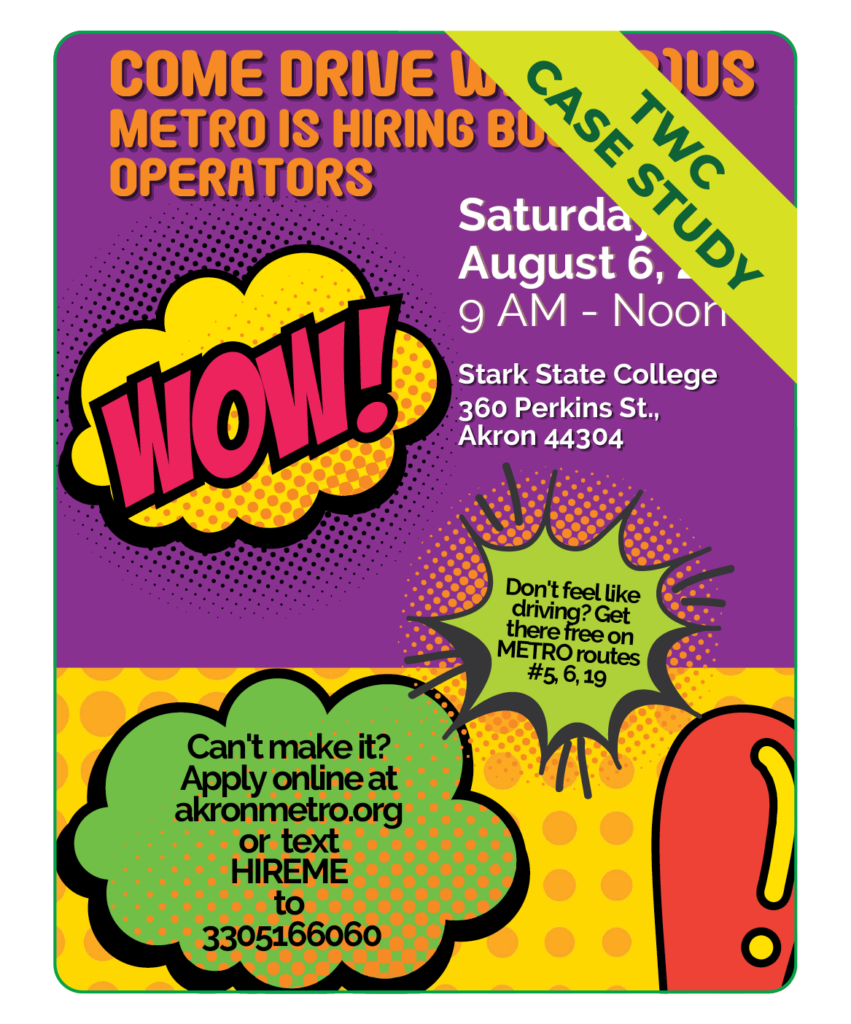
Come Drive with (B)us – Akron METRO Operator Recruitment Event
Akron METRO Regional Transit Authority; Transit Workforce Center
September 2022
TOPICS: Hiring and Recruitment
Organizations
Akron METRO Regional Transit Authority (METRO): Transit agency serving Summit County, Ohio and the city of Akron, with a fleet totaling 231 vehicles: 140 large buses and 91 smaller paratransit vehicles. METRO employs 425 team members.
Stark State College: Local event venue and partner in advertising campaign. METRO is currently in the final stages of an agreement with Stark State to supplement its CDL training program.
Program Summary
METRO’s “Come Drive with (B)us” event was a major initiative designed to recruit bus operators. Held at Stark State College, the event featured on-site bus-related activities, interviews and job applications. Extensive outreach activities before the event through diverse outlets, combined with the themed ad campaign, brought 99 interested participants and resulted in 71 contingent offers. The key “draw” to this event was the ability to test drive our vehicles on a closed course alongside our staff. METRO’s idea was that if the thought of driving a bus was keeping people from applying, they could offer a nontraditional mechanism to overcome that hesitancy. Once that challenge was overcome, the process could focus on the soft skills related to empathy and great customer service that are critical to success.
Key Program Elements
- Pre-event publicity
- Pop Art themed ad campaign (viewable on Facebook; an example is attached below as a PDF)
- Free and purchased advertising through social media, including Instagram, Facebook, and Twitter posts
- Information on METRO’s website
- Print ads in local daily and weekly publications
- Two digital billboards, and flyers on buses and posters at METRO’s transit center
- A radio ad on several local radio stations
- Two days before to the event, Stark State College promoted the event on their digital sign, readable from the expressway
- Four radio personalities from four different stations drove the bus two to three weeks prior to the event and promoted on the air, including one station that put together its own video.
- Television interviews that resulted in a full story and a variety of mentions of the event on other stations
- Creating two bus wraps with the pop art feel (see PDF below) on careers, though not event-specific
- Outreach to past applicants
- Videos of three in-house of staff driving for the first time, along with videos featuring County Executive and Representative Casey Weinstein, and an invite video from METRO’s CEO
- Event activities and design (see PDF of signage below)
- Participants were told to bring a valid driver’s license
- Four clearly-marked stations for applicants to go to where they had the opportunity to:
- Apply
- Interview
- Secure a mobility device
- Drive a bus
- Every applicant moved through all four stations
- At final stop, attendees received:
- Bag of information
- Swag
- Digital and paper copies of the CDL training booklet for them to start studying
- Event planning activities
- Started six to eight weeks before event
- Committee was made of HR, Marketing, Operations, Maintenance and Safety/Security
- Eighteen staff members worked the day of the event – five working check-in/applications, five doing on-site interviews, two working the mobility station, five running the “test drive” station, and one runner to move between all stations to relieve backlog
- Used seven 40 foot buses (2 spares) and 2 paratransit vehicles
Outcomes
- Ninety-nine event attendees interviewed and were able to test drive
- Twenty-five additional people applied who could not attend; follow up interviews were planned
- 71 of the 99 were moved through to a “contingent offer” pending background checks with a start date of September 26th
- Twenty-three of the 99 had areas of their application that required reviewing before proceeding
For more information on this event, contact: Jarrod Hampshire – Chief Operations Officer, METRO RTA 330.808.0144
More recruitment advertising materials and resources can be found here.
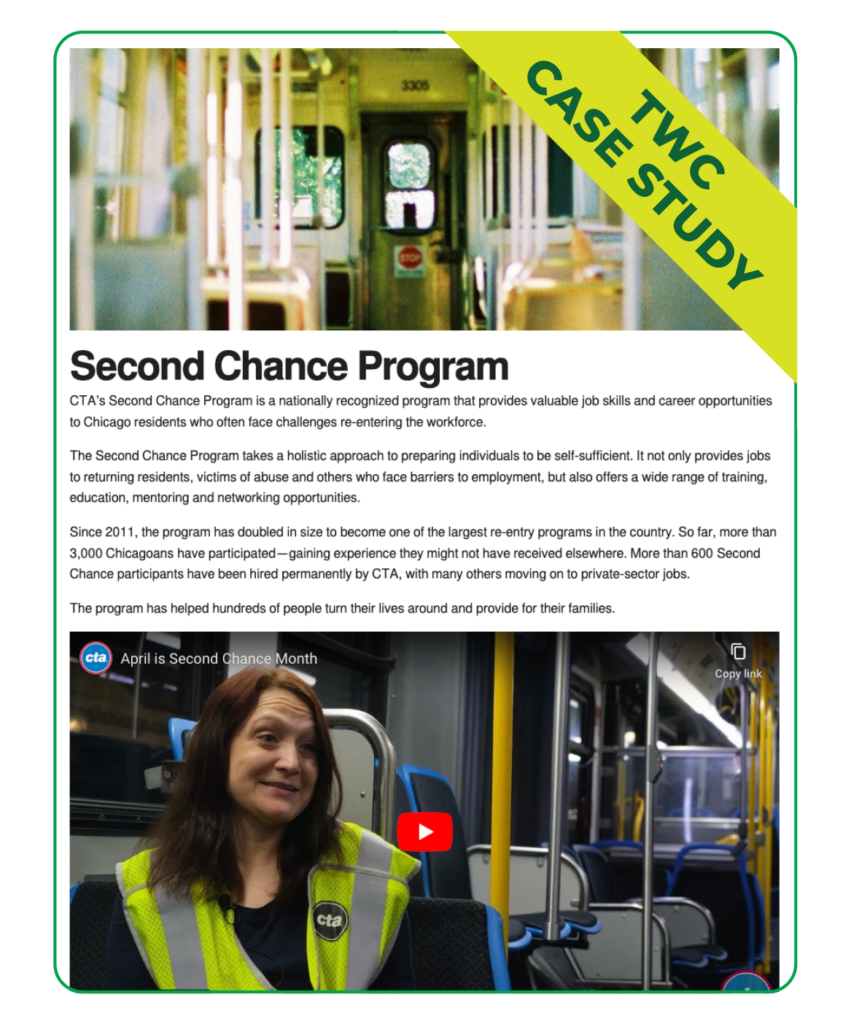
Second Chance Transit Programs
Several transit agencies across the country have established Second Chance programs to support formerly-incarcerated individuals as they reenter the workforce; these programs set pathways into frontline transit positions, often focusing on driver recruitment. These initiatives involve active collaboration between transit agencies and departments of corrections. Agencies have also worked with other partners, including their local unions, state and local workforce development agencies, ex-offender support programs, and local community organizations.
August 2022
Basic descriptions of some current state and local programs can be found at the links below.
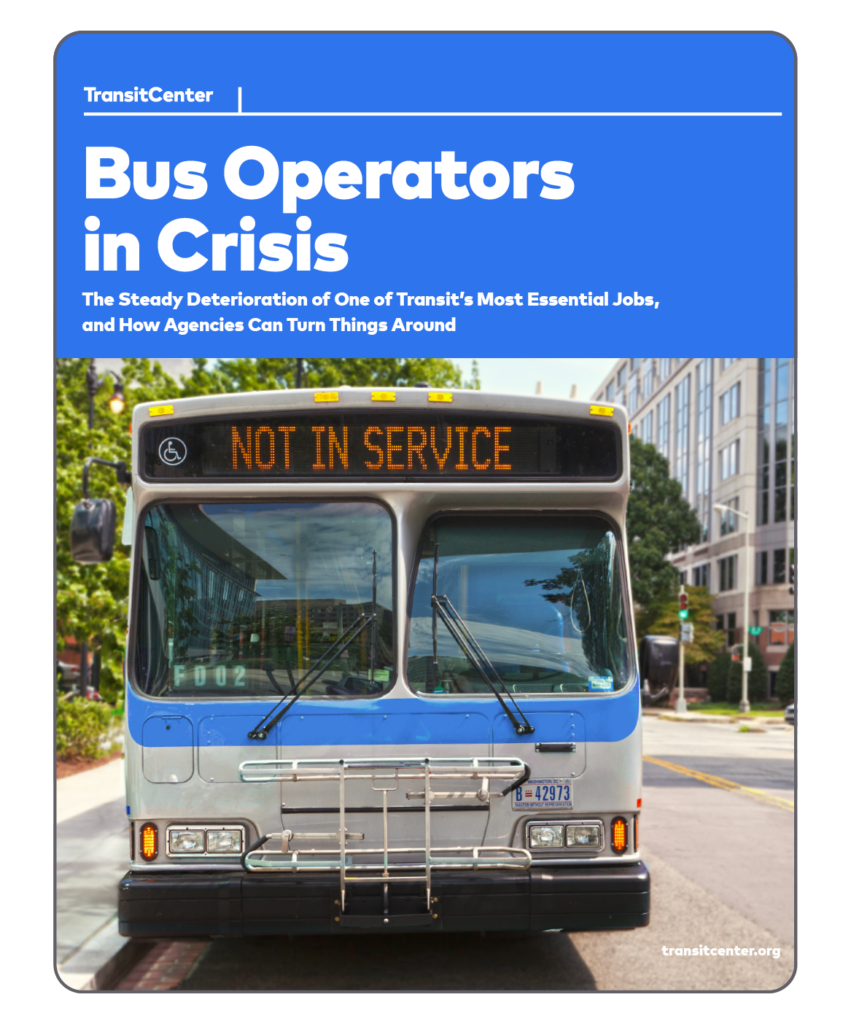
Bus Operators in Crisis
TransitCenter’s report, entitled Bus Operators in Crisis: The Steady Deterioration of One of Transit’s Most Essential Jobs, and How Agencies Can Turn Things Around, analyzes the nationwide phenomenon of bus operator shortages and advocates for enhanced job quality in the occupation. It details the challenges American operators are facing, and offers solutions that transit agencies can take to solve issues locally, as well as steps that state and the federal governments can take to provide agencies with necessary support.
TransitCenter
July 2022
This resource also includes a link to a webinar hosted in July, 2022 presenting information from the report and slides from the webinar.

How to Improve EV Battery Performance in Cold Weather
This article provides advice and recommendations to transit agencies for maintaining electric vehicle battery performance in cold weather.
Government Fleet
July 2022
TOPICS: Zero Emission Buses
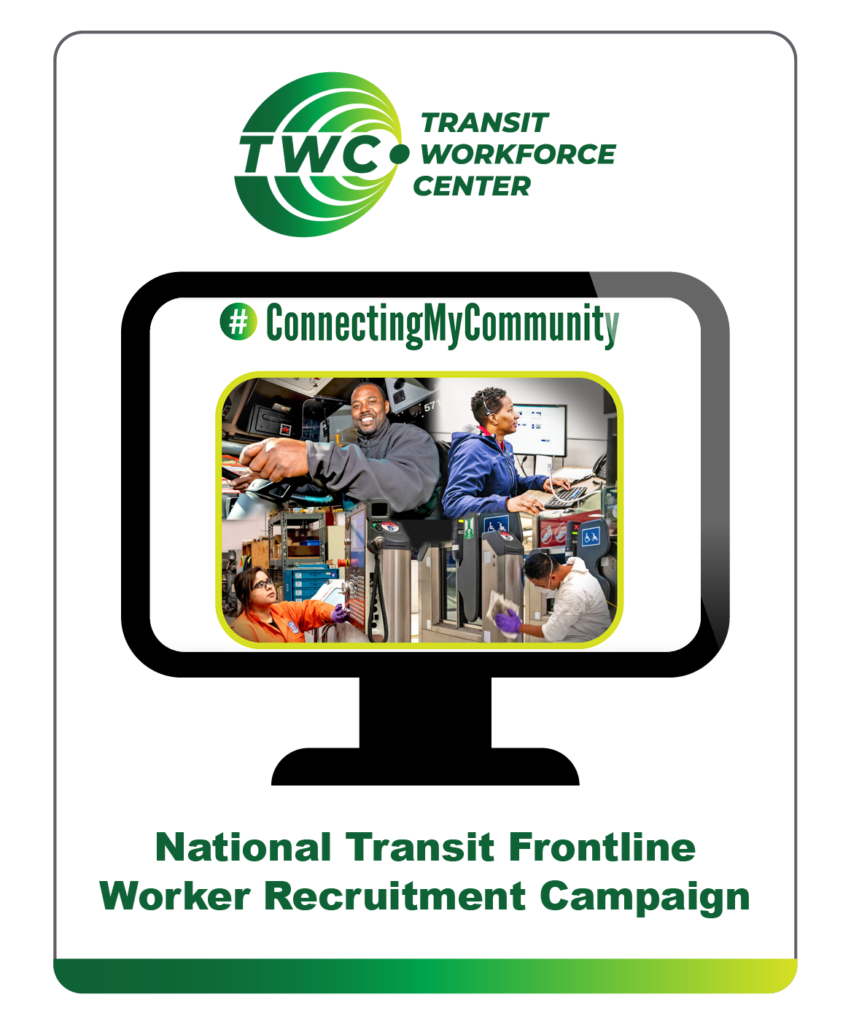
National Transit Frontline Worker Recruitment Campaign
Across the United States, whether large, small, urban, rural, or tribal, transit agencies are facing the challenge of recruiting and retaining drivers, mechanics, and technicians who can operate and maintain the buses of our public transit systems. To help support local transit efforts, TWC is developing the #ConnectingMyCommunity national frontline worker recruitment campaign, coordinated with the Federal Transit Administration (FTA) and industry, labor, and community partners from around the country.
Transit Workforce Center
July 2022
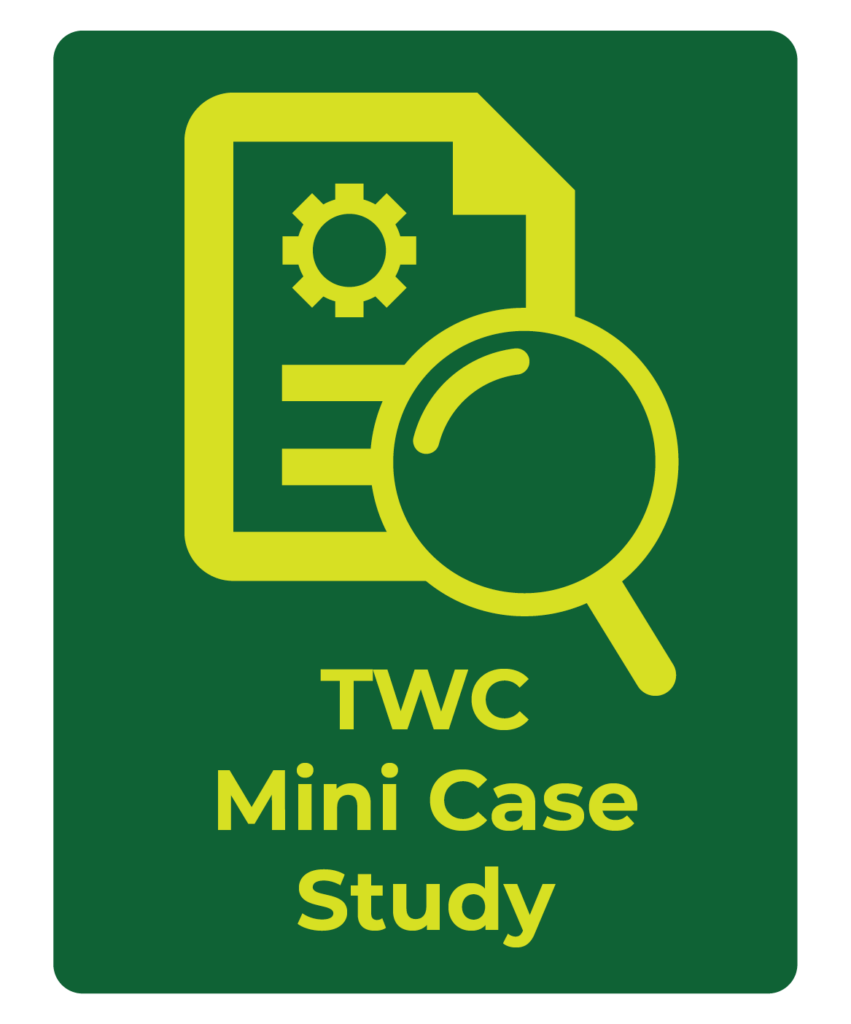
Bus Operator Recruitment and Retention: Confronting Obstacles and Creating Opportunity
This multimedia case study details a high-road training partnership jointly operated by Golden Gate Transit and Amalgamated Transit Union Local 1575.
Transit Workforce Center; Golden Gate Transit; Amalgamated Transit Union Local 1575
June 2022
Golden Gate Transit (GGT) serves four counties in San Francisco’s North Bay. GGT suspended approximately 90% of its commute service during COVID. As of Spring 2022, the agency was operating at roughly 50% of pre -COVID service levels, but needed to hire and retain large numbers of bus operators as ridership demand returned. To achieve this goal, a GGT and ATU labor-management partnership created a high-road training partnership that worked with local colleges and California Transit Works to establish bus operator mentorship, pre-apprenticeship and apprenticeship programs. To guide its initiatives and actions, the partnership also examined data and asked underlying questions about the root causes of their employment challenges, resulting in reevaluating and adjusting some of its pathways to employment and hiring guidelines.
This resource contains presentation slides and video of a Golden Gate Transit/ATU presentation. The entire June 7, 2022 TWC webinar, Recruiting and Developing Today’s Transit Workforce, can be found here. It includes a question and answer session, beginning at 51:53, that covers more detail on this and other recruitment initiatives discussed in the webinar.
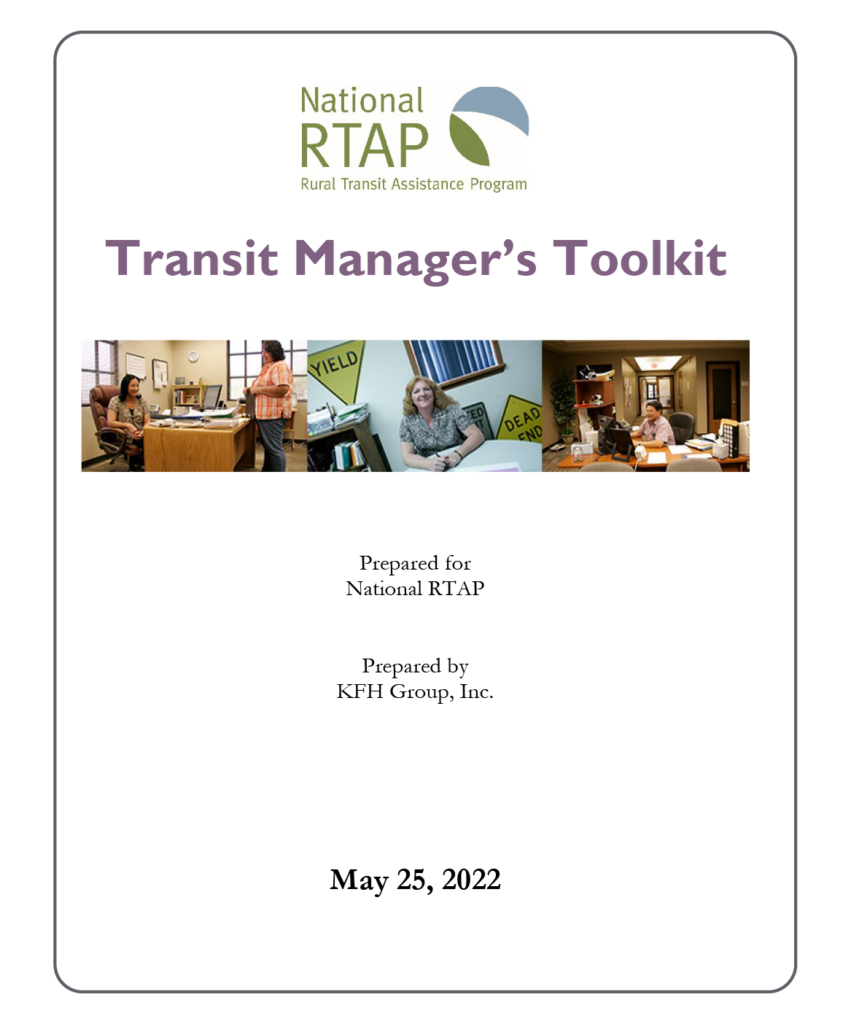
Transit Manager’s Toolkit: Driver Recruitment, Training, and Retention
This toolkit from National RTAP introduces both requirements and suggested practices in driver recruiting/hiring, retention/motivation, and training. It includes information about federal requirements, how to create a positive work environment, and training standards.
National Rural Transit Assistance Program
May 2022
TOPICS: Hiring and Recruitment , Retention , Training
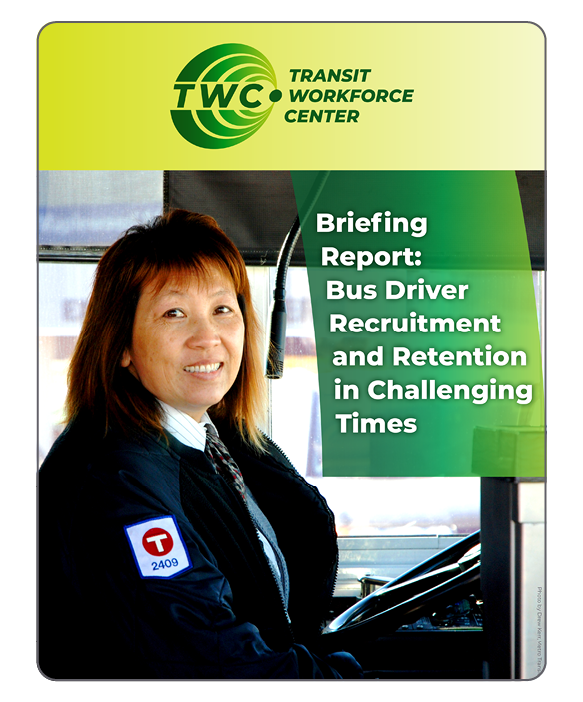
Bus Driver Recruitment and Retention in Challenging Times
Transit Workforce Center
April 2022
TOPICS: Hiring and Recruitment , Retention , Safety and Health , Workforce Shortage
While the U.S. public transportation industry has long had a significant bus operator shortage, it has been magnified by the COVID-19 pandemic. COVID-19 has not only exacerbated existing trends, but also introduced new labor market dynamics. This brief describes overall workforce trends for bus operators, obstacles to recruitment, and challenges for workforce retention, to help inform efforts to recruit more drivers nationwide.
Overall workforce trends
According to 2020 Bureau of Labor Statistics (BLS) data, there are 162,850 bus operators nationally. Federal government projections indicate strong growth for bus operators; BLS estimates the occupation will grow “much faster than average (15 percent or higher).”[1] To keep up with growth and make up for retirements and turnover, the industry will need to recruit scores of new workers. BLS reported an annual average of 24,600 projected bus operator job openings for 2020 to 2030.[2]
According to BLS, annual wages for the occupation were $45,900 in 2020, which was higher than the national median of $41,950.[3] Despite having a reputation for paying relatively well and providing robust benefits,[4], [5] transit agencies have faced significant challenges to recruit workers in sufficient numbers to meet the growing demand. The rise of COVID and the omicron variant have created a “labor crisis” in transit, leading Houston Metro to offer bonuses of $4,000 for new drivers, and NYC to try to lure workers out of retirement, for example.[6]
Demographic challenges
One major demographic challenge contributing to the current operator shortage is the disproportionately older bus operator workforce. As Figure 1 on the next page shows, the median age of U.S. workers was 42.2 years in 2021, and 42.8 years in transportation and warehousing. For the bus service and urban transit industry, it was 52.7, which is substantially higher than both the nationwide median age for workers and the median age for other subsectors within transportation and warehousing, such as air or rail transportation.[7] The higher median age of urban transit workers is largely attributable to the older age of bus drivers (median 53.3 years)[8], who constitute 60 percent of the workforce[9]. A large percentage of workers are expected to retire in the coming years.[10], [11]
COVID-related health and safety issues
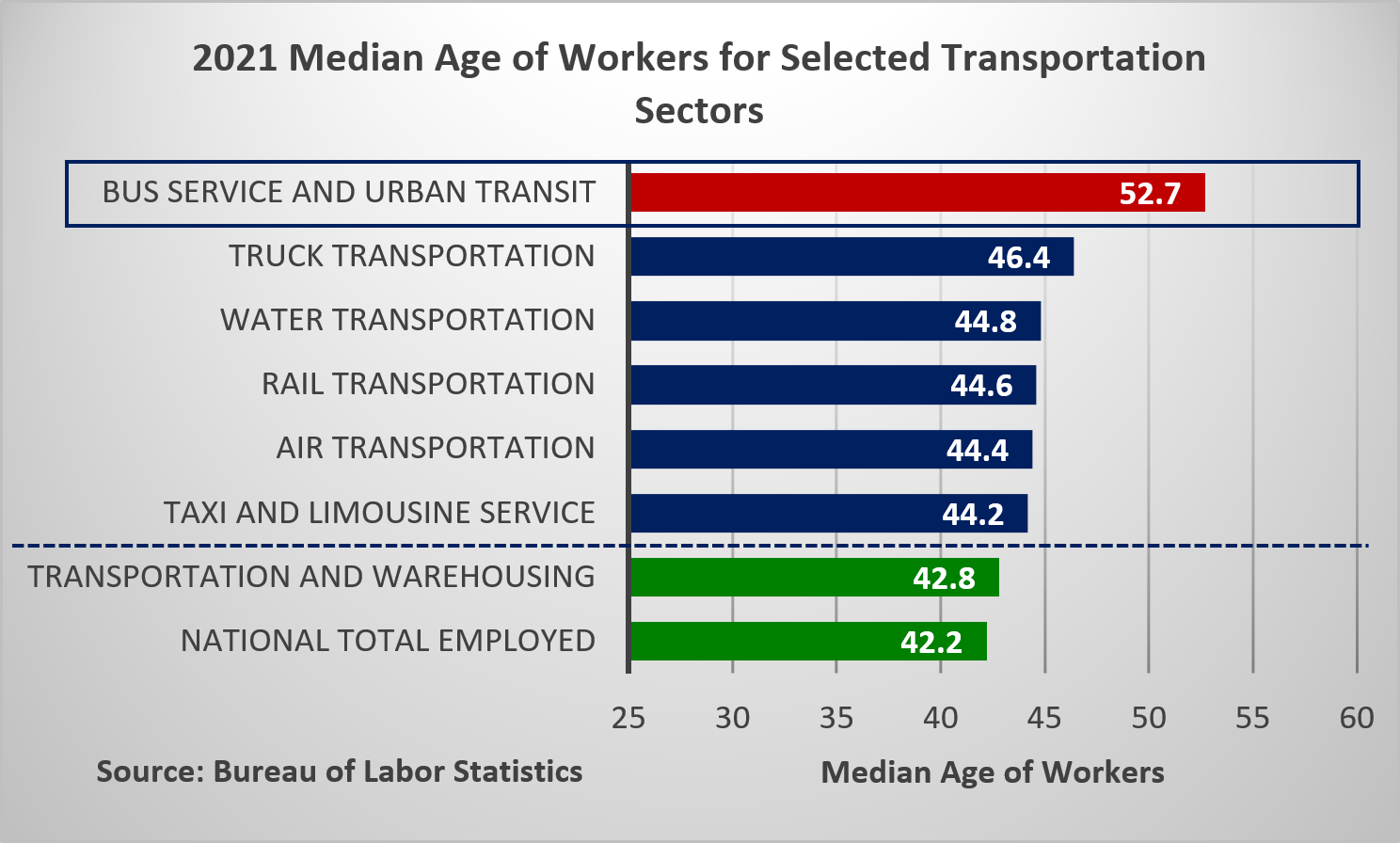
Figure 1. 2021 Median Age of Workers for Selected Transportation Sectors
As frontline workers, bus operators risk exposure to COVID-19, and serious health consequences, even death. For example, in New York City, 136 MTA operators died around the start of the pandemic.[12] As of December 2021, more than 2,000 COVID cases have been reported among WMATA workers since the pandemic began; seven of the workers died. According to CTAA, some member agencies have experienced as many as 40 percent of their operators absent from work due to sickness.[13] COVID-related factors have resulted in bus operator shortages and service cuts,[14] a trend which has occurred in transit systems nationwide. In addition, some drivers have quit due to fears about the virus or been terminated due to failure to comply with vaccination and testing policies.[15]
Pre-existing labor market dynamics
The pandemic has also exacerbated existing workforce challenges, such as competition for pay. Stakeholders interviewed for a GAO study reported that other industries which hire workers with similar levels of education, including fast food, may attract workers instead of transit, especially in rural areas or areas with low unemployment.[16] When the economy is strong, construction also tends to attract workers who might otherwise work in transit. Furthermore, some workers leave the transit industry once they have earned their CDL.[17]
CDL and new requirements
Transit bus drivers are generally required to hold Class B Commercial Drivers’ Licenses and passenger (P) endorsements. Due to the high cost of self-funding CDL training, employer-sponsored training programs in which costs are covered, such as those run by transit agencies, are an attractive option for job seekers. However, the potential exists for trainees to pursue employment in commercial driving or another sector after completing a transit-oriented training program.[18] This dynamic is particularly challenging given concurrent shortages of truck and school bus drivers.[19]
Individuals are required to hold a standard driver’s license to qualify for a commercial learners’ permit, which in turn is needed to pursue CDL training.[20] These requirements may impact recruitment of young people, as rates of driver’s license attainment for 18–24 year-olds have decreased slightly in recent decades and may be lower during recessionary periods and among minority populations and residents of cities.[21]
Regulatory changes impacting entry level driver training (ELDT) may also affect agencies’ ability to fill positions. As of February 7, 2022, the FMCSA has started enforcing universal training standards for entry level driver training and maintaining a database of qualified providers (the Training Provider Registry).[22] Professional organizations representing transit agencies such as APTA and CTAA have expressed concern about these additional regulatory requirements. Agency contacts have also identified challenges related to requirements around license renewal, medical fitness testing, the availability of training during the pandemic and delays with local DMVs processing CDL application due to pandemic staff shortages. FMCSA has granted waivers around certain other CDL requirements during the pandemic, and recently announced a grant to support state capacity for CDL licensing, though the emphasis appears to be on commercial trucking. [23], [24]
Assaults against drivers
Driver safety has been a persistent problem. Assaults against drivers and altercations with passengers have been well-publicized in communities that transit serves.[25], [26]A 2015 Monthly Labor Review article identified violence as a key challenge facing drivers, with examples including a 2012 attack with rocks in Washington, DC and a 2013 shooting in Seattle.[27] More recently, drivers have reported increased stress during the pandemic and face threats including violence related to passenger non-compliance with mask mandates, among other issues. Such incidents have deterred potential applicants from considering a transit driving career and contributed to early retirements.[28]
Lack of interest from younger generations
Younger workers have different expectations about the workplace, which has made it challenging for agencies to recruit them. Younger workers tend to value flexible schedules, yet operators must often work on holidays and weekends, especially when they first start in the field. New hires in general may not find this attractive.[29]
Advances in technology
Advances in technology present challenges to recruitment and retention. The rise of automation and apps requires drivers to possess technical knowledge to operate newer buses and assist customers; this means there is a relatively small pool of qualified workers. Additional and new types of training are needed for both incumbent and new workers to adapt. Furthermore, drivers report feeling stress from being monitored more often by cameras and tracking technology.[30], [31]
Stress and burn-out
Finally, being a bus operator is a highly stressful occupation. Drivers must operate large vehicles on congested city streets on tight time schedules.[32] They work relatively long hours with infrequent breaks.[33] As discussed earlier, technological advances have contributed to worker stress as well. Operators also experience burn-out due to the stress of dealing with passengers, who may ignore COVID safety rules,[34] or be unruly or violent.
Conclusion
Bus operators have been in short supply for years, and this problem has been magnified by COVID-19. An aging workforce and labor exits related to COVID have largely contributed to the shortage. Top obstacles to recruitment and retention include pandemic-related health and safety issues, pre-existing labor market dynamics including competition over pay, CDL requirements, assaults against drivers, and lack of interest from younger generations. Other contributing factors include advances in technology, perceptions of inflexibility, and stress. To address these workforce recruitment and retention issues for bus operators, key stakeholders from management and labor should keep these data and trends in mind.
Bus Operator Recruitment Campaign
The Transit Workforce Center (TWC) is currently developing a national campaign in coordination with the FTA, along with key labor and industry partners, to effectively address the national bus operator shortage. The TWC is preparing to create a toolkit of materials designed to be adapted by agencies and labor union locals that will consist of templates for commercial scripts, postcard mailers, exhibit banners, talking points for public meetings, social media postings, informational video scripts, and letters of introduction. If any organization has existing models that should be incorporated into these plans, please contact Senior Communications Specialist David Stephen at dstephen@transportcenter.org.
Contributing Authors: Benjamin Kreider (Consultant); Xinge Wang; Douglas Nevins
[1] Bureau of Labor Statistics. Occupational Employment and Wages, May 2020. 53-3052 Bus Drivers, Transit and Intercity. https://www.bls.gov/oes/current/oes533052.htm
[2] Bureau of Labor Statistics. Table 1.7: Occupational projections, 2020–30, and worker characteristics, 2020. https://www.bls.gov/emp/tables/occupational-projections-and-characteristics.htm.
[3] Summary Report for: 53-3052.00 – Bus Drivers, Transit and Intercity. O*Net Online. https://www.onetonline.org/link/summary/53-3052.00?redir=53-3021.00.
[4] Shared-Use Mobility Center. “Case Study: Managing the Labor Shortage at Transit Agencies.” November 5, 2021. https://learn.sharedusemobilitycenter.org/casestudy/managing-the-labor-shortage-at-transit-agencies/.
[5] Laura Bliss. “There’s a Bus Driver Shortage. And No Wonder.” Bloomberg City Lab. June 28, 2018. https://www.bloomberg.com/news/articles/2018-06-28/there-s-a-bus-driver-shortage-and-no-wonder.
[6] Eli Rosenberg. “Labor shortages are hampering public transportation systems, challenging the recovery of city life.” Washington Post. December 28, 2021. https://www.washingtonpost.com/business/2021/12/28/worker-shortages-public-transportation/.
[7]Bureau of Labor Statistics. Table18b: Employed persons by detailed industry and age. https://www.bls.gov/cps/cpsaat18b.htm.
[8] Bureau of Labor Statistics, Table 11b: Employed persons by detailed occupation and age, 2020. https://www.bls.gov/cps/cpsaat11b.htm.
[9] Bureau of Labor Statistics, National Employment Matrix. https://data.bls.gov/projections/nationalMatrix?queryParams=485100&ioType=i.
[10] Jack Clark. Testimony before the House Transportation Infrastructure Subcommittee on Highways. March 13, 2019. https://transportation.house.gov/imo/media/doc/Testimony-%20Clark.pdf.
[11] Robert Puentes et al. “Practitioner’s Guide to Bus Operator Workforce Management.” Transportation Research Board of The National Academies of Sciences, Engineering, and Medicine. November, 2021. Unpublished interim report.
[12] Benito Perez. “After COVID, who’s driving the bus?” Transportation For America. Nov 2, 2021. https://t4america.org/2021/11/02/bus-operator-shortage/.
[13] Justin George. “Omicron deepens bus driver shortage, frustrating passengers as transit agencies pare back service.” Washington Post. January 15, 2022. https://www.washingtonpost.com/transportation/2022/01/15/covid-omicron-bus-transit/
[14] Justin George. “Bus operator shortage due to covid prompts Metro to reduce bus service.” Washington Post. December 23, 2021. https://www.washingtonpost.com/transportation/2021/12/23/dc-metro-bus-shortage-covid/.
[15] “MARTA Making Temporary Service Modifications to Address Bus Operator Shortage.” Metro Magazine. https://www.metro-magazine.com/10155945/marta-making-temporary-service-modifications-to-address-bus-operator-shortage. November 12, 2021.
[16] US Government Accountability Office. “Transit Workforce Development – Improved Strategic Planning Practices Could Enhance FTA Efforts.” GAO-19-2090. March 2019. https://www.gao.gov/assets/700/697562.pdf. P. 15.
[17] Puentes et al., 2021.
[18] Puentes et al., 2021. P. 37.
[19] Bliss, 2021.
[20] FMCSA. “Commercial Driver’s License: States.” December, 2019. https://www.fmcsa.dot.gov/registration/commercial-drivers-license/states
[21] Tefft, B. C. & Foss, R. D. “Prevalence and Timing of Driver Licensing Among Young Adults, United States, 2019.” October, 2019. AAA Foundation for Traffic Safety. https://aaafoundation.org/wp-content/uploads/2019/10/19-0500_AAAFTS_Teen-Driver-Safety-Week-Brief_r1.pdf
[22] FMCSA. “Commercial Driver’s License: Entry-Level Driver Training (ELDT). February, 2022. https://www.fmcsa.dot.gov/registration/commercial-drivers-license/entry-level-driver-training-eldt
[23] FMCSA. “Waiver in Response to the COVID-19 National Emergency –For States, CDL Holders, CLP Holders, and Interstate Drivers.” December 15, 2020. https://www.fmcsa.dot.gov/emergency/waiver-response-covid-19-national-emergency-states-cdl-holders-clp-holders-and-1
[24] U.S. DOT. “DOT, DOL Announce Expansion of Trucking Apprenticeships, New Truck Driver Boards and Studies to Improve the Working Conditions of Truck Drivers.” January 13, 2022. https://www.transportation.gov/briefing-room/dot-dol-announce-expansion-trucking-apprenticeships-new-truck-driver-boards-and
[25] Puentes et al., 2021. P. 36.
[26] Luz Lazo. “Citing attacks directed at buses, Metro weighs service cuts in Anacostia.” Washington Post.
[27] Bureau of Labor Statistics. “When the wheels on the bus stop going round and round: occupational injuries, illnesses, and fatalities in public transportation.” 2015. https://www.bls.gov/opub/mlr/2015/article/when-the-wheels-on-the-bus-stop-going-round-and-round.htm#_edn1..
[28] Chris Teale. “Transit workers face growing rate of assaults: ‘There’s not much we can do.’” Smart Cities Dive. February 17, 2021. https://www.smartcitiesdive.com/news/transit-workers-face-growing-rate-of-assaults-theres-not-much-we-can-do/594959/
[29] Puentes et al., 2021.
[30] Puentes et al., 2021.
[31] GAO, p. 16.
[32] Bliss, 2018.
[33] GAO, 2019; Puentes et al., p. 14.
[34] Justin George. “Omicron deepens bus driver shortage, frustrating passengers as transit agencies pare back service.” Washington Post. January 15, 2022. https://www.washingtonpost.com/transportation/2022/01/15/covid-omicron-bus-transit/.
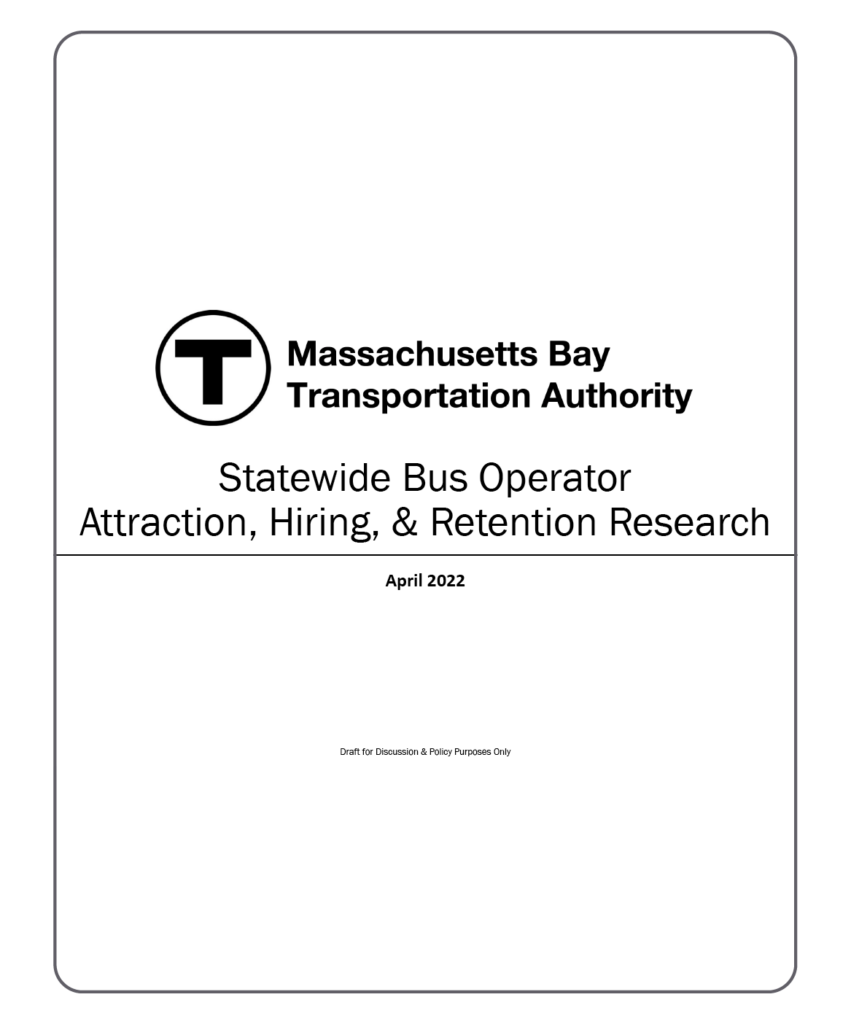
Statewide Bus Operator Attraction, Hiring, & Retention Research
These slides were used in a presentation outlining research conducted to better understand the shape and scale of the bus operator shortage in Massachusetts public transit and the adjustments agencies are making to confront these challenges.
Massachusetts Bay Transportation Authority
April 2022
TOPICS: Hiring and Recruitment , Retention , Workforce Shortage
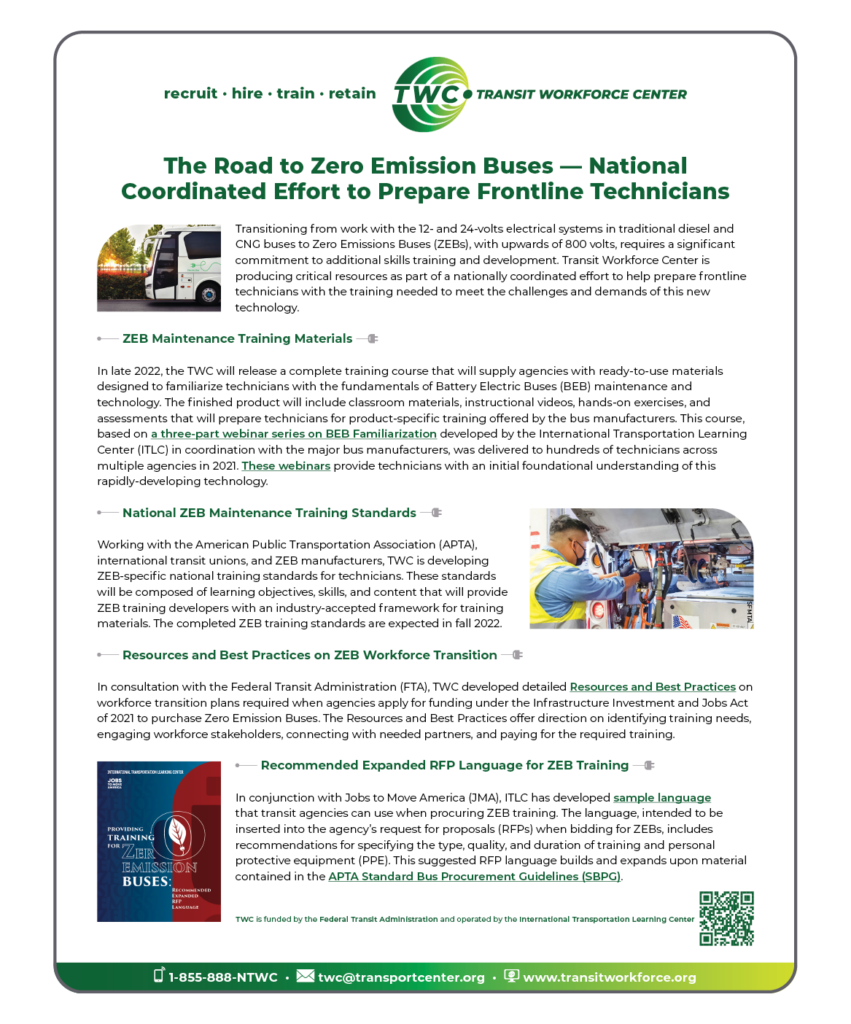
The Road to Zero Emission Buses — National Coordinated Effort to Prepare Frontline Technicians
Transit Workforce Center
March 2022
TOPICS: Hiring and Recruitment , Policy and Planning , Procurement , Training , Zero Emission Buses
Transitioning from work with the 12- and 24-volts electrical systems in traditional diesel and CNG buses to Zero Emissions Buses (ZEBs), with upwards of 800 volts, requires a significant commitment to additional skills training and development. The Transit Workforce Center is producing critical resources as part of a nationally coordinated effort to help prepare frontline technicians with the training needed to meet the challenges and demands of this new technology. This document summarizes our ZEB resources.
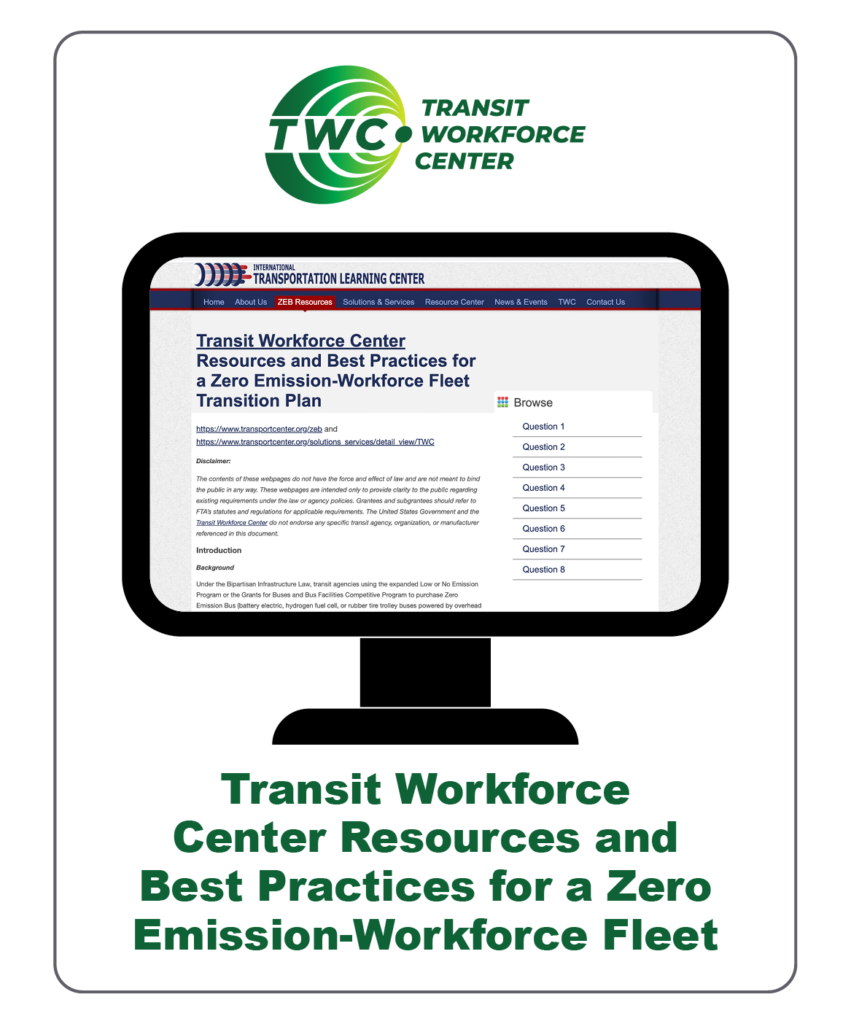
Transit Workforce Center Resources and Best Practices for a Zero Emission-Workforce Fleet Transition Plan
A supplemental resource to aid agencies seeking to develop and implement a carefully planned joint labor-management workforce strategy for the transition to a zero-emission fleet in partnership with its workforce. Examples of best practices, lessons learned, and other resources are provided to help transit agencies examine and address their workforce needs and are not intended to be all-inclusive given the unique circumstances of that transit agencies face.
Transit Workforce Center
March 2022
TOPICS: Policy and Planning , Procurement , Zero Emission Buses
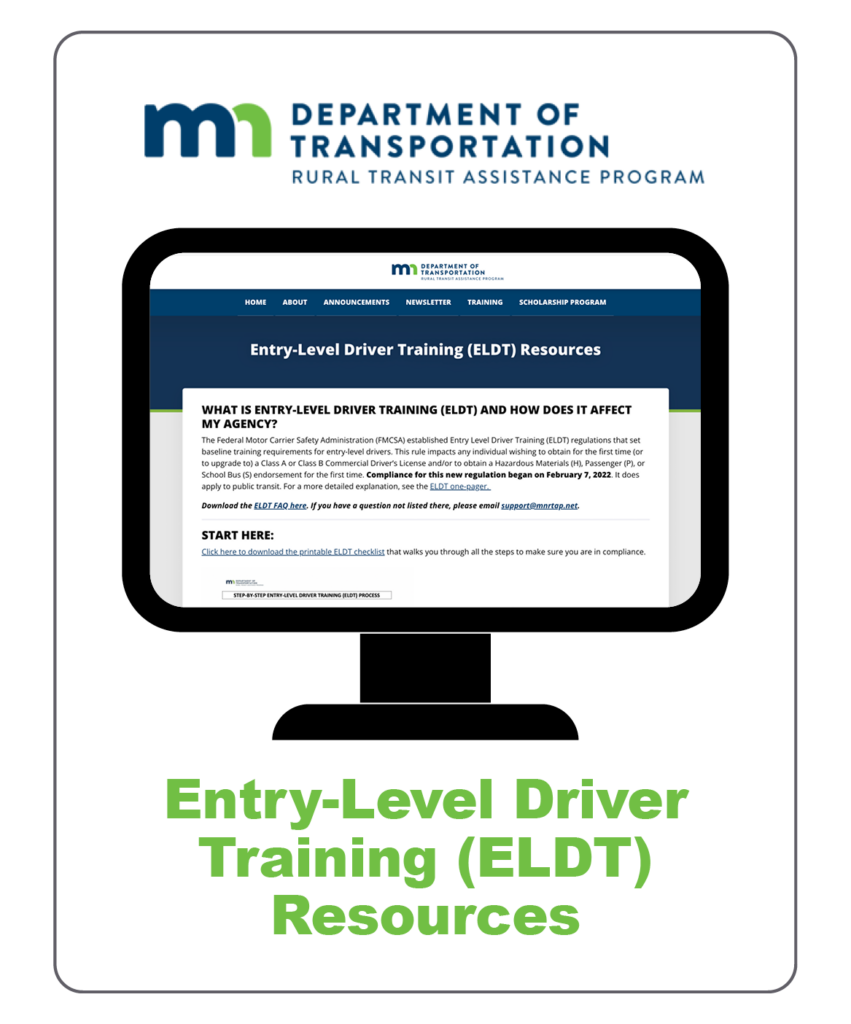
Entry-Level Driver Training (ELDT) Resources
The Federal Motor Carrier Safety Administration (FMCSA) established Entry Level Driver Training (ELDT) regulations that set baseline training requirements for entry-level drivers. This rule impacts any individual wishing to obtain for the first time (or to upgrade to) a Class A or Class B Commercial Driver’s License. These resources from the Minnesota Rural Transit Assistance Program (RTAP) provide information about the regulations, training materials, training providers, checklists, etc. to assist transit agencies in complying with regulations.
Minnesota Rural Transit Assistance Program
February 2022
TOPICS: Career Pathways , Hiring and Recruitment , Training
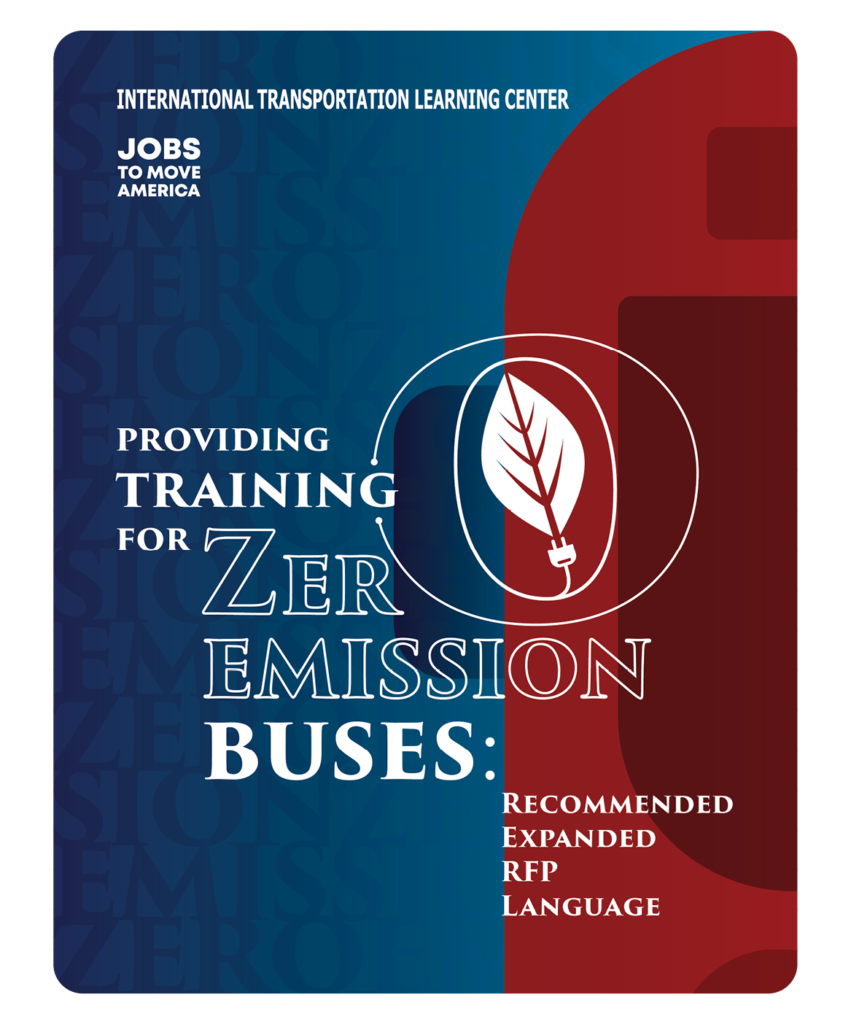
Providing Training for Zero Emission Buses: Recommended Expanded RFP Language
This document includes recommended language for agencies to build robust training procurement into their ZEB Request for Proposals. It is intended to be used as a starting point for agencies to tailor their training procurement to suit their specific needs.
International Transportation Learning Center; Jobs to Move America
February 2022
TOPICS: Procurement , Training , Zero Emission Buses
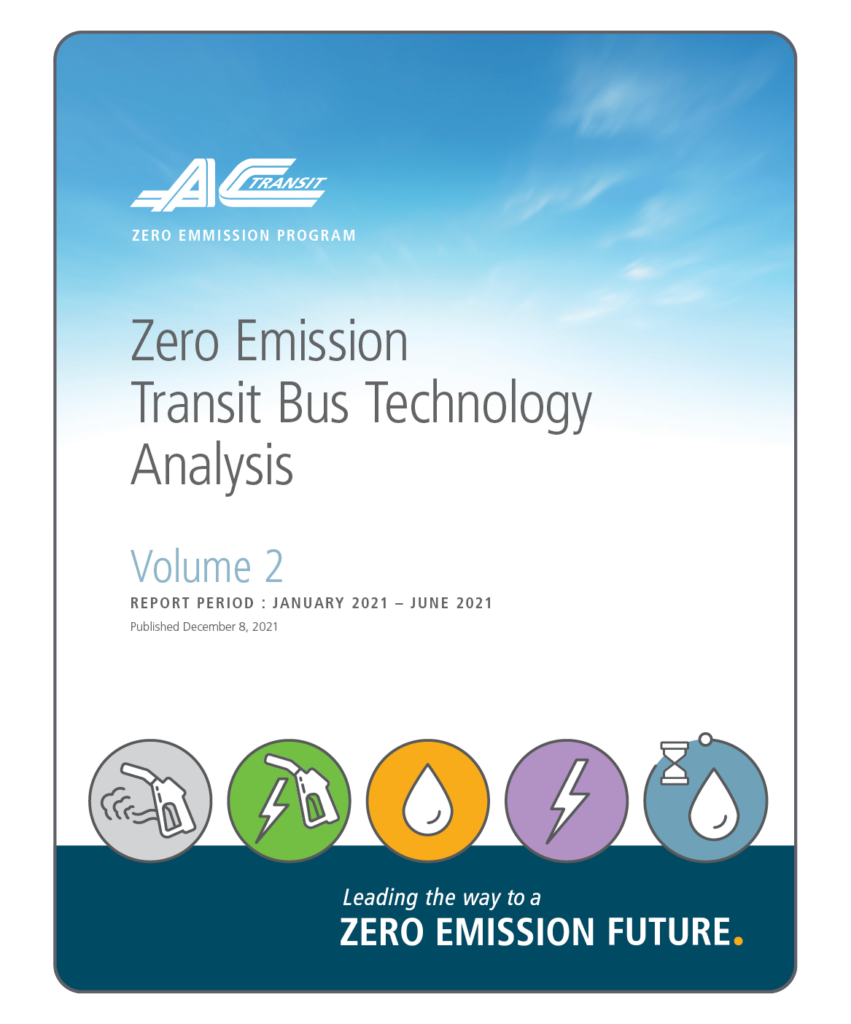
Zero Emission Transit Bus Technology Analysis Volume 2
This report, Volume 2, is the second edition of the Zero Emission Transit Bus Technology Analysis (ZETBTA) which includes results from the fuel-cell electric bus (FCEB), battery electric bus (BEB), diesel hybrid bus, and conventional diesel bus technologies control fleet. It integrates lessons learned and best practices gleaned from AC Transit’s extensive experience in deploying ZEB technologies, including developing innovative workforce training programs, data integration and management, and transit deployment viability.
AC Transit
December 2021
TOPICS: Procurement , Training , Zero Emission Buses
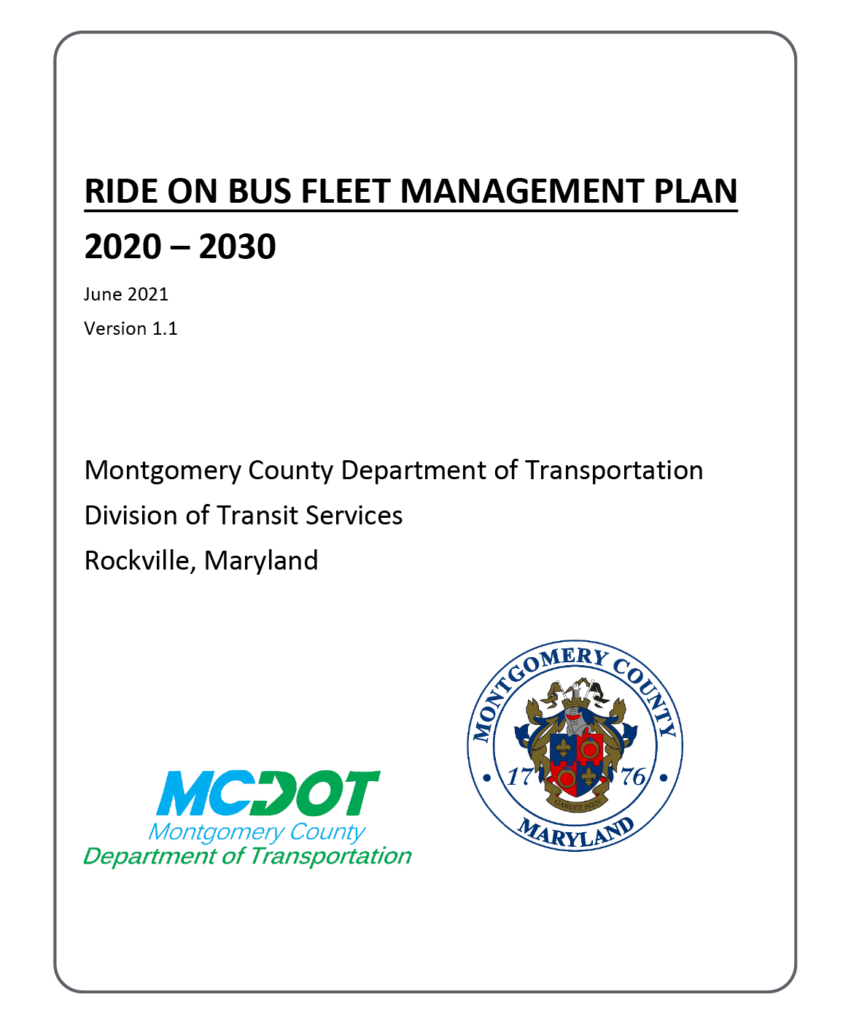
Montgomery County Bus Fleet Management Plan
The Montgomery County Bus Fleet Management Plan features a particularly in-depth zero-emission fleet transition plan, including an assessment of greenhouse gas emissions in the county, implementation challenges associated with zero-emission buses, and recommendations for fleet transition. The plan also dives into maintenance facilities, energy costs, and future infrastructure needs.
Montgomery County Department of Transportation
June 2021
TOPICS: Policy and Planning , Zero Emission Buses
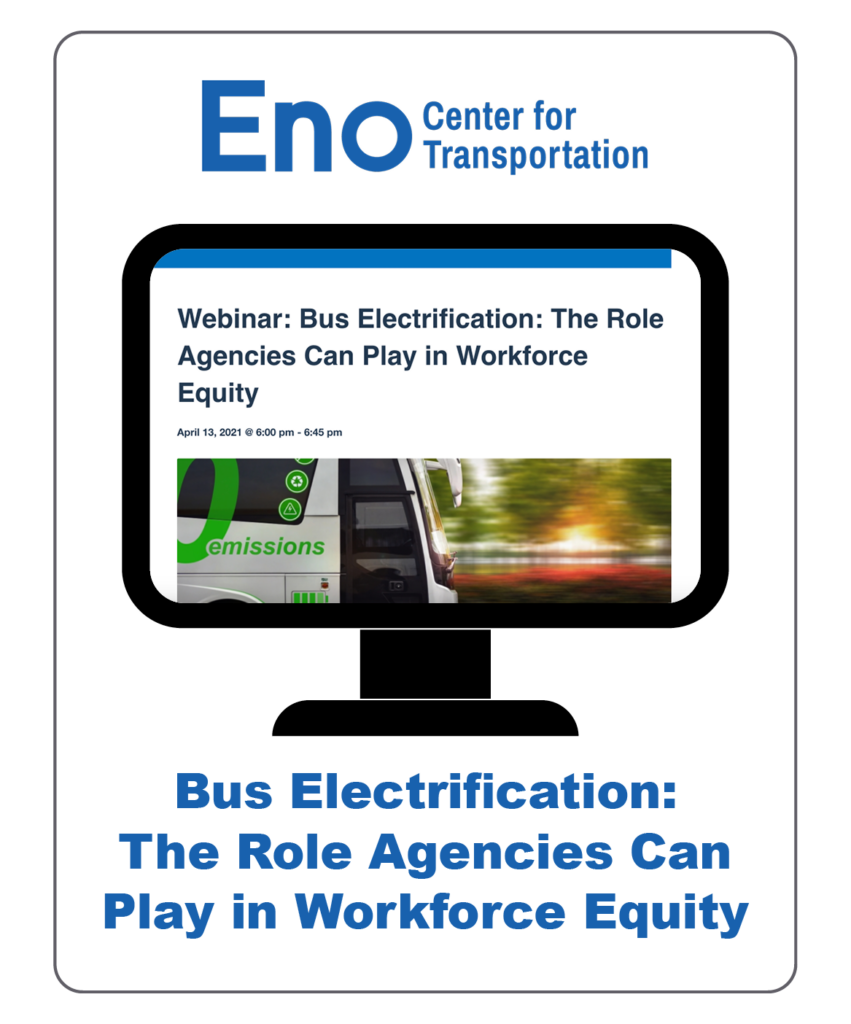
Bus Electrification: The Role Agencies Can Play in Workforce Equity
In this webinar, speakers discuss the issues of procurement, manufacturing, job creation, and job equity associated with fleet electrification.
Eno Center for Transportation
April 2021
TOPICS: Policy and Planning , Procurement , Retention , Zero Emission Buses
Speakers:
- Christy Veeder, PhD, National Program Director, Jobs to Move America
- Brianne Eby, Senior Policy Analyst, Eno Center for Transportation
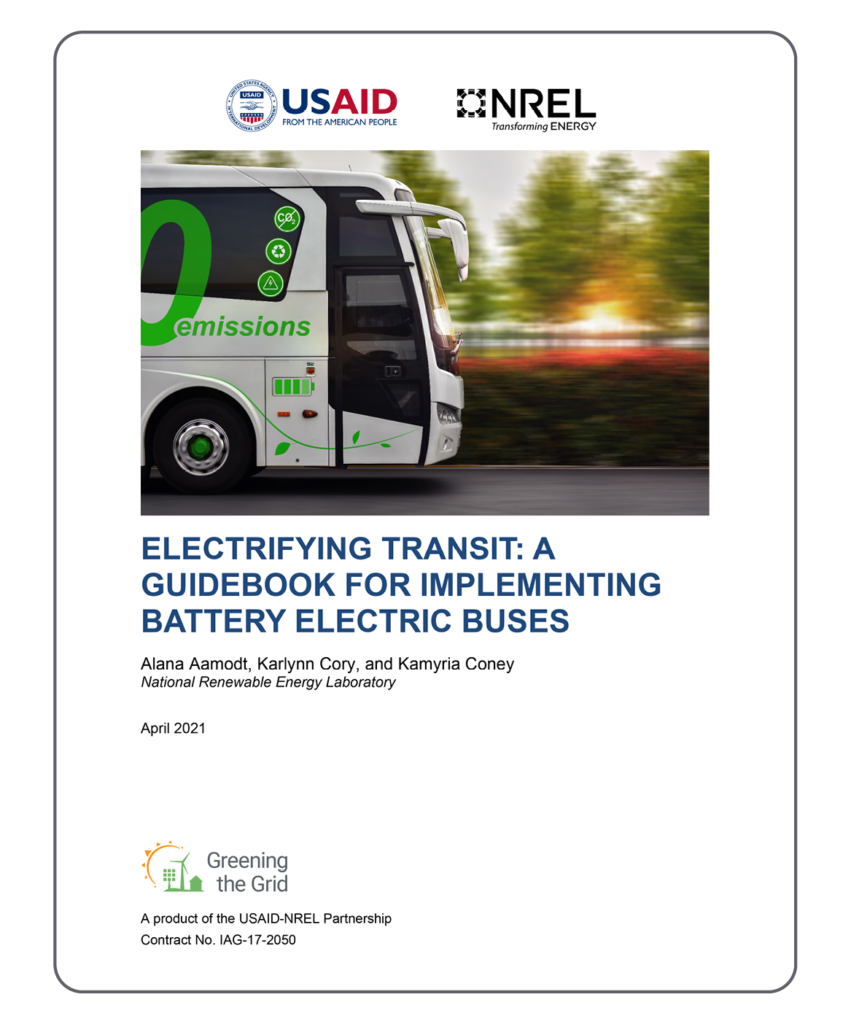
Electrifying Transit: A Guidebook for Implementing Battery Electric Buses
This guidebook assists stakeholders with interest in deploying battery-electric buses by describing decisions and considerations required for successful BEB implementation. It includes information about the benefits and barriers of BEBs, BEB basics, charging infrastructure, operation and maintenance, and costs.
United States Agency for International Development; National Renewable Energy Laboratory
April 2021
TOPICS: Procurement , Zero Emission Buses
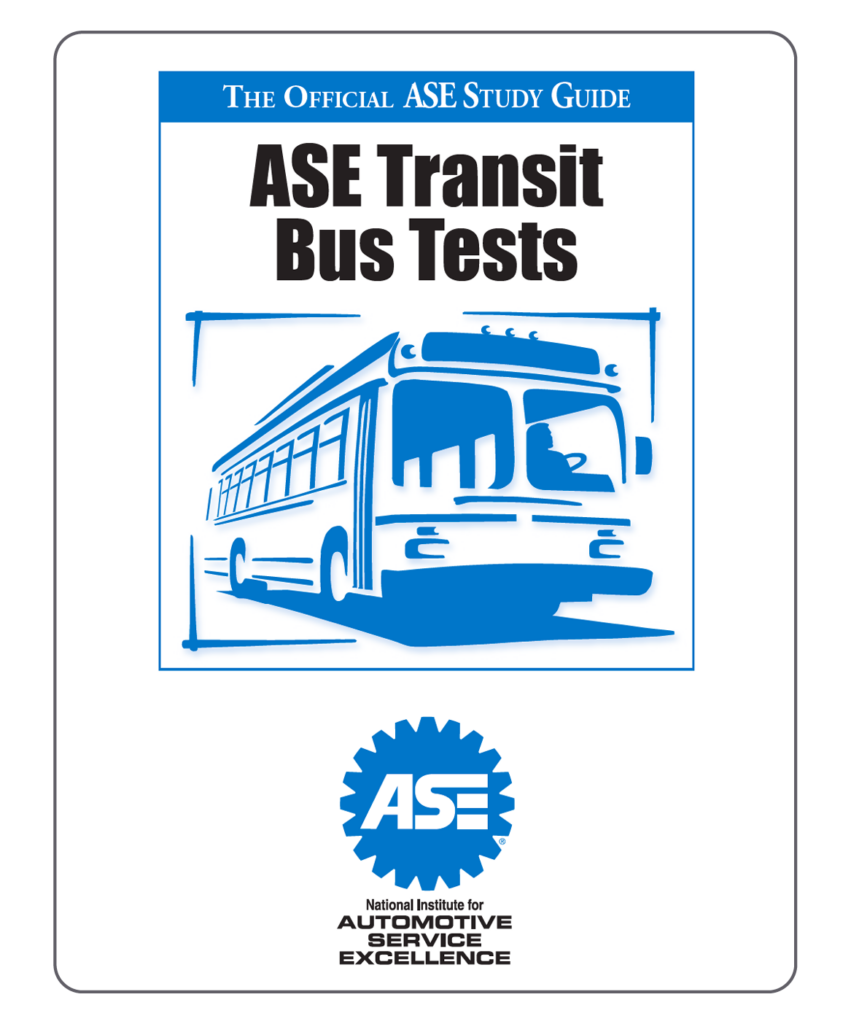
ASE Transit Bus Test Study Guide
The Official ASE Study Guide for Transit Bus Tests is designed to help technicians prepare for the ASE certification tests, which identify and recognize those Transit Bus Technicians who demonstrate knowledge of the skills necessary to diagnose, service, and repair various systems on transit buses.
Automotive Service Excellence (ASE)
January 2021
TOPICS: Safety and Health , Training , Zero Emission Buses
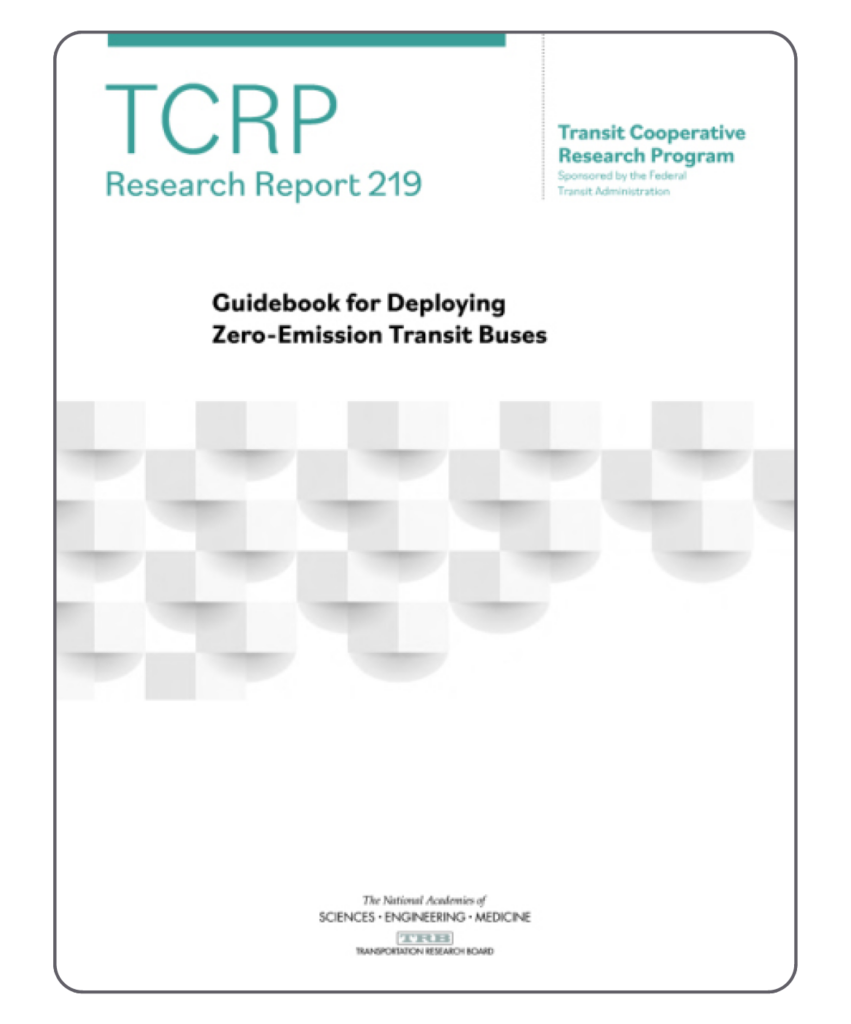
Guidebook for Deploying Zero-Emission Transit Buses
The TCRP Research Report 219: Guidebook for Deploying Zero-Emission Transit Buses is designed to provide transit agencies with information on current best practices for ZEB deployments and lessons learned from previous deployments, industry experts, and available industry resources.
Transportation Cooperative Research Program
January 2021
TOPICS: Policy and Planning , Procurement , Zero Emission Buses
Contributor(s): National Academies of Sciences, Engineering, and Medicine; Transportation Research Board; Transit Cooperative Research Program; Meredith Linscott; Amy Posner
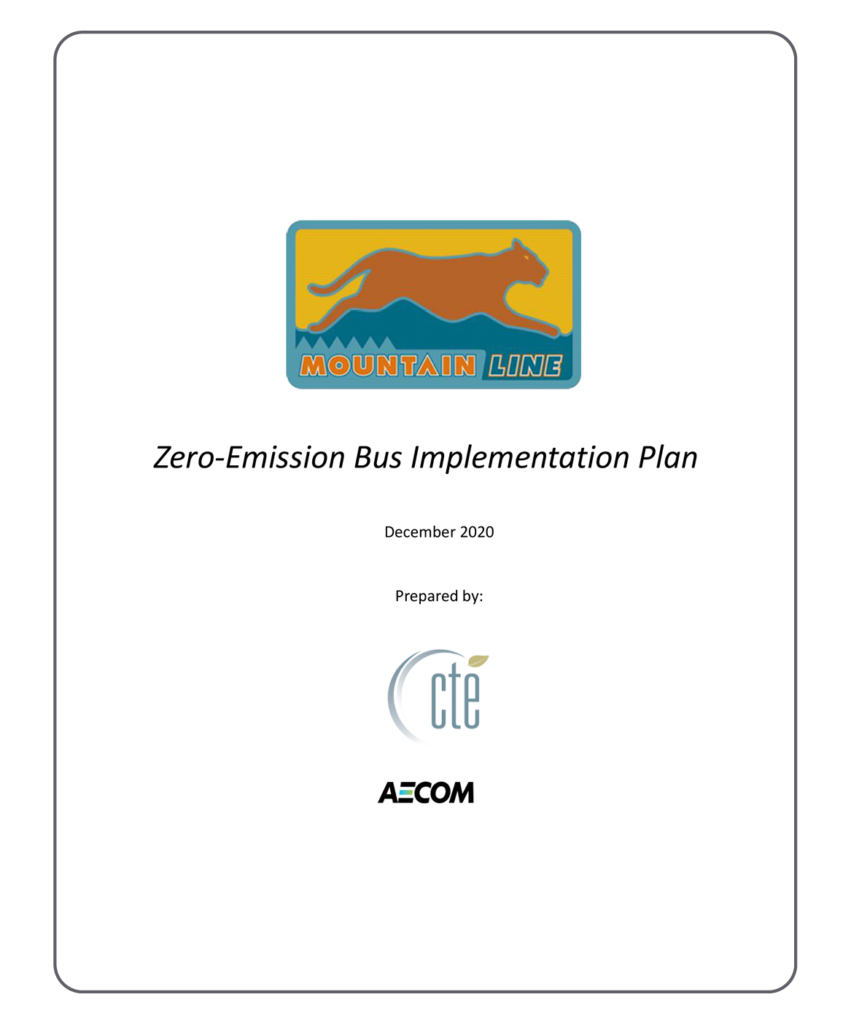
Mountain Line Zero-Emission Bus Implementation Plan
This is the Zero Emission Bus (ZEB) Implementation Plan prepared by the Northern Arizona intergovernmental Public Transportation Authority (referred to as Mountain Line) in contract with the Center for Transportation and the Environment (CTE) with the aim of identifying a zero-emission roadmap for full-scale deployment.
Center for Transportation and the Environment; AECOM
December 2020
TOPICS: Procurement , Safety and Health , Training , Zero Emission Buses
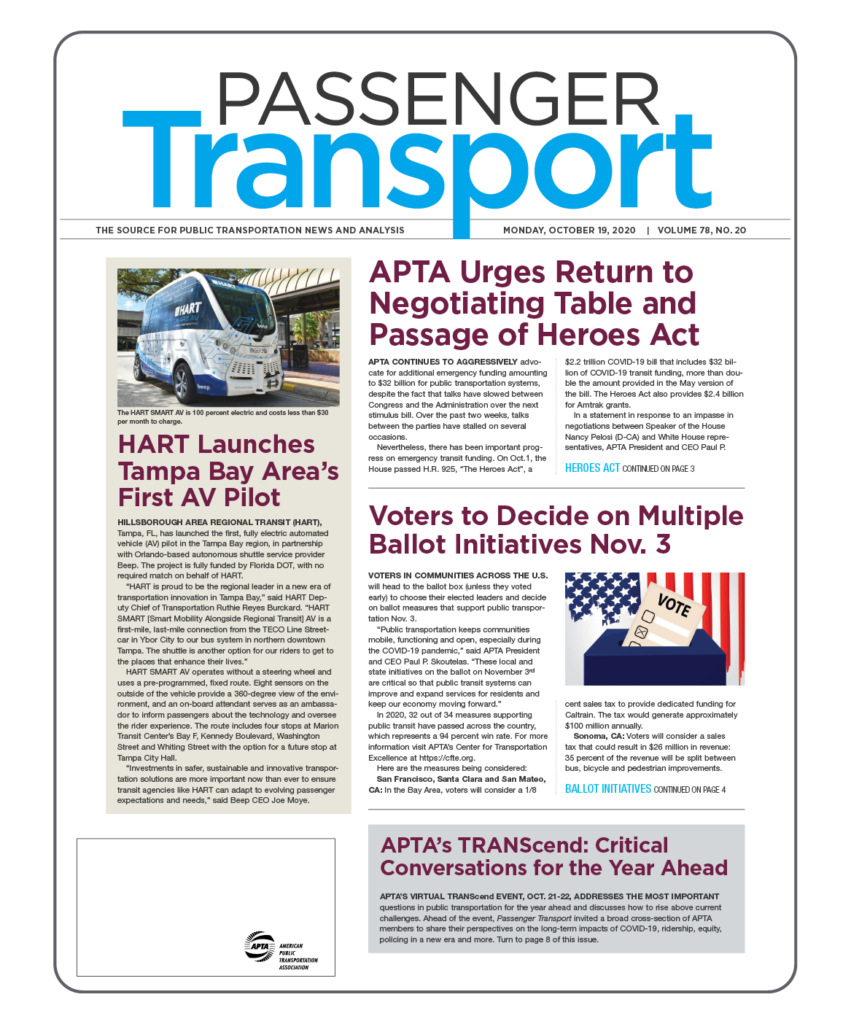
Transit Apprenticeship at Pierce Transit: From the Ground Up
This article in APTA’s Passenger Transport issue discusses the apprenticeship program at Pierce Transit, which is part of a transit apprenticeship initiative and has received technical assistance in structuring their apprenticeship program as well as financial assistance to reimburse some training costs.
American Public Transportation Association; International Transportation Learning Center
October 2020
TOPICS: Apprenticeship , Training
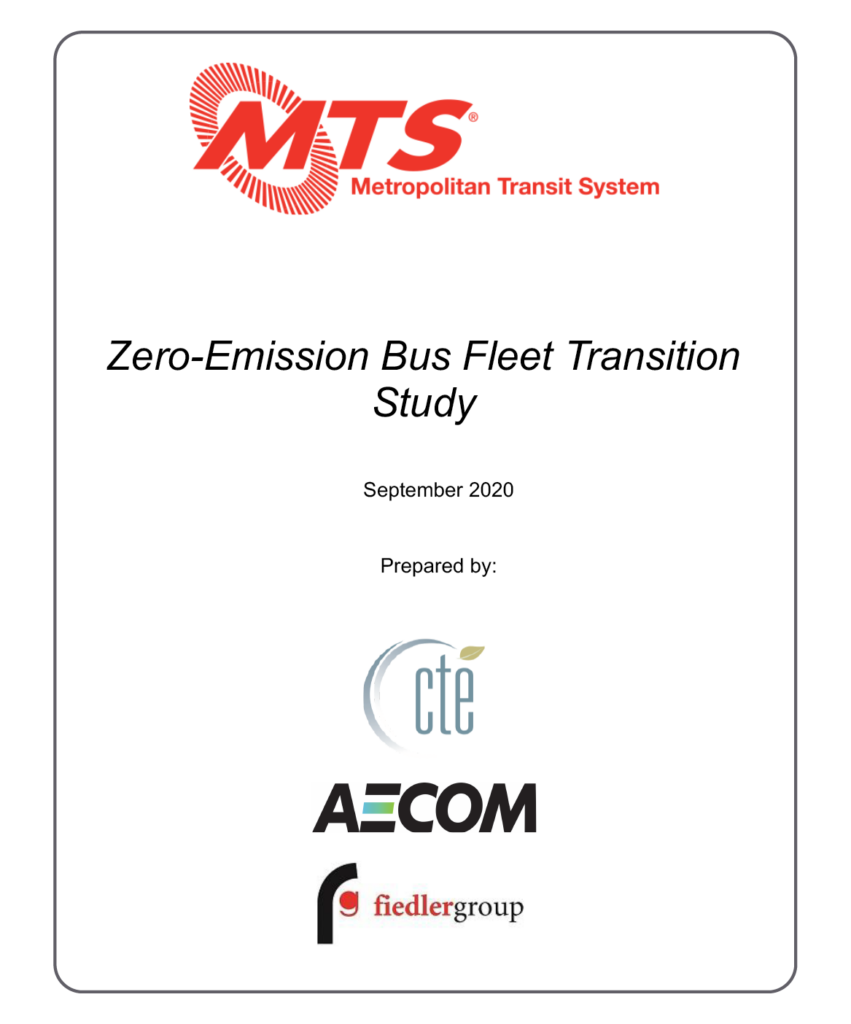
MTS Zero-Emission Bus Fleet Transition Study
This study, performed by the Center for Transportation and the Environment (CTE) for the San Diego Metropolitan Transit System (MTS), creates a plan for a 100% zero-emission fleet by 2040 to be in compliance with the Innovative Clean Transit (ICT) regulation enacted by the California Air Resources Board (CARB). The results of the study will be used to inform MTS Board members and educate MTS staff of estimated costs, benefits, constraints, and risks to guide future planning and decision making.
Center for Transportation and the Environment; AECOM; Fiedler Group
September 2020
TOPICS: Policy and Planning , Zero Emission Buses
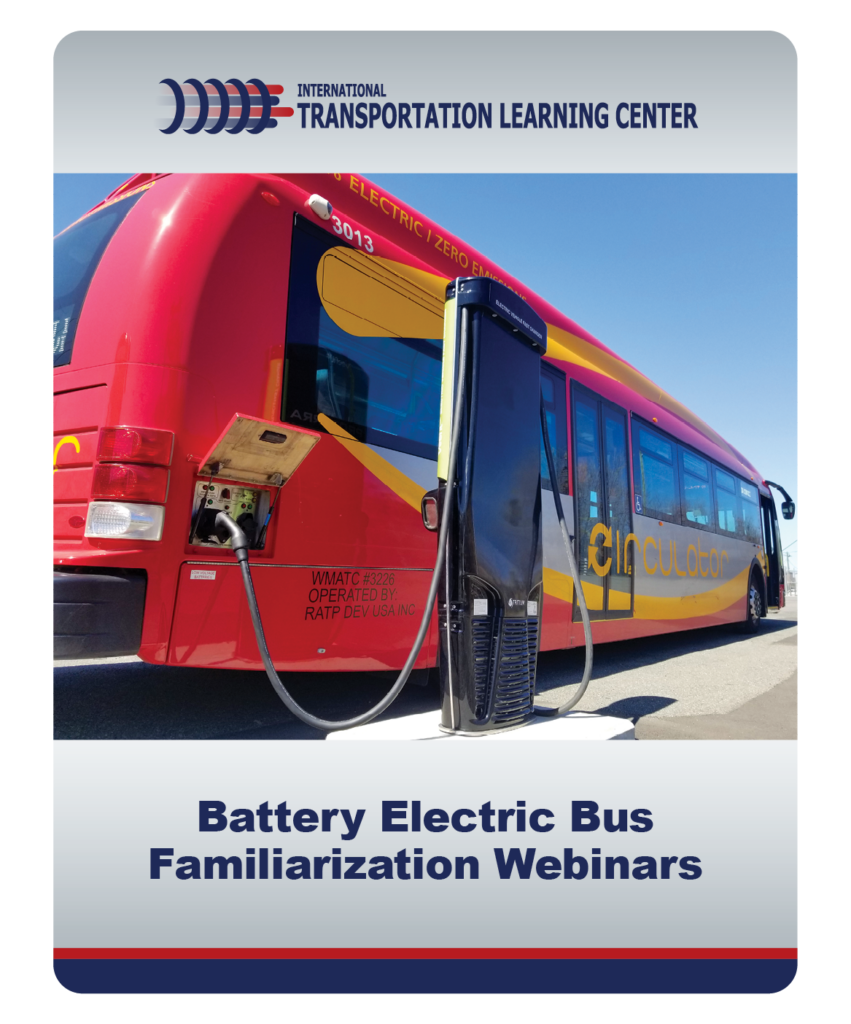
Battery Electric Bus Familiarization Webinars
The International Transportation Learning Center presents three distance-based courses to help transit bus technicians gain fundamental understanding of battery electric bus (BEB) technology. These courses are recorded from live online sessions.
International Transportation Learning Center
June 2020
TOPICS: Safety and Health , Training , Zero Emission Buses
In each session, experts from various BEB manufacturers presented on specific topics, with over 400 participants attending. Each session is introduced by John Schiavone, who moderated many questions from participants. Please click through the drop-down options below to view the recorded sessions, slides and presenters’ notes, and sample tests and test answers.
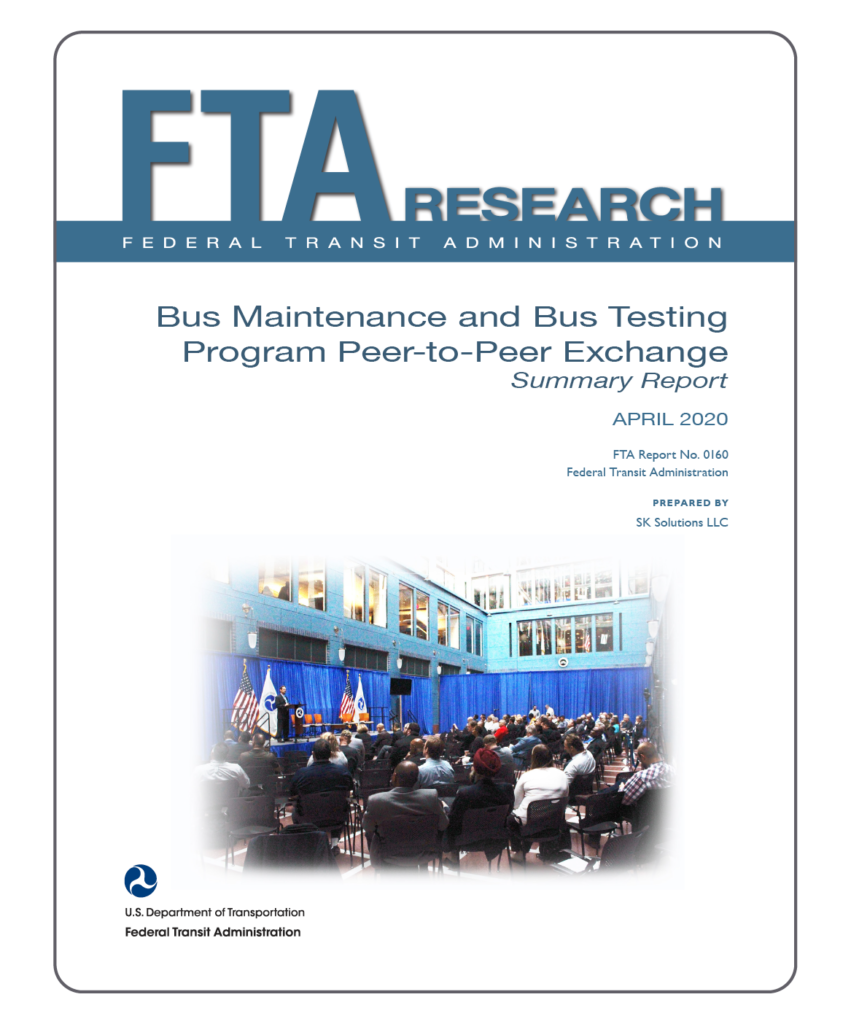
Bus Maintenance and Bus Testing Program Peer-to-Peer Exchange
This report presents a summary of the bus maintenance worker training peer exchange, hosted by the Federal Transit Administration (FTA). Significant shifts in the types of transit buses being procured (e.g., from traditional buses to alternative fuel/low- and no-emission buses) require new and different types of frontline worker training. Through the peer exchange, stakeholders, including industry representatives, shared knowledge about bus maintenance worker training and discussed best practices for developing the next generation of highly-skilled bus technicians.
Federal Transit Administration
May 2020
TOPICS: Hiring and Recruitment , Policy and Planning , Procurement , Training , Zero Emission Buses

Emerging Leaders Presentation: Recruiting & Retaining Bus Operators
This slidedeck, from the APTA Emerging Leaders Program class of 2019 presentations, provides an overview of research and transit agency case studies to capture key themes on the topics of bus operator recruitment and retention.
American Public Transportation Association
December 2019
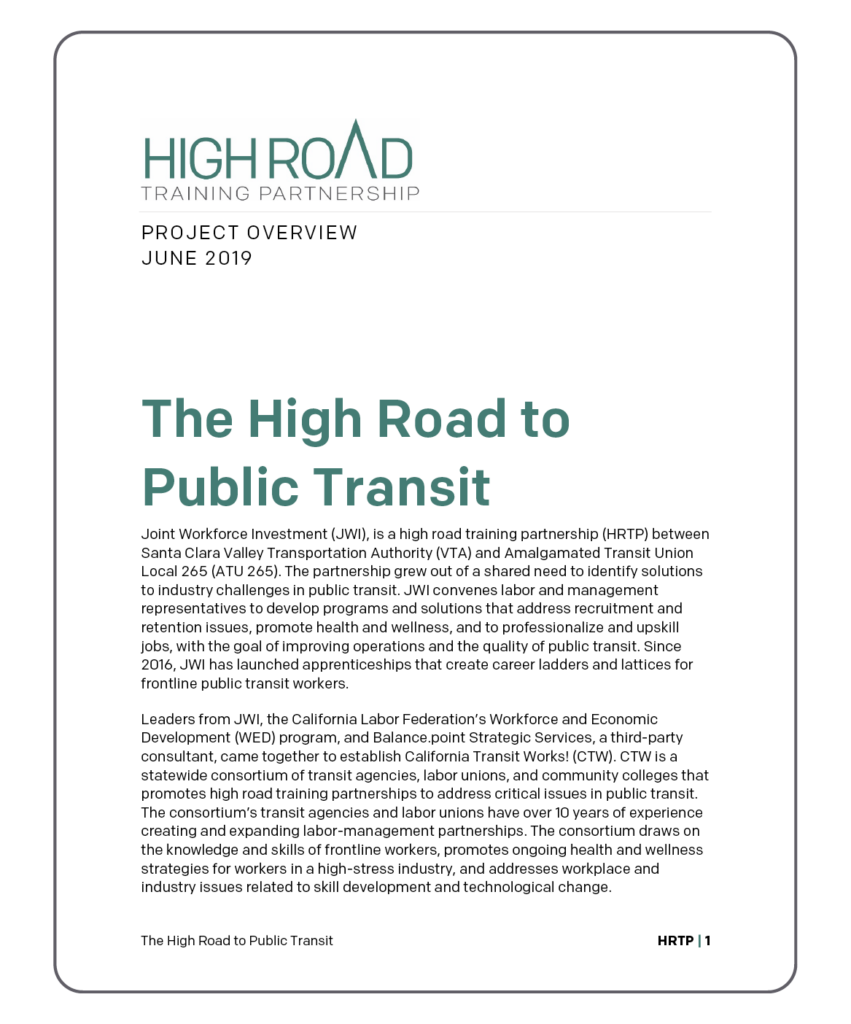
The High Road to Public Transit
This report provides a project overview of the high road training partnership (HRTP) in California between Santa Clara Valley Transportation Authority (VTA) and ATU Local 265 and the formation of California Transit Works (CTW).
California Workforce Development Board
June 2019
TOPICS: Apprenticeship , Labor-Management Partnerships , Mentorship
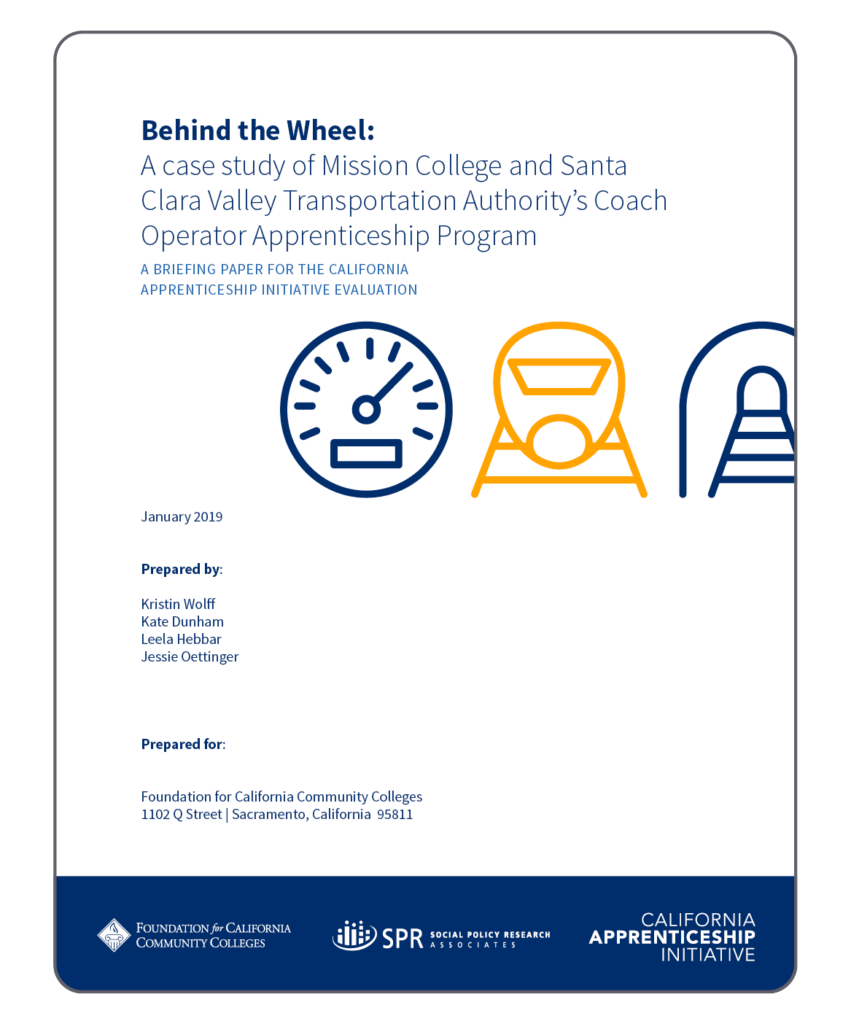
Behind the Wheel
This report, Behind the Wheel: A case study of Mission College and Santa Clara Valley Transportation Authority’s Coach Operator Apprenticeship Program, is part of the Social Policy Research Associates’ evaluation of the California Apprenticeship Initiative. The case study describes the development of the Coach Operator and Transportation Apprenticeship, including why the partners chose an apprenticeship model to meet their training needs, how the program was developed and structured, and what apprentices and employers report about their experiences in the program. It concludes with a discussion of the program’s sustainability.
Foundation for California Community Colleges; Social Policy Research Associates
January 2019
TOPICS: Apprenticeship , Career Pathways , Hiring and Recruitment , Training
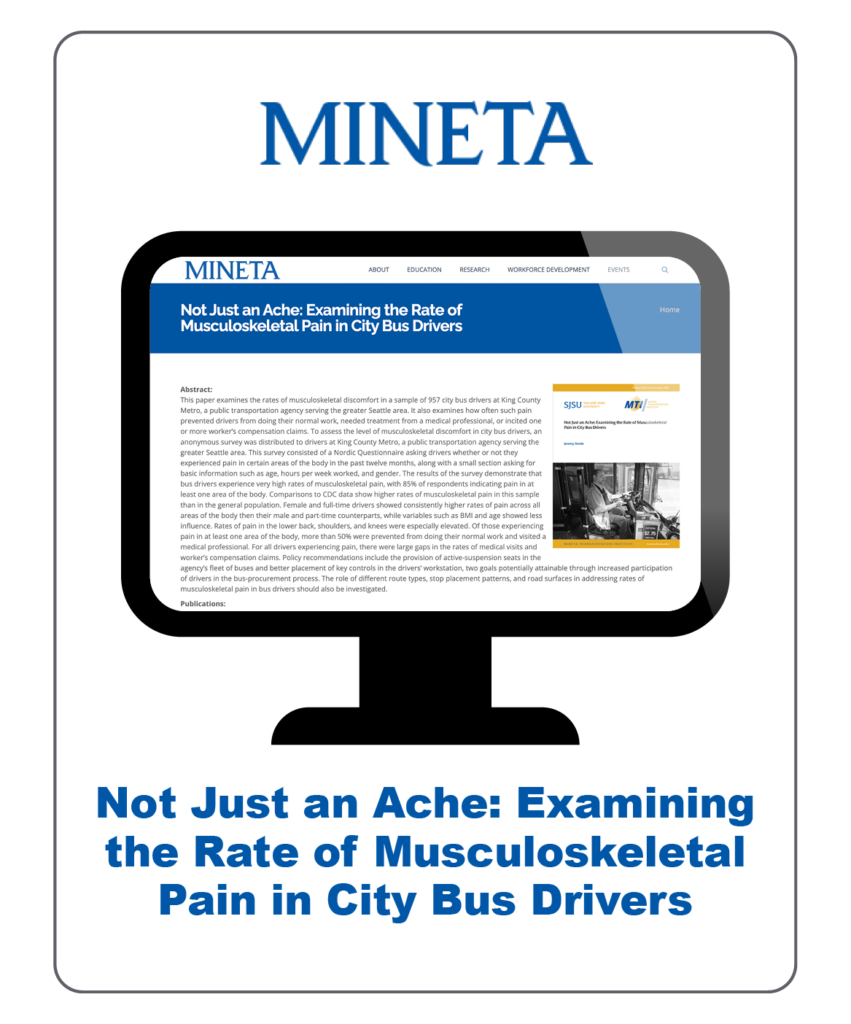
Not Just an Ache: Examining the Rate of Musculoskeletal Pain in City Bus Drivers
This paper examines the rates of musculoskeletal discomfort in a sample of 957 city bus drivers at King County Metro. The researchers conducted a survey demonstrate that city bus drivers experience very high rates of musculoskeletal pain in at least one area of the body. The paper includes policy recommendations, such as the provision of active-suspension seats in the agency’s fleet of buses and better placement of key controls in the drivers’ workstation, as well as considerations for further investigation.
Mineta Transportation Institute
November 2018
TOPICS: Policy and Planning , Safety and Health
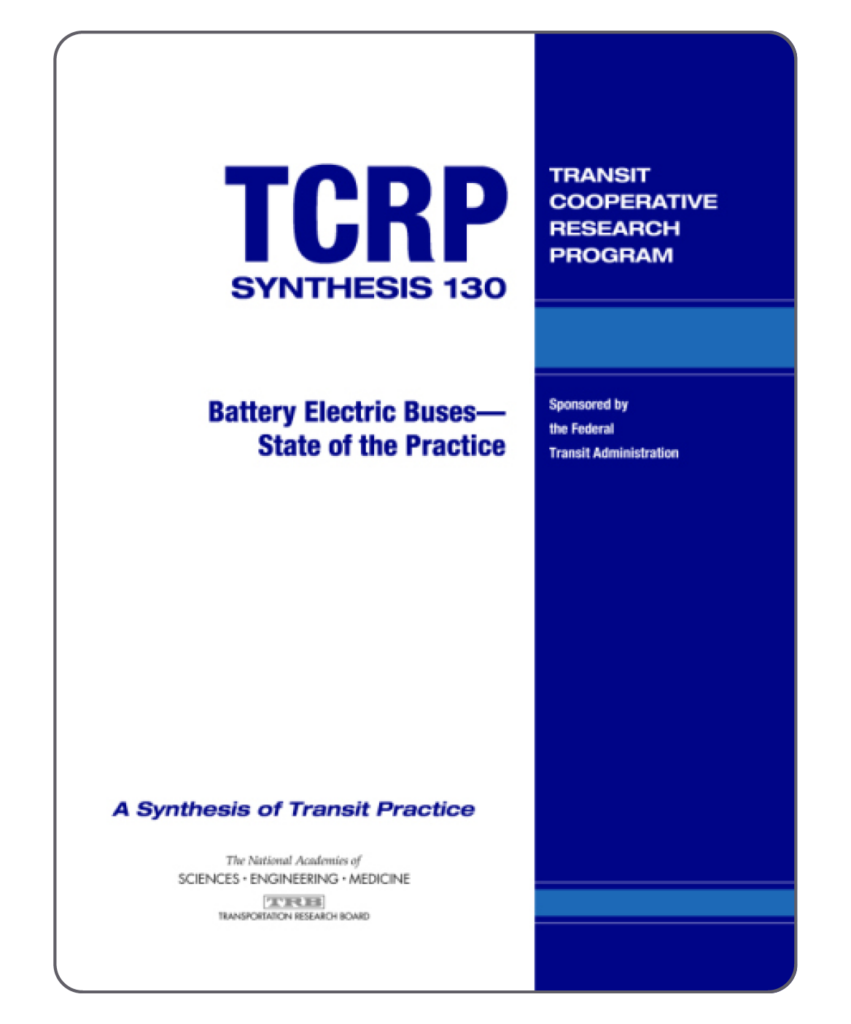
Battery Electric Buses—State of the Practice
This report documents current practices of transit systems in the planning, procurement, infrastructure installation, operation, and maintenance of battery electric buses (BEBs). The synthesis is intended for transit agencies that are interested in understanding the potential benefits and challenges associated with the introduction and operation of BEBs.
Transit Cooperative Research Program
March 2018
TOPICS: Procurement , Zero Emission Buses
Contributor(s): National Academies of Sciences, Engineering, and Medicine; Transportation Research Board; Transit Cooperative Research Program Synthesis Program; Synthesis Program; Transit Cooperative Research Program; Jason Hanlin; Darby Reddaway; Julia Lane
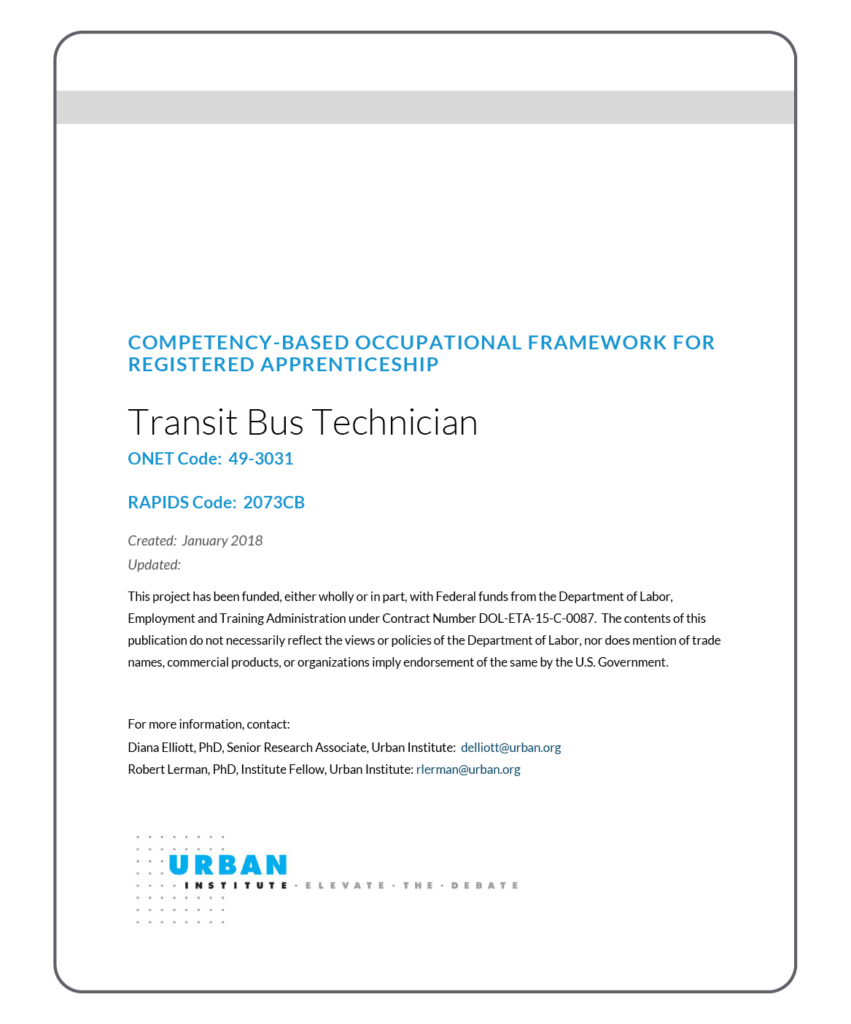
Bus Maintenance Apprenticeship Framework
The Bus Maintenance Apprenticeship Framework was developed by the National Bus Maintenance Apprenticeship Committee and approved by the U.S. DOL. It is a competency based framework that includes all of the tasks an apprentice should be able to demonstrate as a result of the training. Tasks are based on the ASE task list and APTA training standards. It is only a guide, locations can add or remove tasks to suit their individual operations.
The framework spreadsheet was developed by ITLC as a more in-depth and customizable version of the Bus Maintenance Apprenticeship Framework. Note the various tabs at the bottom for each Job Function.
International Transportation Learning Center; The Urban Institute
January 2018
TOPICS: Apprenticeship , Training , Zero Emission Buses
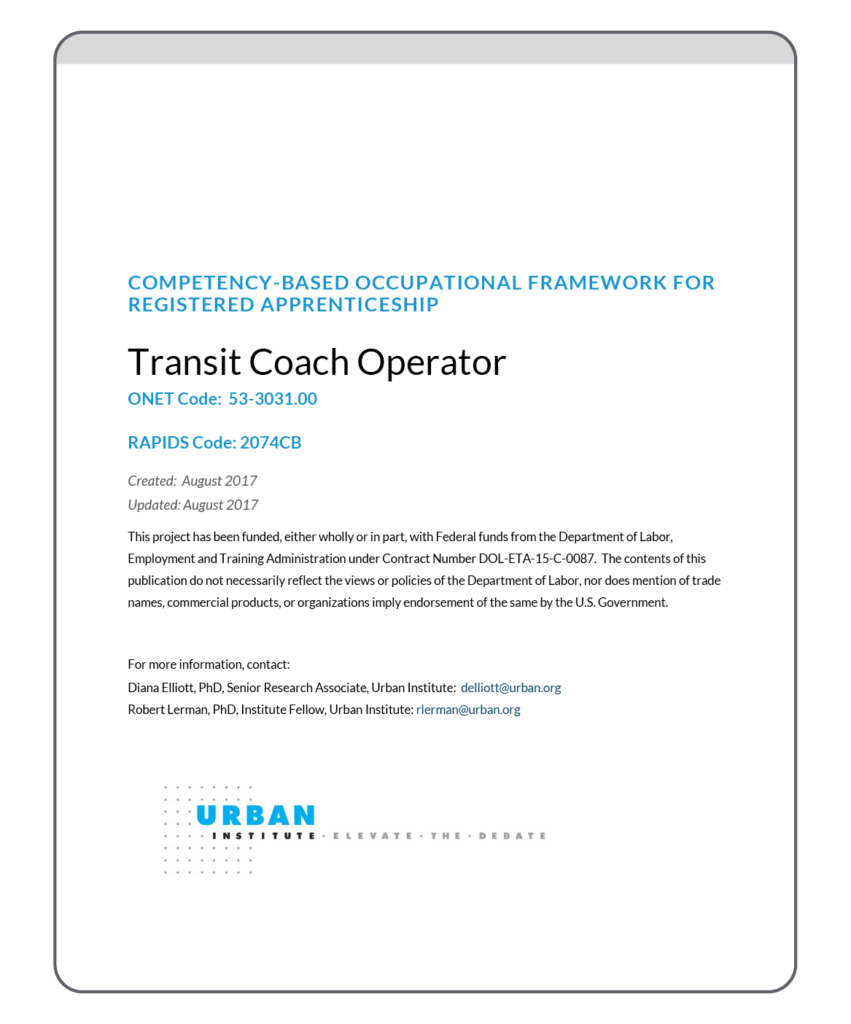
Transit Coach Operator Competency-Based Framework
This is the full Competency-Based Occupational Framework for Registered Apprenticeship for transit coach operator/bus operators.
The Urban Institute & International Transportation Learning Center
August 2017
TOPICS: Apprenticeship , Training , Zero Emission Buses
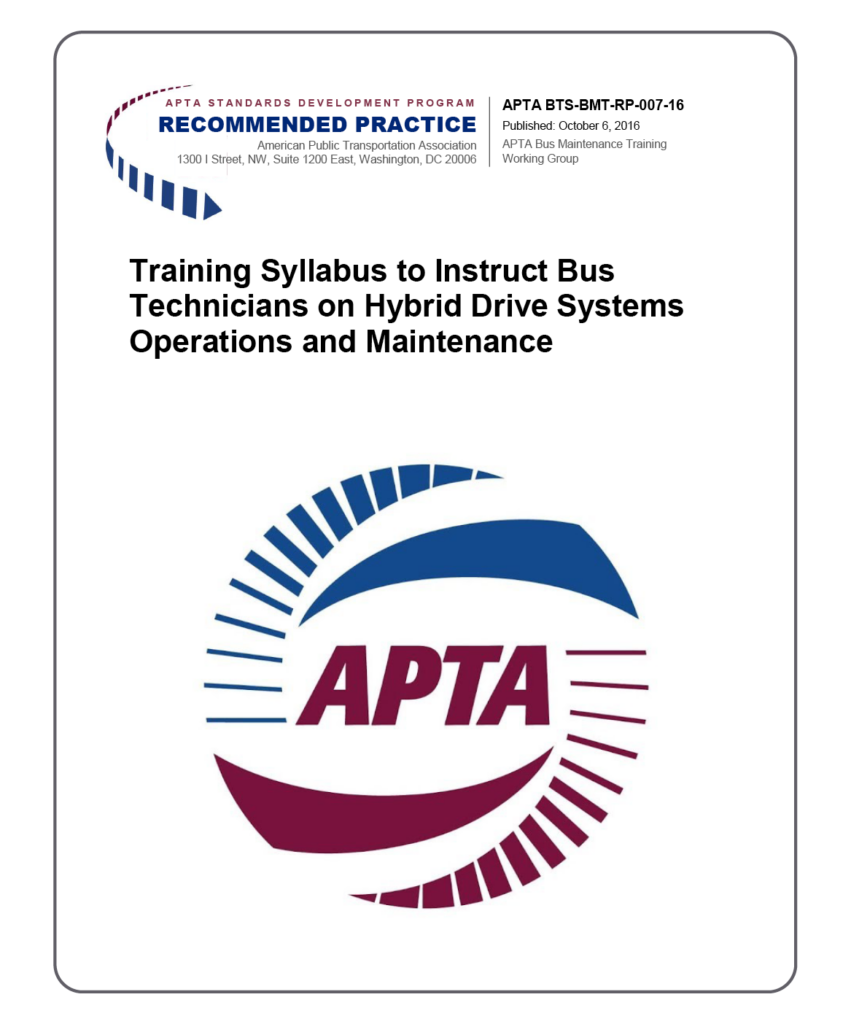
Training Syllabus to Instruct Bus Technicians on Hybrid Drive Systems Operations and Maintenance
This Recommended Practice provides guidelines for establishing a standardized bus maintenance training program related to the theory of operation, maintenance and troubleshooting of bus hybrid drive transmissions and related equipment.
American Public Transportation Association
October 2016
TOPICS: Training
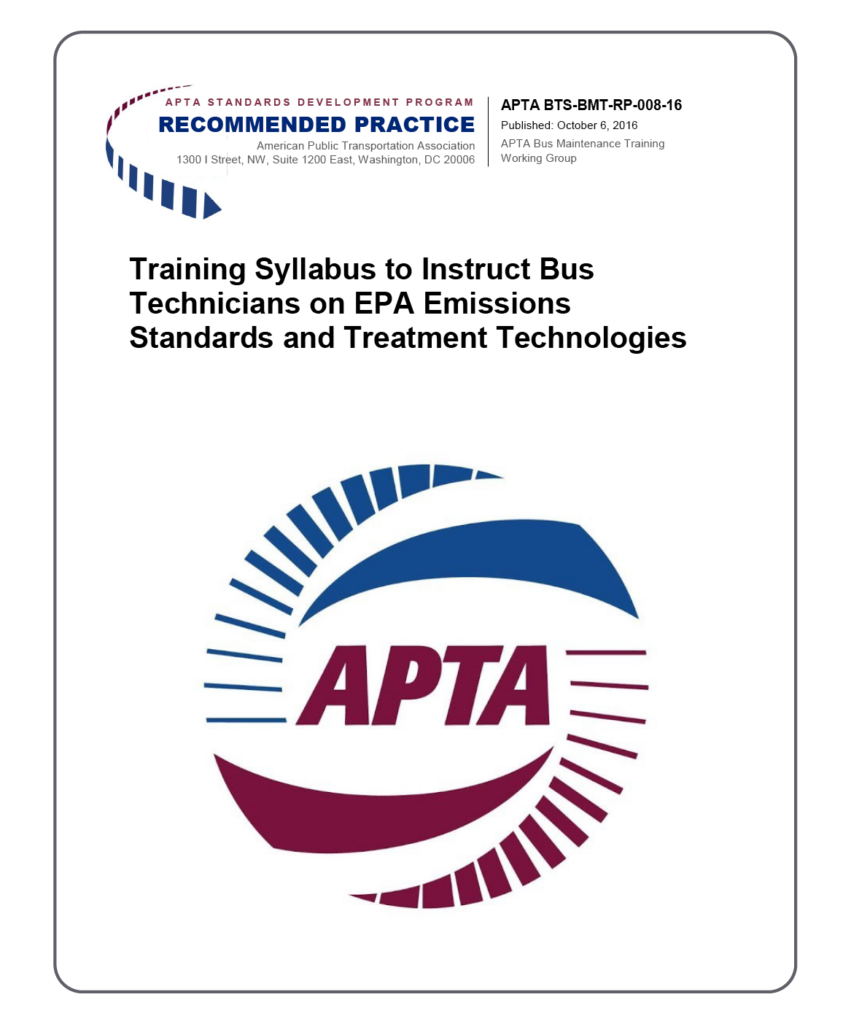
Training Syllabus to Instruct Bus Technicians on EPA Emissions Standards and Treatment Technologies
This Recommended Practice provides guidelines for establishing a standardized bus maintenance training program related to the maintenance and troubleshooting of bus engine and after treatment components used to achieve applicable EPA emission standards.
American Public Transportation Association
October 2016
TOPICS: Training
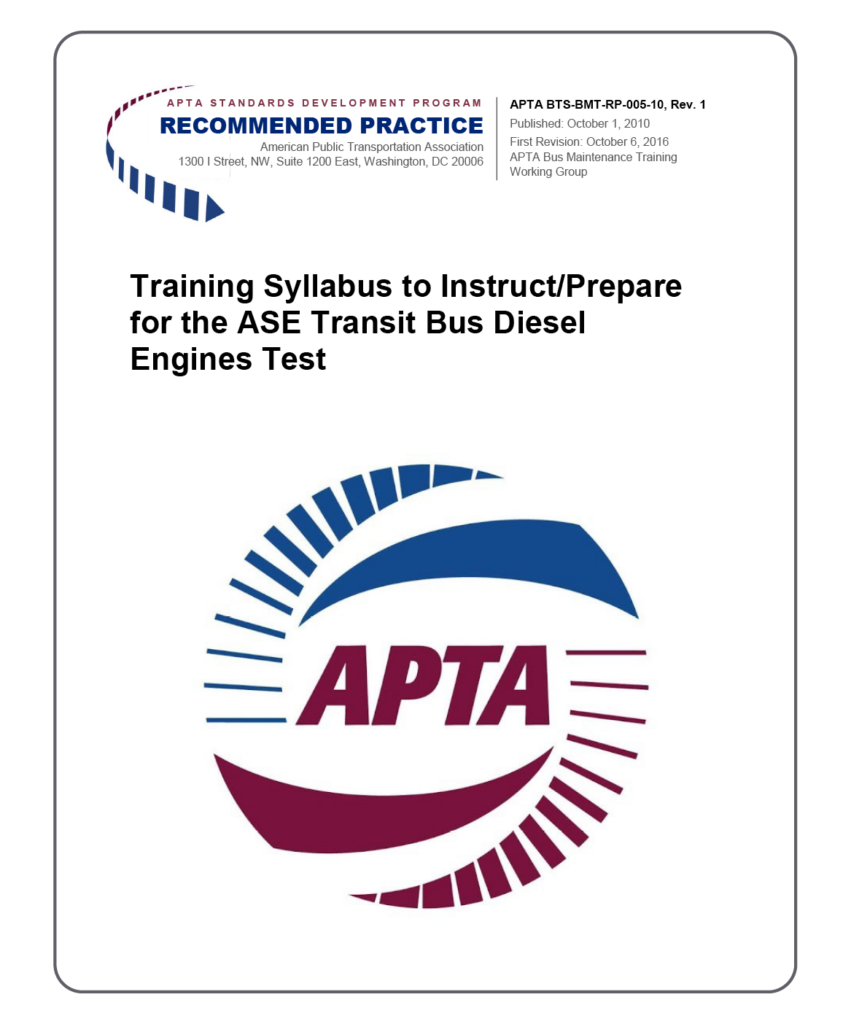
Training Syllabus to Instruct/Prepare for the ASE Transit Bus Diesel Engines Test
This Recommended Practice provides guidelines for establishing a standardized bus maintenance training program related to the Automotive Service Excellence (ASE) certification program syllabus for the diesel engines used in transit buses and coaches.
American Public Transportation Association
October 2016
TOPICS: Training
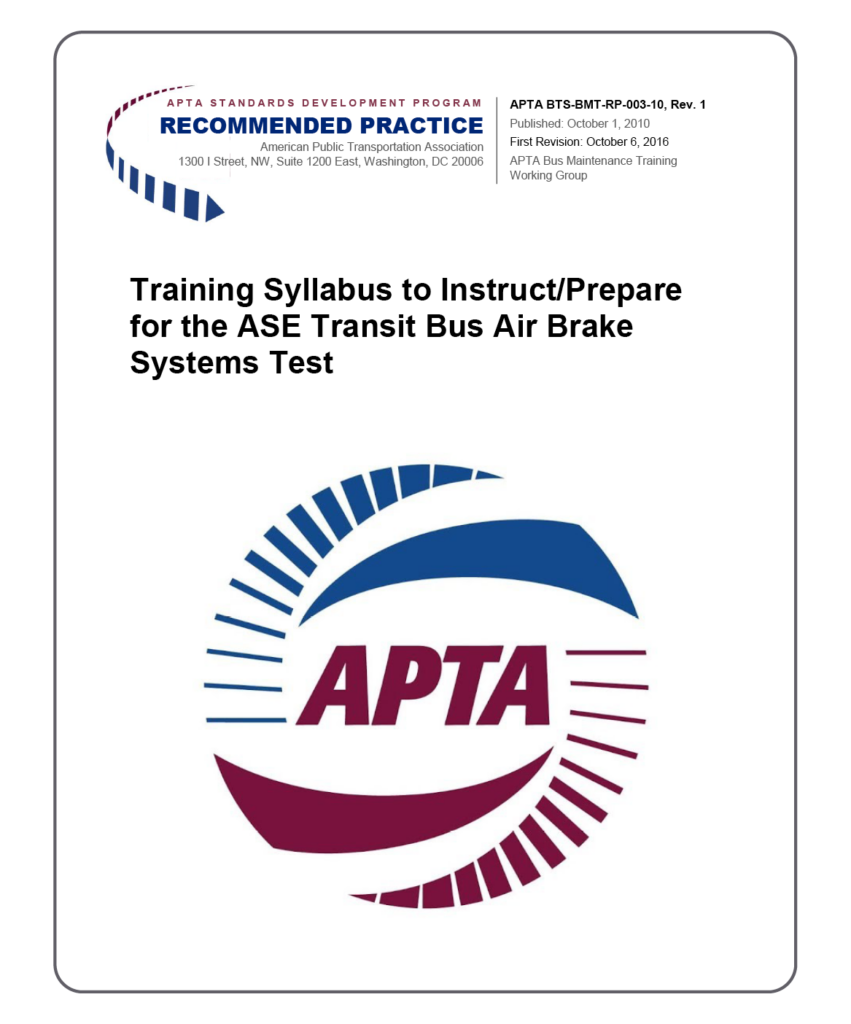
Training Syllabus to Instruct/Prepare for the ASE Transit Bus Air Brake Systems Test
This Recommended Practice provides guidelines for establishing a standardized bus maintenance training program related to the Automotive Service Excellence (ASE) certification syllabus for transit bus and coach air brake systems.
American Public Transportation Association
October 2016
TOPICS: Training
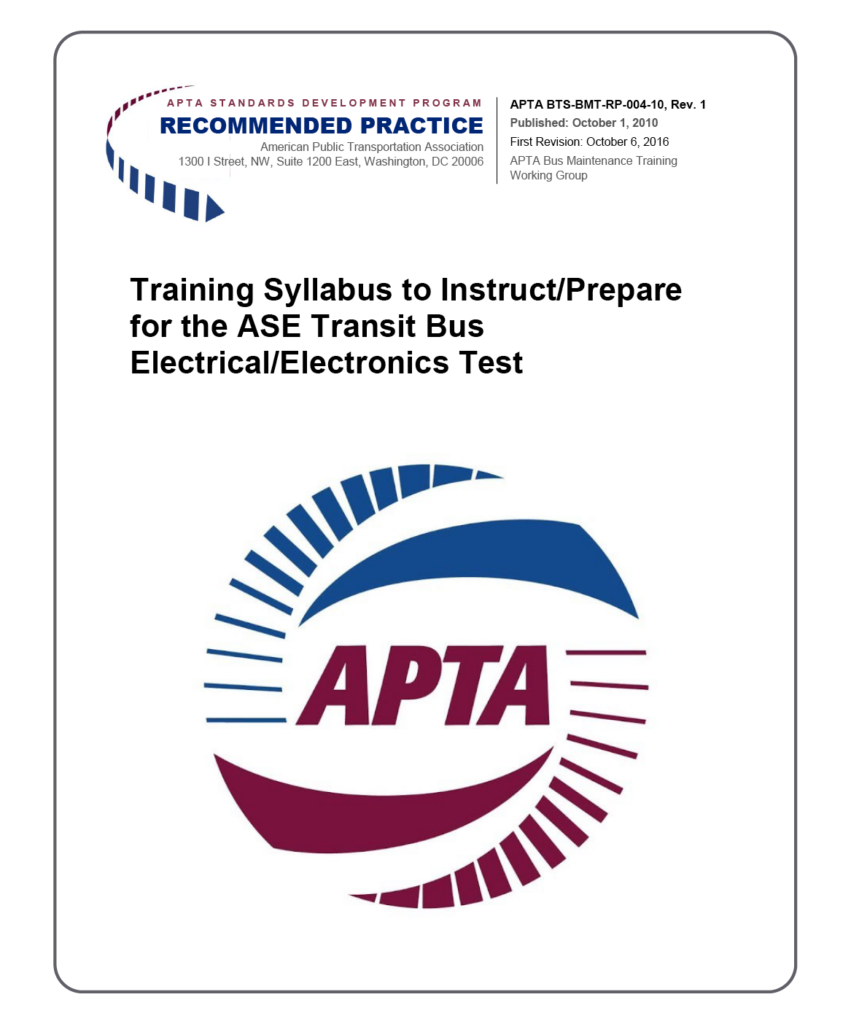
Training Syllabus to Instruct/Prepare for the ASE Transit Bus Electrical/Electronics Test
This Recommended Practice provides guidelines for establishing a standardized bus maintenance training related to the ASE certification program syllabus for the electrical/electronics systems used in transit buses and coaches.
American Public Transportation Association
October 2016
TOPICS: Trainer and Mentor Development , Training
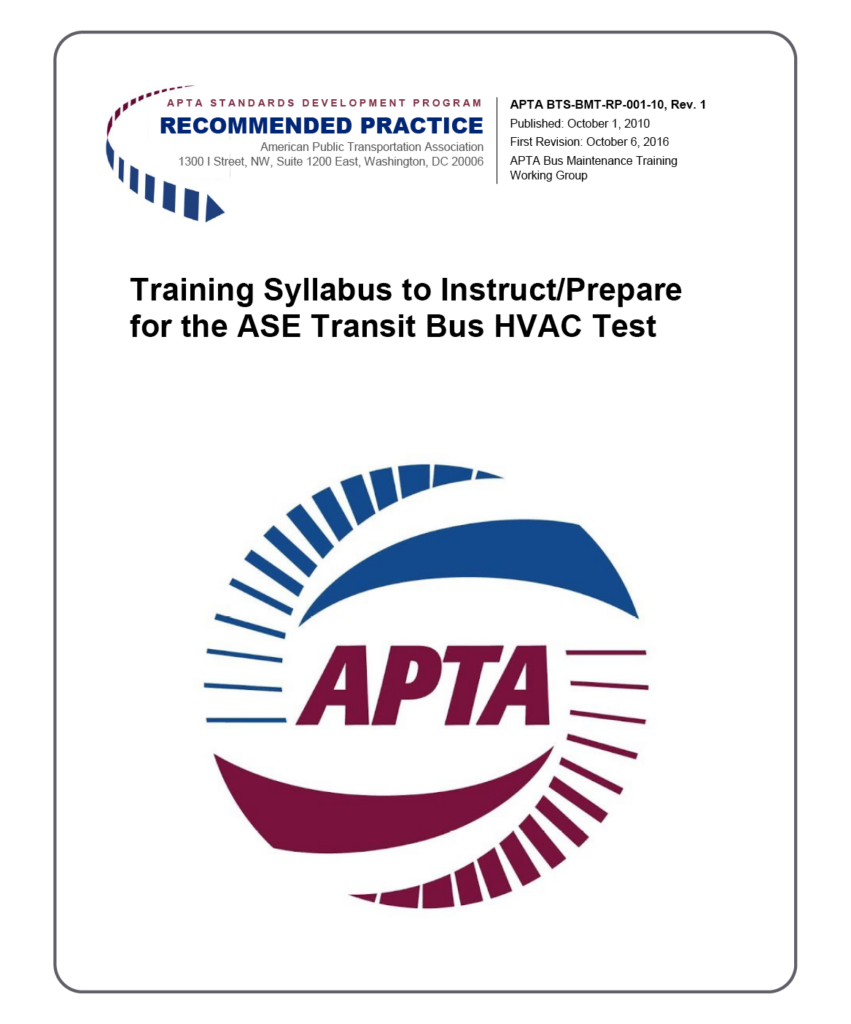
Training Syllabus to Instruct/Prepare for the ASE Transit Bus HVAC Test
This Recommended Practice provides guidelines for establishing a standardized bus maintenance training related to the Automotive Service Excellence (ASE) certification program syllabus for heating, ventilation, and air conditioning (HVAC) systems used in transit buses and coaches.
American Public Transportation Association
October 2016
TOPICS: Training
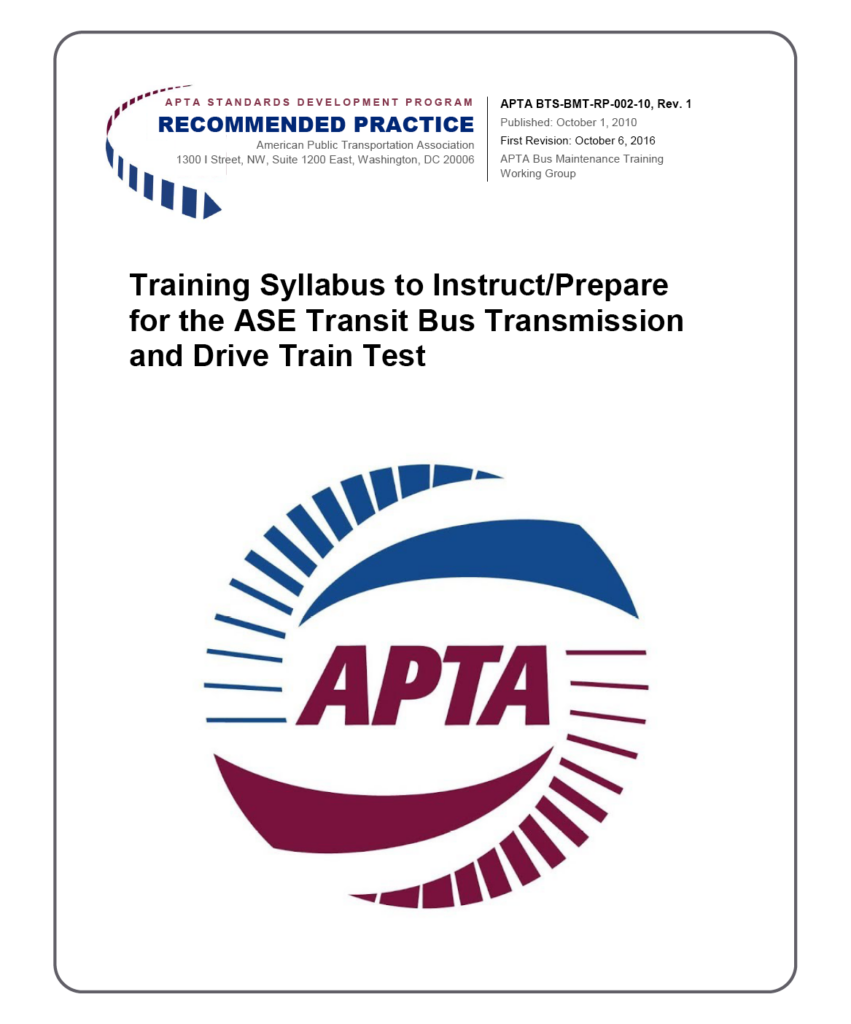
Training Syllabus to Instruct/Prepare for the ASE Transit Bus Transmission and Drivetrain Test
This Recommended Practice provides guidelines for establishing a standardized bus maintenance training related to the Automotive Service Excellence (ASE) certification program syllabus for transmissions and drivetrains used in transit buses and coaches.
American Public Transportation Association
October 2016
TOPICS: Training
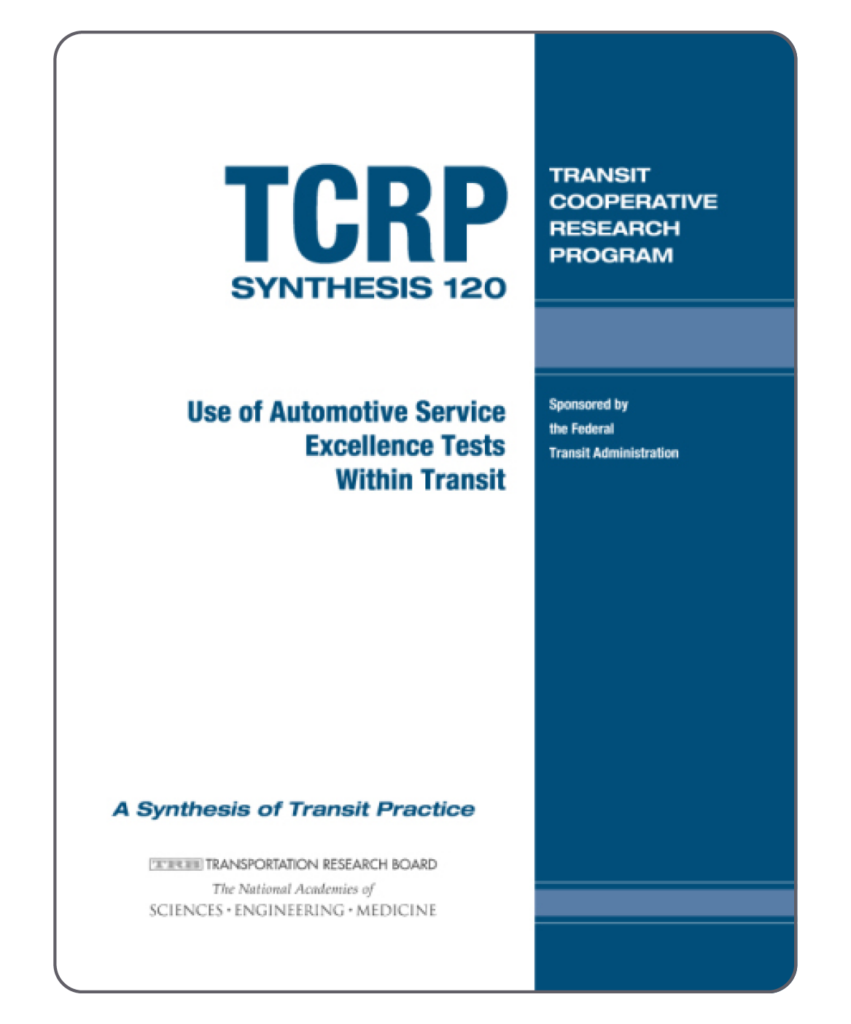
Use of Automotive Service Excellence Tests Within Transit
TRB’s Transit Cooperative Research Program (TCRP) Synthesis 120: Use of Automotive Service Excellence Tests Within Transit documents how the Automotive Service Excellence (ASE) program is accepted and used within the transit bus maintenance community. The ASE program is nationally recognized as the standard industry credential provider for automotive professionals. The report explores how a cross section of transit bus maintenance personnel view the ASE certification program and summarizes their perspectives to improve ASE certification acceptance and participation.
Transit Cooperative Research Program (TCRP)
January 2016
TOPICS: Safety and Health , Training
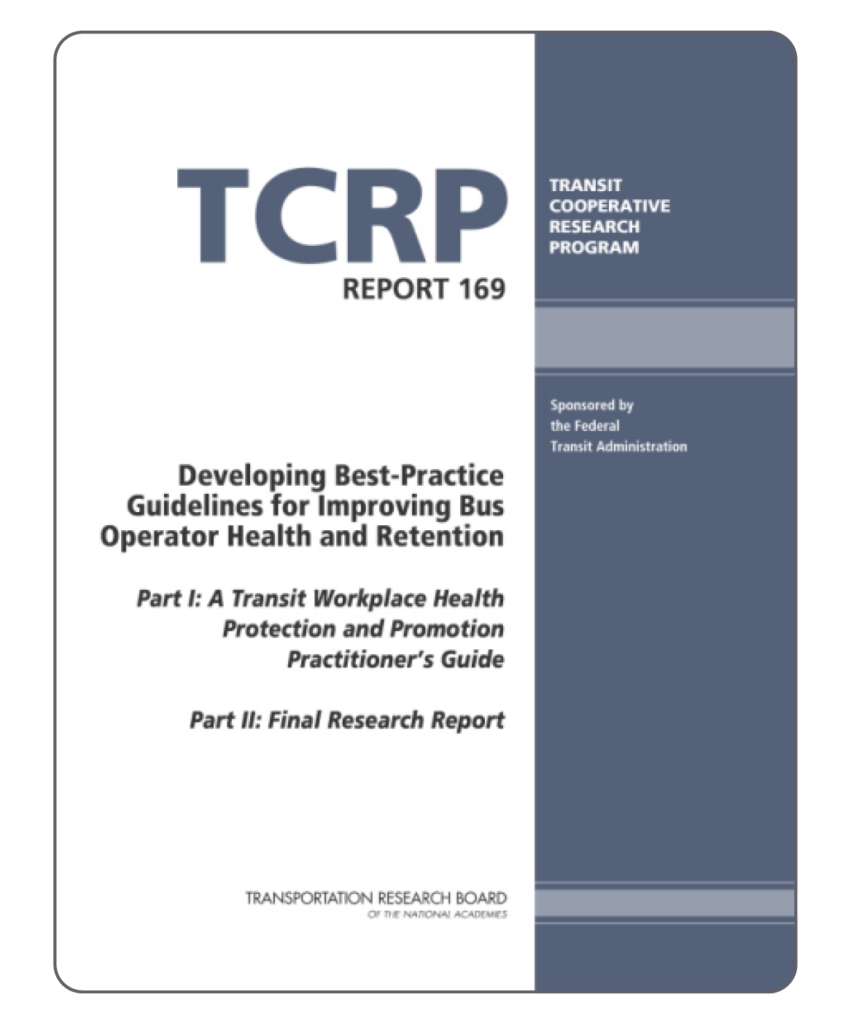
Developing Best-Practice Guidelines for Improving Bus Operator Health and Retention
This TCRP report addresses some of the health and safety issues common throughout the transit industry, and describes approaches that transit organizations in the United States and Canada have taken to address health problems faced by transit employees. The report is supplemented by a presentation, Making the Case for Transit Workplace Health Protection and Promotion, and an Excel worksheet, Transit Operator Workplace Health Protection and Promotion Planning, Evaluation, and ROI Template, that may assist transit agencies with implementing and carrying out transit-specific programs to protect the health of bus operators and other employees.
Transit Cooperative Research Program
August 2014
TOPICS: Policy and Planning , Retention , Safety and Health
Contributor(s): National Academies of Sciences, Engineering, and Medicine; Transportation Research Board; Transit Cooperative Research Program; Robin Mary Gillespie; Xinge Wang; Tia Brown
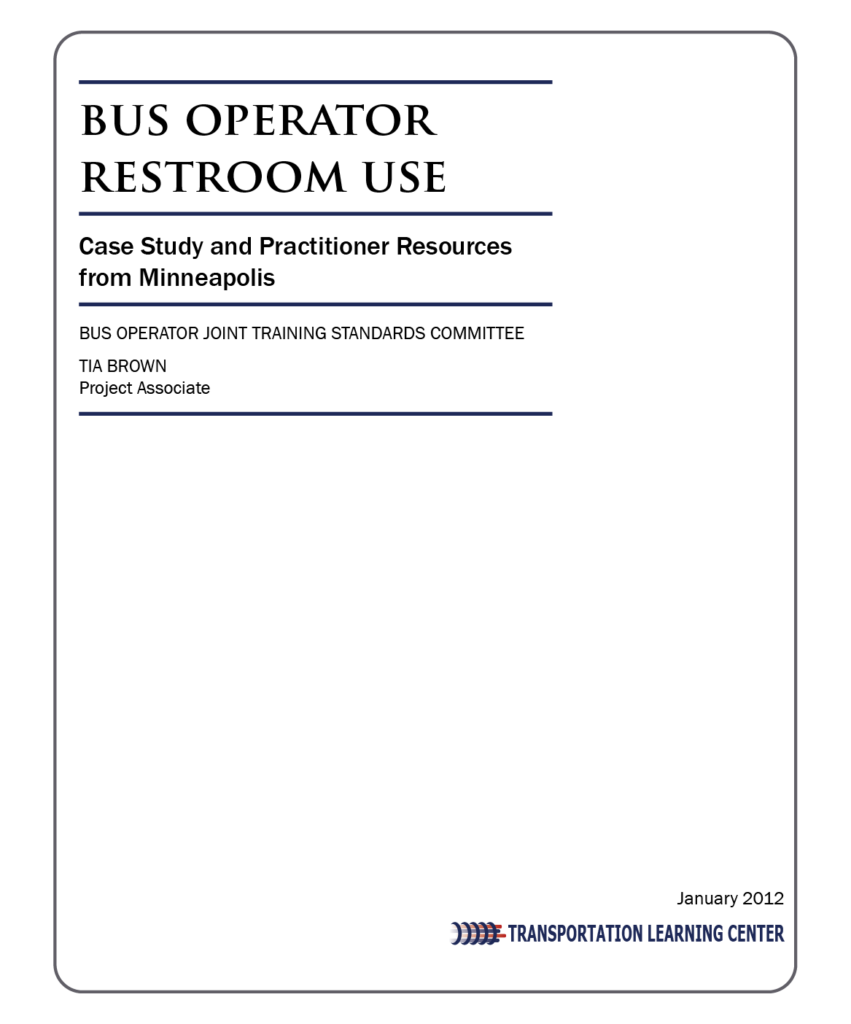
Bus Operator Restroom Use Case Study
In collaboration with the Bus Operator National Joint Training Standards Committee, the International Transportation Learning Center developed this Bus Operator Restroom Use report, a case study and compendium of practitioner resources on restroom use, including a history of restroom use policy at Minneapolis Metro Transit. The resources in this report also include a model community restroom licensing agreement, route-specific restroom locations chart, and example collective bargaining language.
International Transportation Learning Center
January 2012
TOPICS: Retention , Safety and Health , Training
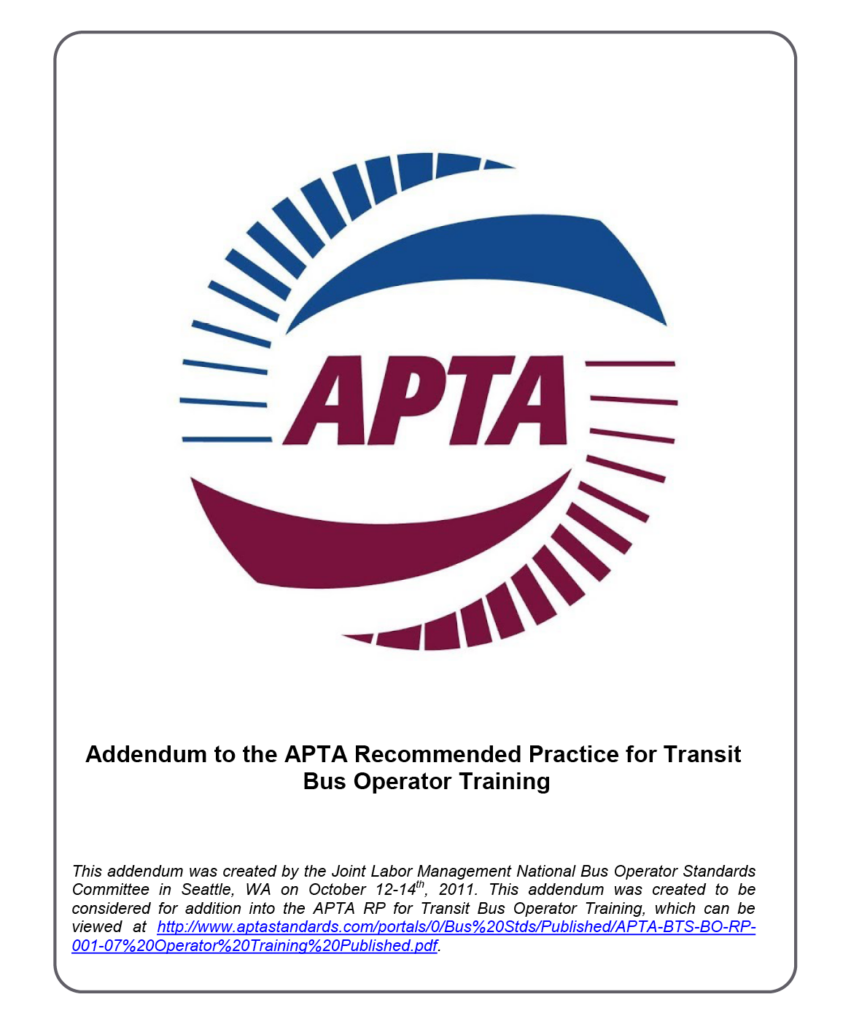
Addendum to the APTA Recommended Practice for Transit Bus Operator Training
This addendum was created by the Joint Labor Management National Bus Operator Standards Committee in Seattle, WA on October 12-14th 2011. This addendum was created to be considered for addition into the APTA RP for Transit Bus Operator Training.
Joint Labor Management National Bus Operator Standards Committee
October 2011
TOPICS: Safety and Health , Training
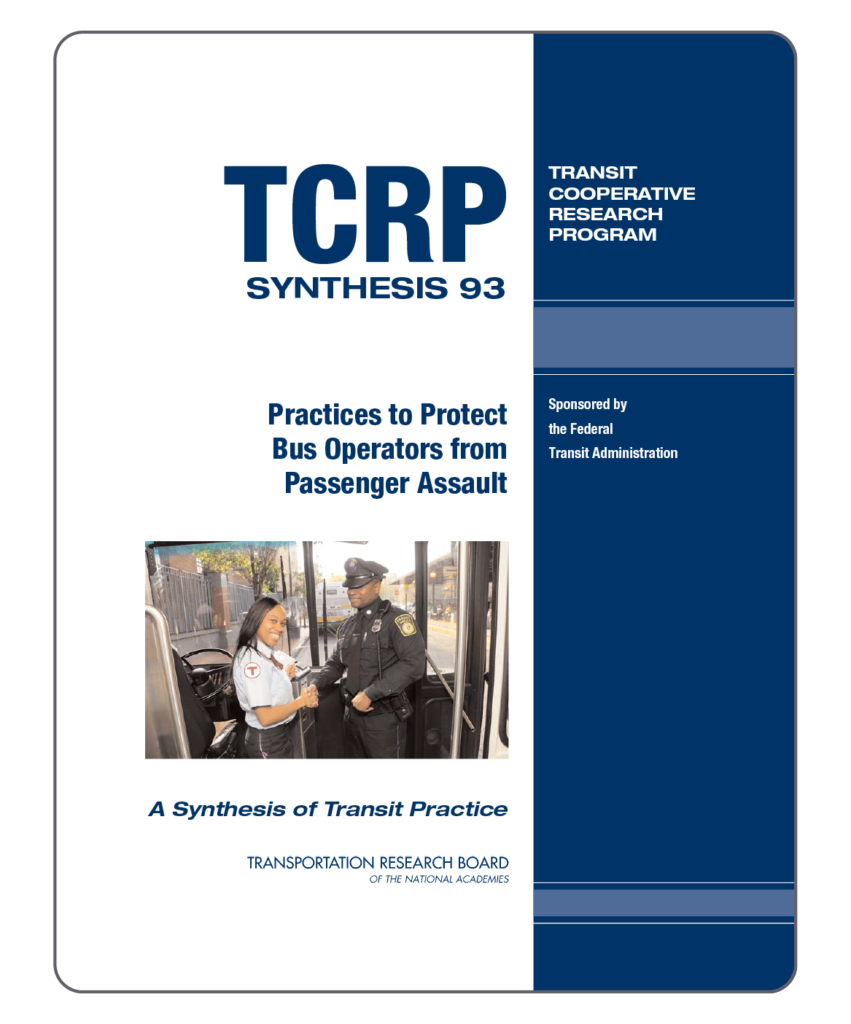
Practices to Protect Bus Operators from Passenger Assault: A Synthesis of Transit Practice
The TCRP Synthesis 93 highlights practices and policies implemented by transit agencies to deter and mitigate assaults on bus operators.
Transit Cooperative Research Program
January 2011
TOPICS: Retention , Safety and Health
Contributor(s): National Academies of Sciences, Engineering, and Medicine; Transportation Research Board; Transit Cooperative Research Program Synthesis Program; Transit Cooperative Research Program
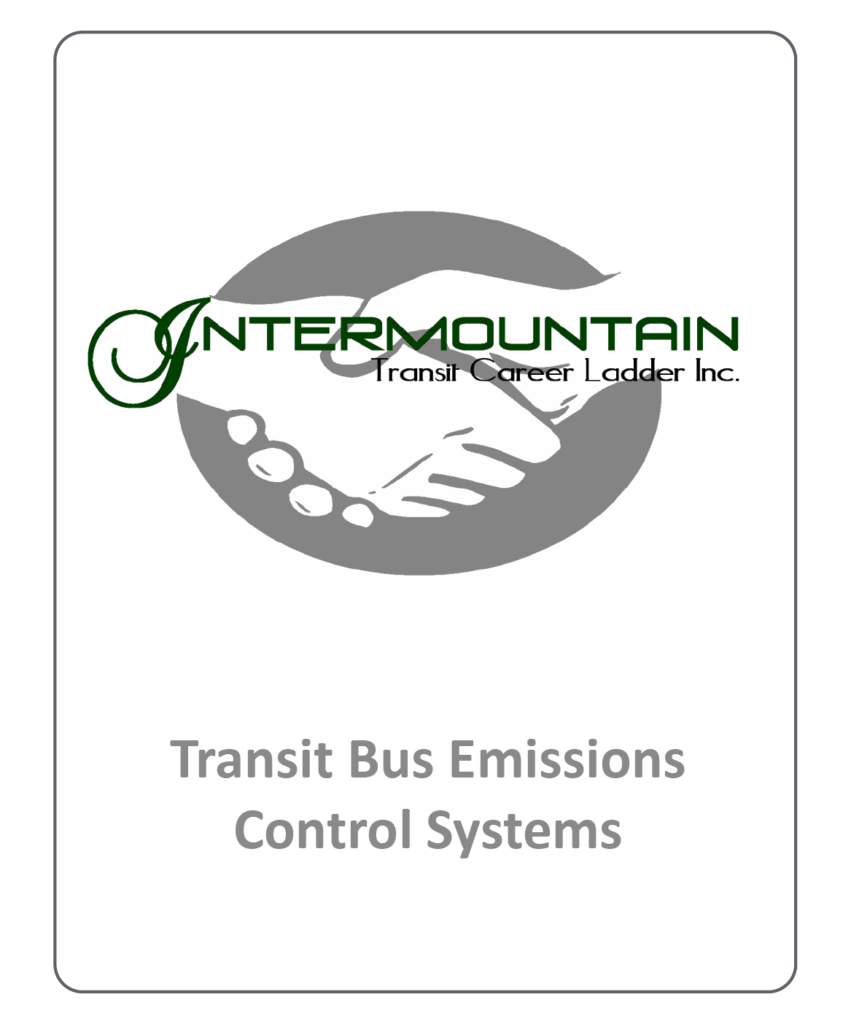
Training Course – Transit Bus Emissions Control Systems
A three-day course designed to deepen bus technicians’ understanding of the operation and maintenance of transit bus emission control systems.
Intermountain Transit Career Ladder, Inc.
January 2011
TOPICS: Training
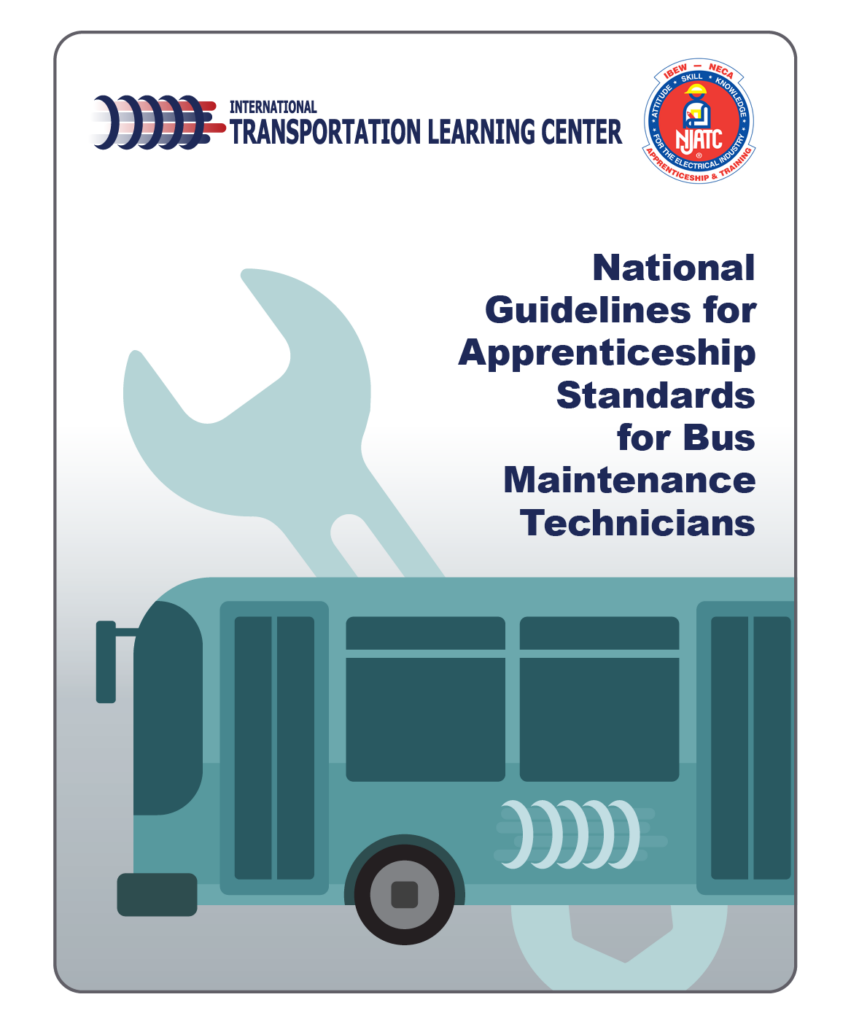
National Guidelines for Apprenticeship Standards for Bus Maintenance Technicians
These National Joint Apprenticeship and Training Committee (NJATC) Apprenticeship Standards have as their objective the training of Bus Maintenance Technicians skilled in all phases of bus maintenance. The NJATC and its affiliated Local Joint Apprenticeship and Training Committees recognize that in order to accomplish this, there must be well-developed on-the-job learning combined with related instruction. This recognition has resulted in the development of these Apprenticeship Standards.
Developed by the Intl. Transportation Learning Center and National Joint Apprenticeship and Training Committee (NJATC) in cooperation with the U.S. Department of Labor, Office of Apprenticeship.
Approved and certified by the U.S. Department of Labor, Office of Apprenticeship on 8/25/2010.
International Transportation Learning Center & National Joint Apprenticeship and Training Committee (NJATC)
August 2010
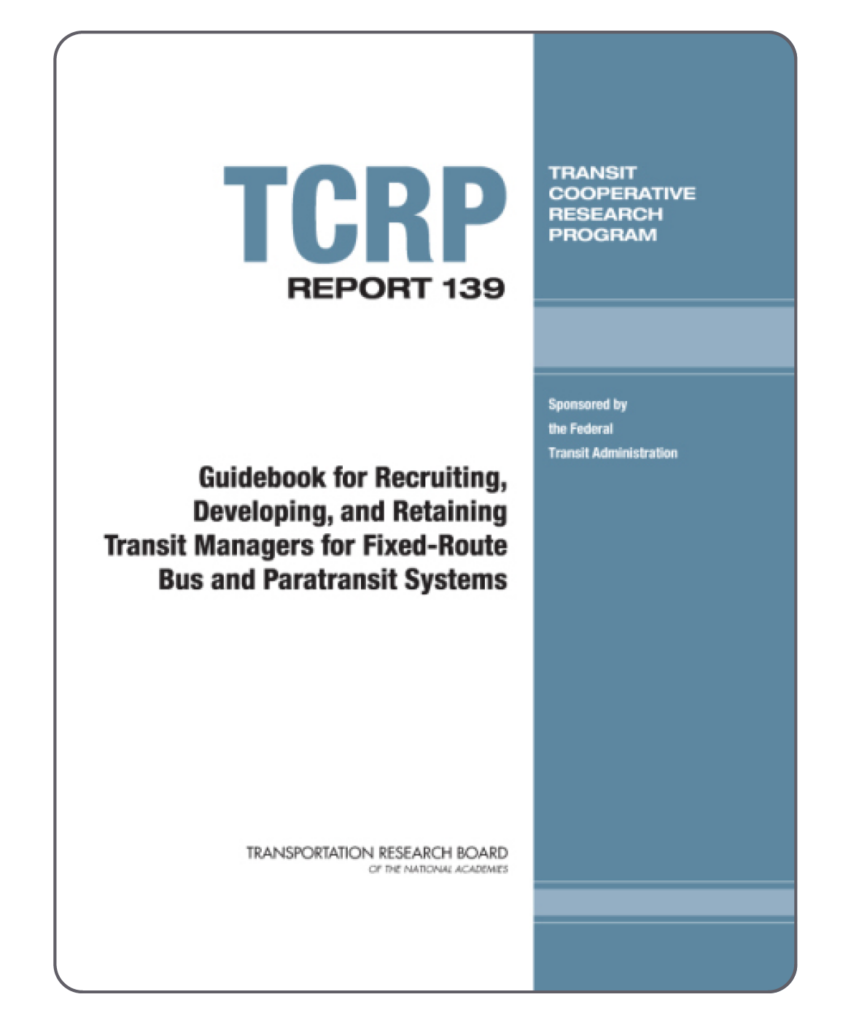
Guidebook for Recruiting, Developing, and Retaining Transit Managers for Fixed-Route Bus and Paratransit Systems
TRB’s Transit Cooperative Research Program (TCRP) Report 139: Guidebook for Recruiting, Developing, and Retaining Transit Managers for Fixed-Route Bus and Paratransit Systems explores resources for fixed-route bus, general public demand response, and Americans with Disabilities Act (ADA) paratransit systems resources to assist in the recruitment, development, and retention of managers.
Transit Cooperative Research Program
March 2010
TOPICS: Hiring and Recruitment , Policy and Planning , Retention , Workforce Shortage
Contributor(s): National Academies of Sciences, Engineering, and Medicine; Transportation Research Board; Transit Cooperative Research Program
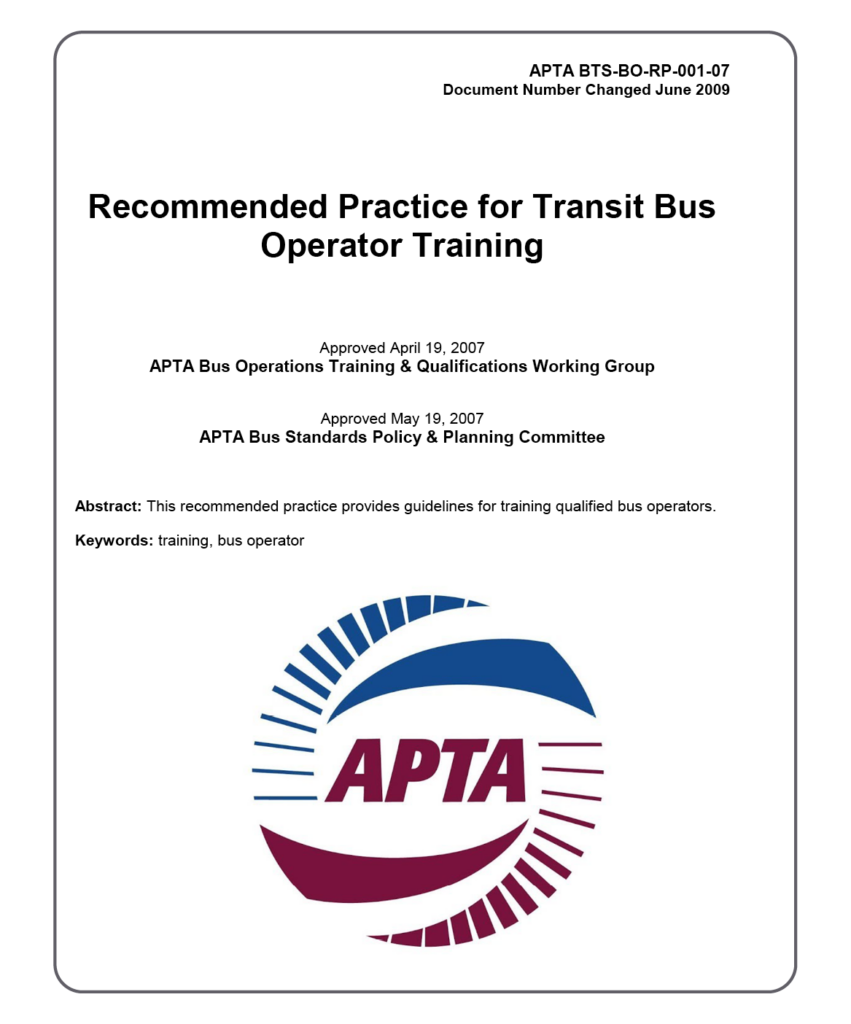
APTA Recommended Practice for Transit Bus Operator Training
This recommended practice provides guidance for standardized transit operator training to assist in the development of professional bus operators resulting in quality service. Individual operating agencies can modify these guidelines to accommodate their specific training goals and operating modes.
American Public Transportation Association (APTA)
May 2007
TOPICS: Safety and Health , Trainer and Mentor Development , Training
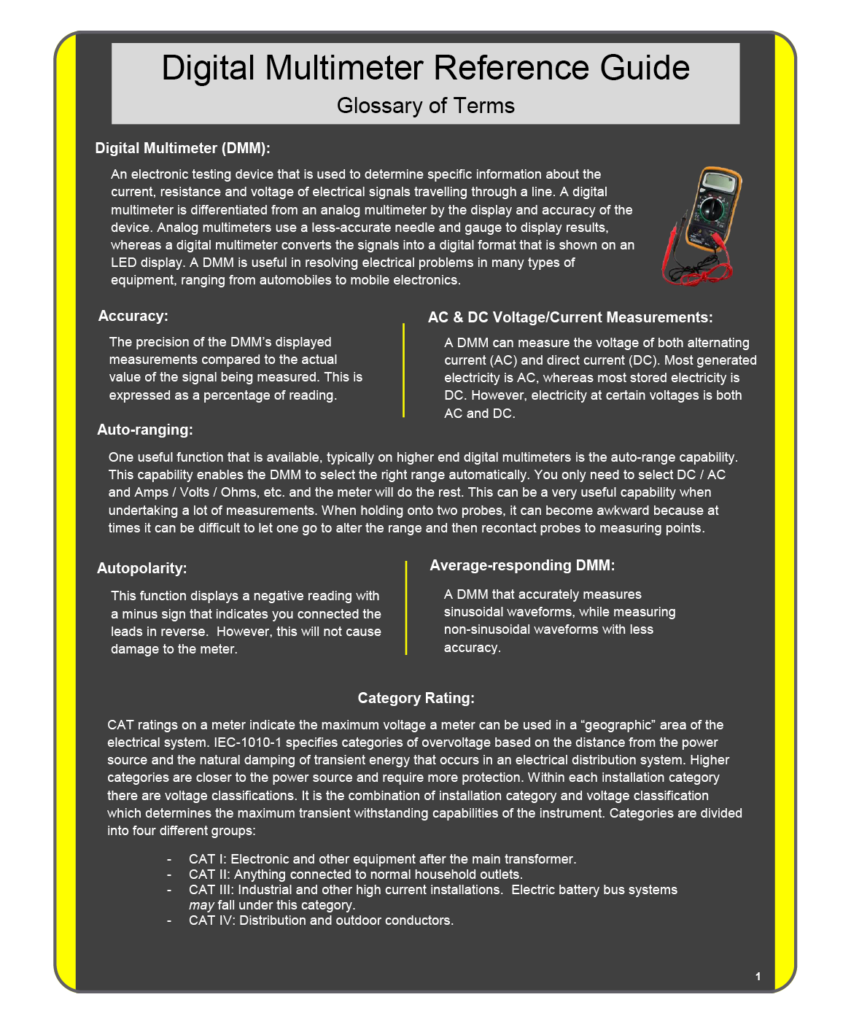
Digital Multimeter Reference Guide
This reference guide explains how to use a digital multimeter, including glossaries, safety precautions, and related resources.
International Transportation Learning Center
TOPICS: Training , Zero Emission Buses
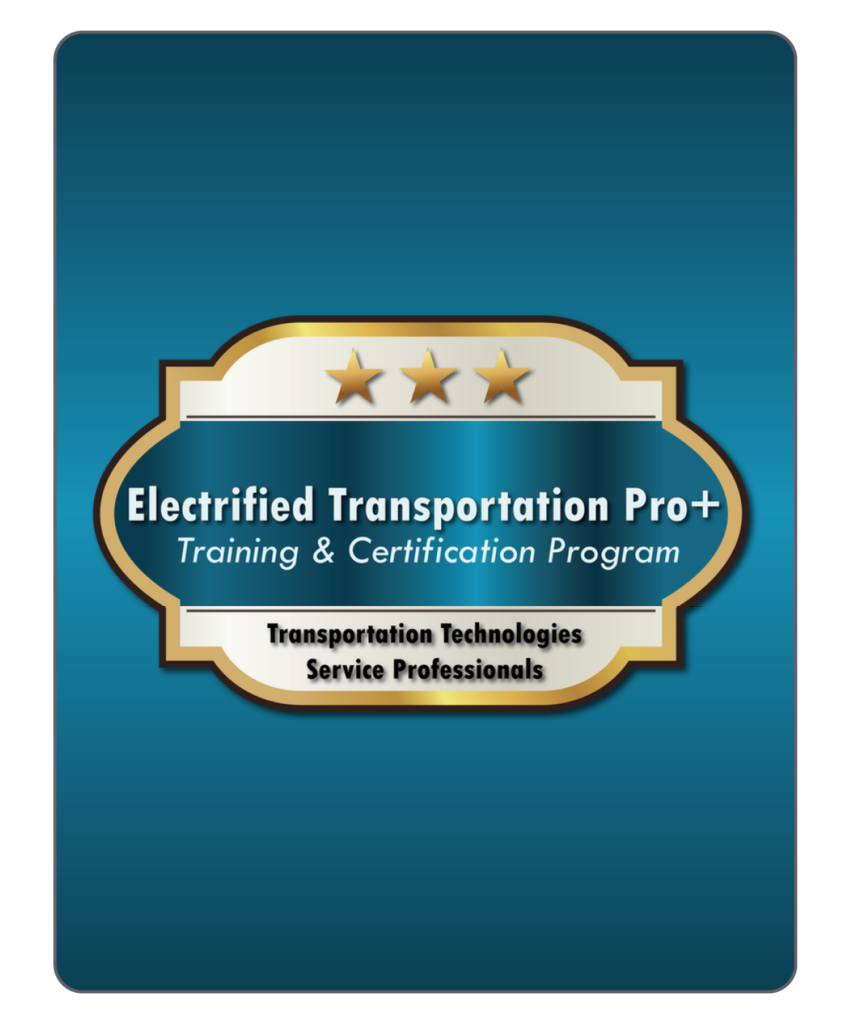
Electrified Transportation Pro+ Training and Certification Program
The objective of the Electrified Transportation Pro+ program is to ensure that all individuals across all transportation industries are trained in Electrified Vehicle Systems and Technologies consistently to one standard. The training is completed in preparation to perform the practical and written exams for earning the corresponding Level 1, Level 2, and Level 3 Certifications.
Electrified Transportation Pro+
TOPICS: Safety and Health , Training , Zero Emission Buses
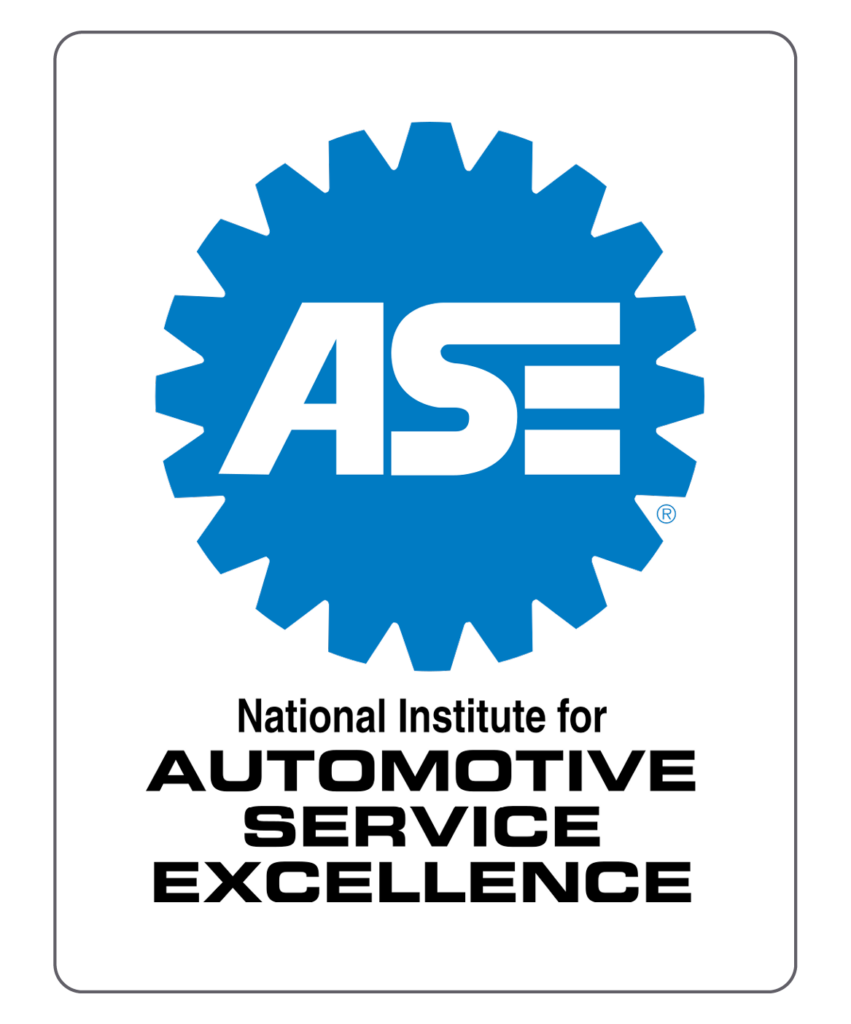
Transit Bus Certification Tests
This Test Series identifies and recognizes Transit Bus Technicians who demonstrate knowledge of the skills necessary to diagnose, service, and repair various systems on transit buses. Technicians can use the Official ASE Study Guide for Transit Bus Tests to prepare.
Automotive Service Excellence
TOPICS: Safety and Health , Training , Zero Emission Buses
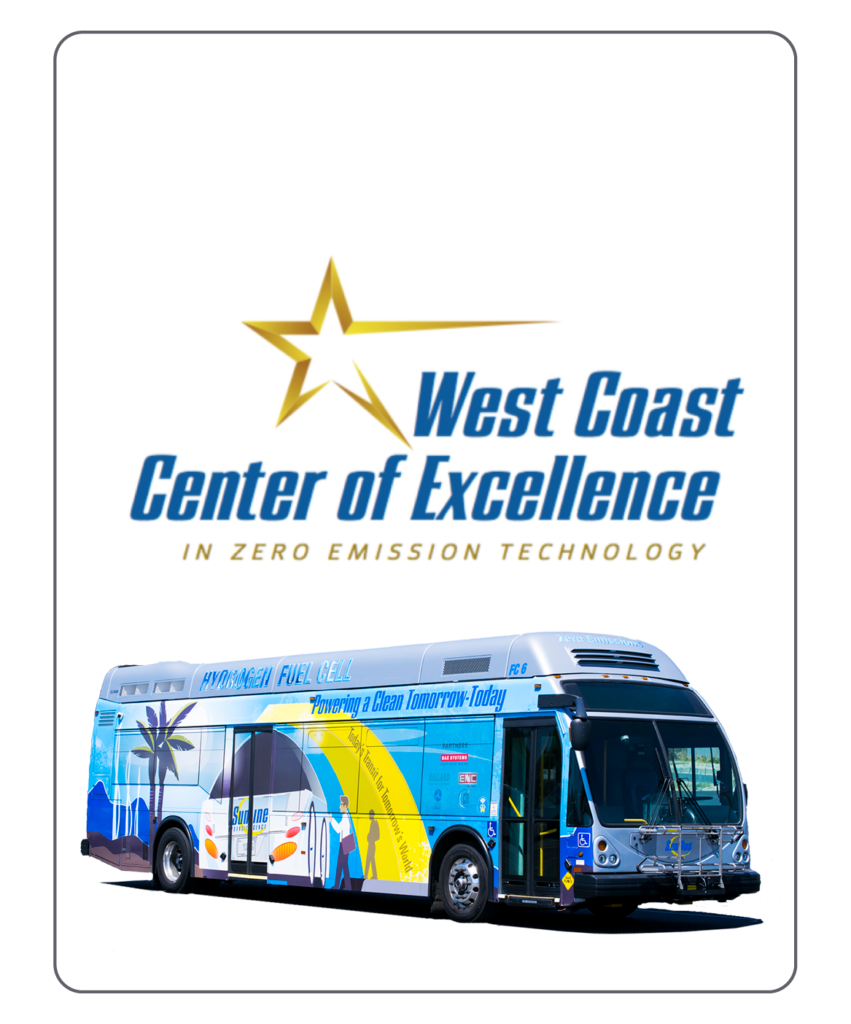
West Coast Center of Excellence in Zero Emission Technology
SunLine Transit Agency’s West Coast Center of Excellence in Zero Emission Technology (WCCOE) is a workforce development program focused on deploying and operating zero emission buses in public fleets. Funded by the FTA, this center provide training, best practice information and access to technology and software geared towards the planning, procurement and deployment of zero emission buses.
SunLine Transit Agency
Course offerings include:
• Leadership and Employee Relations
• Zero Emission Bus Overview
• Zero Emission Bus Operations
• Zero Emission Bus Maintenance
• Financial Management
• Zero Emission Bus Procurement
• Zero Emission Bus Policies and Regulations
• Planning for ZEB Operation
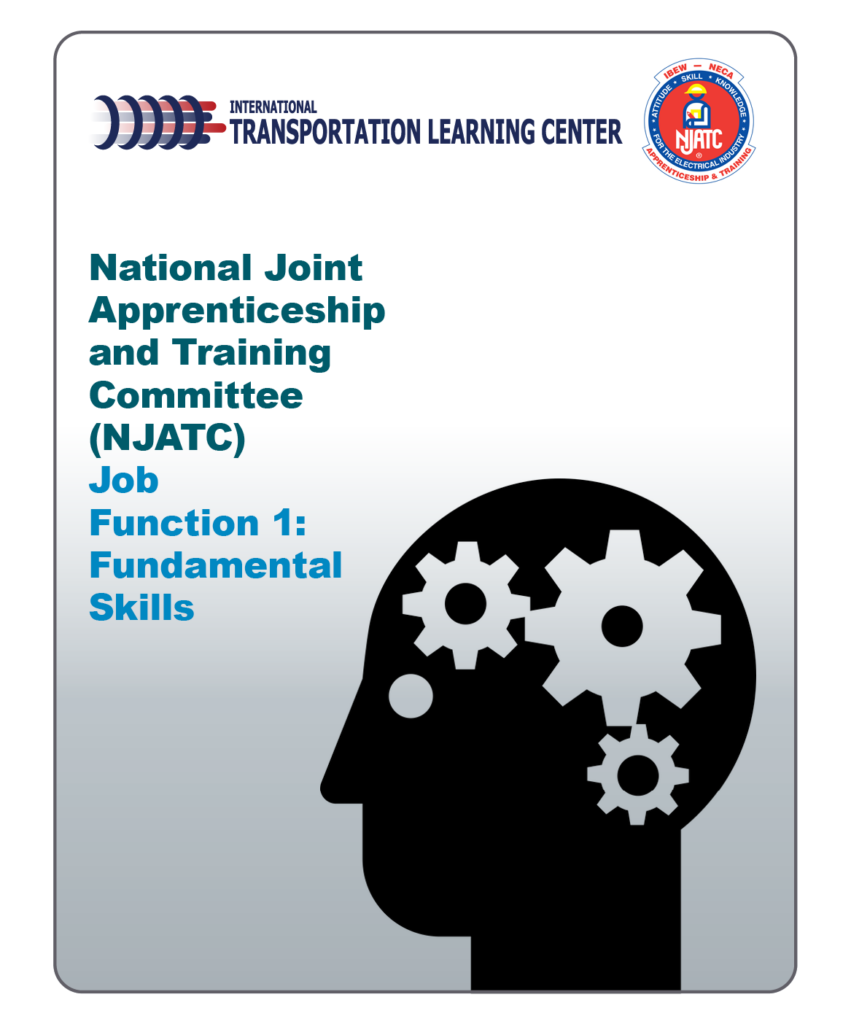
Matrix of Training Materials for Fundamental Bus Maintenance Skills
This matrix of training materials describes resources available to members of the National Joint Apprenticeship and Training Committee (NJATC) through other Committee members and from third-party resources. This document refers to JOB FUNCTION 1: FUNDAMENTAL SKILLS of the Department of Labor Apprenticeship Framework for Bus Maintenance (developed by the ITLC).
Interested parties should contact the provider of each resource directly. Some resources may not currently be available.
National Joint Apprenticeship and Training Committee; International Transportation Learning Center
TOPICS: Apprenticeship , Training
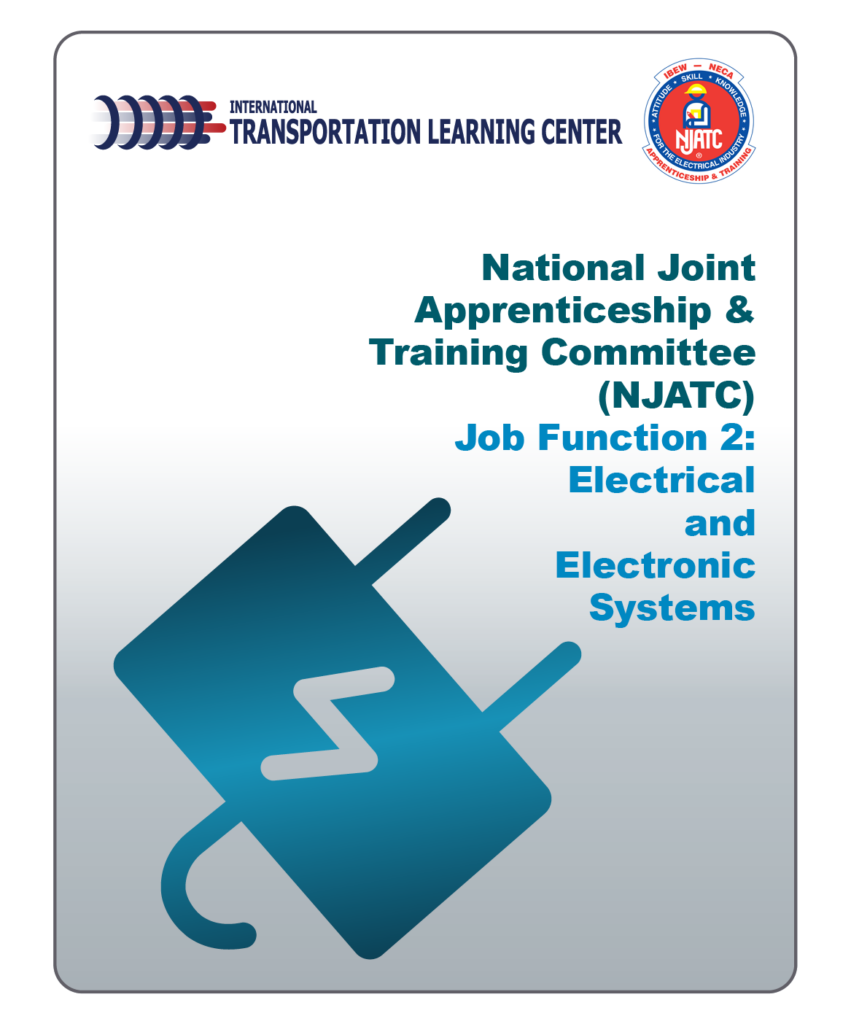
Matrix of Training Materials for Fundamental Electrical/ Electronic Systems Skills
This matrix of training materials describes resources available to members of the National Joint Apprenticeship and Training Committee (NJATC) through other Committee members and from third-party resources. This document refers to JOB FUNCTION 2: Electrical and Electronic Systems of the Department of Labor Apprenticeship Framework for Bus Maintenance (developed by the ITLC).
Interested parties should contact the provider of each resource directly. Some resources may not currently be available.
National Joint Apprenticeship and Training Committee; International Transportation Learning Center
TOPICS: Apprenticeship , Training







